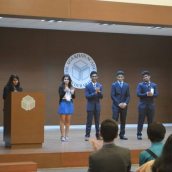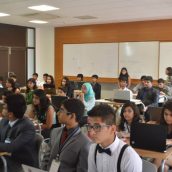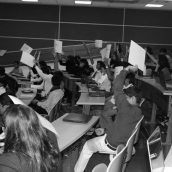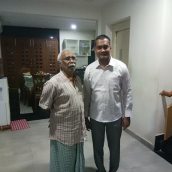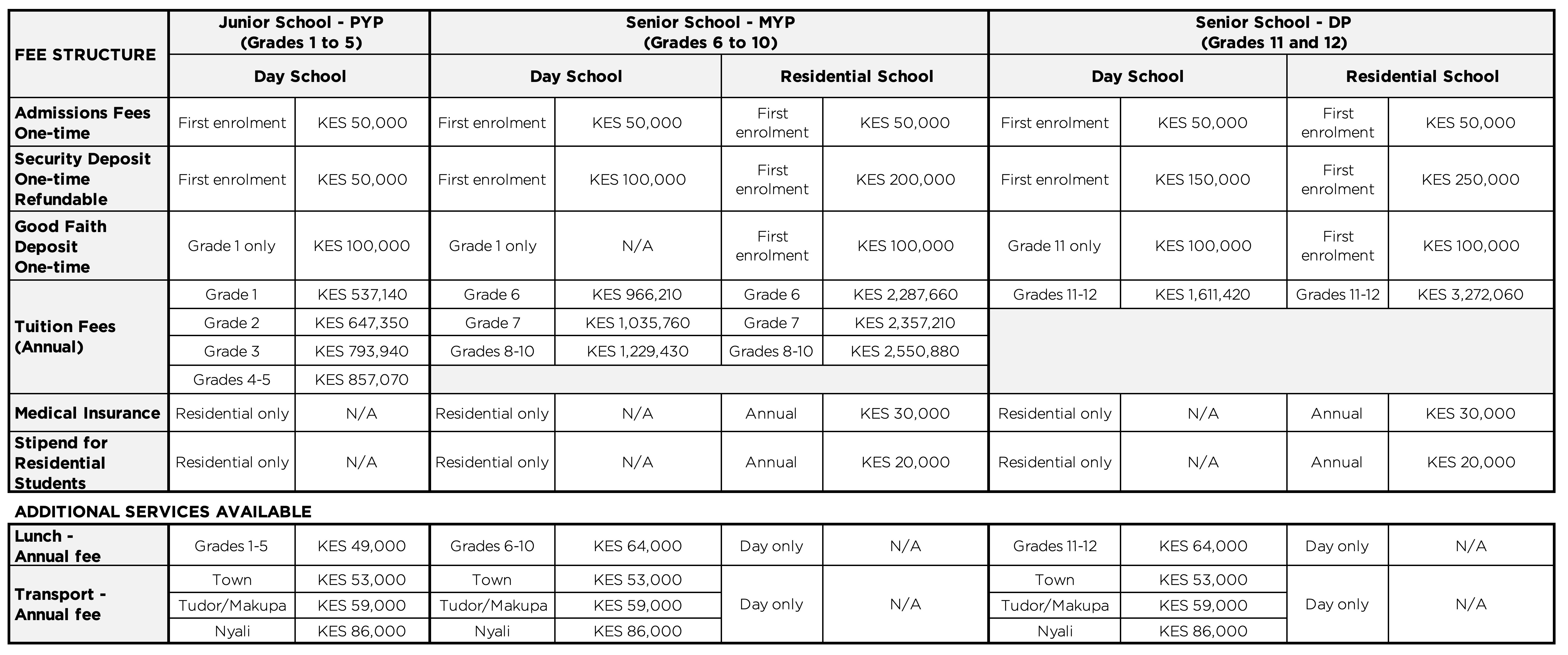At the Aga Khan Academy Mombasa, Ham Serunjogi – CEO and co-founder of African fintech giant Chipper Cash – realised the importance of staying connected to something larger than himself. The Forbes 30 Under 30 honouree is now serving as an advisor to the US President on African diaspora engagement.
Spotlights on Alumni
Below are spotlights on some of the Aga Khan Academies alumni:

Although it has been a few years since he graduated from the Aga Khan Academy Mombasa, Alqaim Lalani, Class of 2019, says his years at the Academy had a major bearing on his academic career and strongly influenced his outlook on life. Now, as a graduate of Columbia University in New York, Alqaim is giving back to the Aga Khan Academies community that he says shaped his life and gave him so much.
Jemin Patel’s journey to where he is now is the result of hard work and passion, values he picked up during his time at the Aga Khan Academy Hyderabad. Now, he's working at one of Canada's top accounting and consulting firms, still standing by the notion, "hard work always wins."

Muskaan Bhaidani is an alumna of the Aga Khan Academy Mombasa who was in the Class of 2020. Graduating with an impressive International Baccalaureate (IB) Diploma Programme (DP) score of 44 out of 45, Muskaan is now attending McGill University in Montreal, Canada.

Anahita Aman, a graduate of the Class of 2020, studied at the Aga Khan Academy Hyderabad for eight years. Currently pursuing history at the University College London, she hopes to build a career in international development.
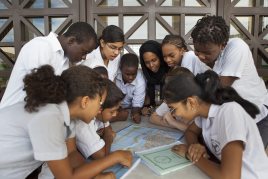
Congratulations to the Class of 2022! We are so proud of you and cannot wait to see what you do next. As we welcome our new graduating class to our alumni community, we asked four distinct graduates from the Aga Khan Academies in Mombasa and Hyderabad about their journeys and aspirations.

Qamili Dave, a 2017 alumna of the Aga Khan Academy Mombasa, discovered her passion for the culinary arts during her DP1 internship at Serena Beach Hotel. Since then, she has gone on to pursue her passion for cooking, including undertaking Harvard University courses to perfect her skills. What Qamili loves most about being a chef is preparing a good satisfying meal that warms the hearts of people.

Lilian Odera, a 2015 alumna of the Aga Khan Academy Mombasa and recipient of the Karen McKellin International Leader of Tomorrow (ILOT) award, is the embodiment of a true leader and agent of change. True to form, she has a passion for actively being involved in community-based initiatives to influence change and creatively find solutions to issues in whatever way she can.

Aleesha Suleman, a graduate student at UCL-Qatar, has never lost sight of what has always been important to her: giving back to her home country of Kenya.

Raghuveer Vyas, director of the United Nations Initiative at New York University, is on a mission to bring change to the world through policy development and fostering a continuous dialogue between international leaders and the youth.

Hussein Jiva graduated from the Aga Khan Academy Mombasa after what he feels was a transformative journey.

With a determination to change her country into a land of opportunity for all, Anzhela Mirzoeva, a recent graduate from the Aga Khan Academy Mombasa, will further her education at the Connecticut College in the United States by studying International Relations and Human Development.

For Alqaim Lalani, his recent graduation from the Aga Khan Academy Mombasa brings him one step closer to realising his dream of attaining a deeper understanding of how economics and politics affect the world around is. Alqaim will be enrolling at Columbia University in fall 2019, as a prestigious Kluge scholar.

''I do not want a career in something predetermined for me from this age. When I am asked where I will be 15 years from now, I can promise you it will not be cooped up in an office doing routine work. I will probably be out there inventing something meaningful and purposeful, something which can be used to change the world.”

The International Baccalaureate (IB) curriculum is essential in enabling the Academies to develop well-rounded leaders of tomorrow. Hear from Zia Chapman, Class of 2018, and understand how this influenced her in choosing the Academy for her education. Zia is now a scholarship student at UBC in Canada.

Through the inquiry-based International Baccalaureate curriculum, the Aga Khan Academies aim to develop young individuals who will have the capacity to lead and to build strong civil democratic societies in the future. Hear from one of our alumni, Moiz Rajwani, Class of 2018, and see how we have been turning this vision into reality at the Academies. Moiz was awarded a scholarship at Western University in Ontario, Canada and enrolled in September 2018.

"I always wanted to work with people who spend every single day without any resources at their disposal, to work on the pressing issues that exist in India, issues that most of us never see through our rose-tinted glasses."

“The IB curriculum followed at the Academy has played a pivotal role in building many essential skills for university life. Its skill-based learning approach, and connecting classroom learning to the real world, also prepared me well for higher education."

“The Academy helped me become comfortable with making mistakes and encouraged me to focus on identifying solutions instead – igniting an entrepreneurial spirit within me. It is this spirit which led me to take a year off, work on self-driving cars, build my own news-reading bot, experiment with developing a cloud-storage service and have the confidence to take the road less taken."

This 2014 AKA Hyderabad graduate is in some ways a time capsule from the Academy’s early years, and like a time capsule, she reminds us of things that have changed, and also about the things that have remained the same. “The Academy has made me the person I am today,” she says. “I wanted to give back to school what it has given me.”
Josephine Awino, alumna of the Aga Khan Academy Mombasa, will be attending Wellesley College for her undergraduate studies in environmental science. She shares a reflection on her personal journey at the Academy in which she developed a sense of self and fostered her passions.
Muriuku Njonjo graduated from the Aga Khan Academy Mombasa with the receipt of a full scholarship to the University of Waterloo in Canada. He shares a personal reflection about his time studying at the Academy: "The Academy changed my way of thinking, my way of doing things and informed my purpose in life."

Kamila Janmohamed graduated from the Aga Khan Academy Mombasa this year. Upon anticipating her upcoming start at Yale University, Kamila reflects on the intellectual growth and strong sense of self she has developed over the past four years at the Academy.

I love that my classes are filled with students from all parts of the country, irrespective of their financial standing or cultural background. I strongly believe it helps build our vision of pluralism.

Ariq Kapadia, alumnus of the Aga Khan Academy Hyderabad, shares a reflection on his personal journey during his time at the Academies: "The experience that I had in those five years at the Academy continues to develop me further and make me more capable of success."
Inaara Sarfani shares a reflection on her personal journey at the Aga Khan Academy Hyderabad. She explains that her time as a student there entirely shaped the person she is today and allowed her to develop a far-reaching skillset.

Joshua Abuto tells an inspiring and promising tale of what drives him to sustain his vision of making a difference in the lives of his fellow citizens in Kenya. A 2016 graduate of the Aga Khan Academy Mombasa, Joshua is currently in his second year at the University of Texas at Arlington on a scholarship where he is studying computer science and engineering.

Khushboo Shah shares a reflection on her personal journey at the Aga Khan Academy Hyderabad: "I believe that the Academy’s dynamic vision has allowed me to believe in my imagination, passion and curiosity while pursuing ambitious projects."

Imtiyaz Hariyani credits the Aga Khan Academy Hyderabad with giving him more than just the academic skills he needs to succeed at the undergraduate level. “The spirit that the Academy embedded in me has allowed me to emerge as a global scholar with the support of my family and lifelong friends that I made in Hyderabad and elsewhere,” he explains.

An alumus of AKA Mombasa and University of California Berkeley, Rahim reflects: "The Academy helped me to grow to be the man I am today by instilling values of social conscience and intellectual curiosity that I continue to hold precious today."

Mary considers her time at the Academy in Mombasa to be a gift. With compassion and leadership, she is determined to help students with similar backgrounds succeed and receive the same opportunities she was granted.

Danish is global citizen with a creative approach to life. One of his many achievements is the award-winning app, Orai, which aims to make anyone become a better public speaker using artificial intelligence.

“The Academy helped instil within me a need to contribute to community where possible and a sense of self confidence and teamwork.”

“I believe that with education, people have the power to tackle and solve problems that affect their communities,” reflects Kelvin Njue, a graduate from the Aga Khan Academy Mombasa who has benefitted from the Ontario Tuition Waiver Programme.
Ruhi Kamal Manek, an alumna of the Aga Khan Academies Mombasa, took away one enduring lesson from the Academy: the importance of engaging in thoughtful and careful consideration of diverse opinions.

Tanaz Hudda currently acts as the new poster girl for the University of Victoria. She graduated from the Aga Khan Academy Hyderabad in 2016 and has just completed her first year of university in Canada.

Aleem Mawji shares his journey of self-discovery, which began at the Aga Khan Academy Mombasa and continued towards creating tangible change.

Khushboo Khoja has a strong passion for helping others which she developed during her time at the Aga Khan Academy Hyderabad. “I feel like my experience at the Academy was very significant as it made me realise that I am interested in working with social issues and trying to help communities,” she reflects.

Aman Punjani graduated from the Academy in 2016 and took a gap year to pursue his career as a competitive cyclist. Today, he is the U-23 Telangana state champion.

“Being part of an open-minded community that encouraged challenging what we were taught, the willingness to accept one another and inspire each other to grow constantly, was very refreshing. I credit these experiences for much of who I am today.” – Dania Quadri, Class of 2014

Aga Khan Academy graduate Joshua Tibatemwa swam for Uganda in the 2016 Rio Olympic Games. He credits the Academy with growing him not just academically but "as a person.” He plans to return to Uganda, saying, “If I want things back home to change, I have to work to be the change.”

“I think that at the end of the day what everything comes down to is how we can be citizens of the world and how we can change the world that we live in to make it a better place for ourselves and children that follow us. And part of that also means giving back to your own community,” says Karishma Bhagani.

"The Academy is an environment that challenges and nurtures leaders who are fearless, courageous and stewards. I have always envisioned growing up to be one myself."

Kashyap Gohel, who graduated from the Aga Khan Academy in Mombasa, tells us about his experiences and how the Academies contributed his many accomplishments.

Ham Serunjogi, an alumnus of the Aga Khan Academy Mombasa, is a natural leader, bold thinker and team player. A recent graduate of Grinnell College in Iowa, Ham traveled widely before landing a job at Facebook. He has a passion for making connections that give back.

"There are a lot of values that the Academy instilled in me that I carry to this day. It has taught me the importance of being aware of the community around us as well as giving back to the community whenever possible," says Class of 2012 alumnus Fatema Sheikh.

“I believe [the Aga Khan Academy Mombasa] is where I shaped my values that I still hold to this day. It is also where I saw and felt the importance of building a community, no matter how large or small.” Indeed, the importance of these values to Mirabelle Arodi is obvious in her actions after graduation from the Academy.
Fatema Sheikh (Class of 2012): Advocating Educational Equality
Fatema Sheikh carries the lessons she learnt during her time at the Aga Khan Academy Mombasa with her to date.
Fatema joined the Aga Khan Academy Mombasa community in 2009 and graduated in 2012. She is currently pursuing a Bachelor of Science in consumer behaviour and marketing at the University of Reading on a full scholarship – an achievement for which she appreciates the support she received at the Academy through university counselling. She has had a colourful university career so far and hopes to graduate with her degree in the summer of 2015.
In the summer of 2013 after her first year at university, Fatema underwent a three-month internship with Champions Life Academy – an organisation which recruits and trains undergraduate students from universities to raise funds for various charities.
“This internship appealed to me, especially because it was related to my course of study as well as being able to support a worthwhile cause.”
She raised funds for a charity called Action for Blind People.
“This internship strengthened a lot of my skills, such as communication, negotiation and time management as well as improving my people skills tenfold. I am now able to approach and communicate with anybody.”
In addition to the work she did over the summer, Fatema was also heavily involved in various community activities through the university’s RED Award scheme.
Currently, she spends her time as a volunteer working with special needs children. Her desire to get involved with something like this was sparked during her time at the Academy in Mombasa. As part of her creativity, action, service (CAS) component of the Diploma Programme (DP), she spent time working with children in the special support unit of the Junior School, helping them with one-on-one or small group sessions on areas such as reading and comprehension.
“As difficult as it is, it is equally rewarding. When you get the child to enjoy what they are doing and play a part in helping them learn, it is very fulfilling.”
One situation she reflects on is her success in working with a student with several impairments, such as delayed speech, hearing impairment and a slight problem with balance.
“Helping and encouraging her made me feel like I was contributing to her understanding of various concepts," she says. "Working with children is always a two-way thing – they teach you as much as you teach them.”
In the past, she has also been involved in cultivating a garden at a school as well as volunteering at a family church in Reading during Christmas.
Fatema also places great worth on the advice she got from the Academy in preparation for university.
“My experience at the Academy could not have prepared me for life at university any better. While at the Academy, I was immersed in a diverse and multicultural environment which allowed me to adjust relatively easily to university where I was and still am constantly meeting people from different backgrounds.”
Having studied in this environment made her more open-minded and accepting of other people, and that has contributed to her being able to make friends and interact with people more easily. She also reflects on the value the International Baccalaureate (IB) DP added to her education.
“Deciding to do the IB DP is probably one of the smartest decisions I have made. I feel that the work ethic and skills such as time management required to do the programme have prepared me to take on any challenge.”
However, it was not just the academic component of the programme that pushed Fatema to stretch her limits. The DP's CAS component requires students to be actively involved in extra-curricular activities, and the theory of knowledge lessons encourages students to think critically in all disciplines. She commends both these aspects of the programme for instilling values in her that have become intrinsic to the way she lives her life.
“It made me into a more well-rounded and holistic individual,” she says. “It prepares you for life outside of school and makes you think about things that would not cross your mind or that you normally would not consider important. My ability to think and analyse situations critically has improved significantly due to constantly being challenged throughout the programme.”
Fatema has also been able to think about the time she has spent away from home and how her experience at the Academy prepared her for life in a new environment. The abundance of the AKA Mombasa alumni at the University of Reading was a part of that, and she was able to form connections quickly within the community. She also felt that the Academy offered education and opportunities just as good, if not better, than the schools in more developed places such as England, which made it very easy to transition into the unfamiliar environment.
“The Academy and the IB encourages independent thinking and this served me well since it was the first time I was living away from home for a long period and where I would have to make a lot of decisions on my own.”
A lot of Fatema’s involvement in her local community at university is inspired by the ethics she picked up at the Academy. One of the projects of which she is particularly proud is an outreach programme she conducted while interning for the Kenya School Improvement Project (KENSIP) as part of the Aga Khan Foundation internships offered to DP students at the Academy. She visited rural schools and worked with the adolescent girls there towards educating and counselling them on the day-to-day challenges faced. Initially, she focused on identifying the key issues to be tackled and then tried to come up with a way in which sensitive issues such as abuse, early pregnancy and the menstrual cycle could be approached.
“I formed a very close bond with the girls I worked with as well as their teachers. I truly felt like I helped to make a difference and taught them something worthwhile. Although I spent most of my time with the girls, I also included the boys and led forums which discussed issues such as bullying and drug abuse.”
As part of her outreach project, she worked to raise awareness in local rural communities about equal education opportunities for both boys and girls.
Fatema's commitment to providing education opportunities remains strong to this day. In particular, she feels passionate about eradicating gender inequality when it comes to education in rural parts of the world. Her work with KENSIP highlighted the need for equal education for boys and girls as the key to future development.
“It is only through education and knowledge that the current and future generations can flourish. I believe the key to breaking the poverty cycle is improving education opportunities. So, if I had all the resources at my disposal, I would advocate for the importance of the girl child being allowed to attend and stay in school.”
Mirabelle Arodi (Class of 2012): Working Towards a Healthier Future
Indeed, the importance of these values to Mirabelle Arodi is obvious in her actions after graduation from the Academy.
Moving from Nairobi to join the residential programme at the Academy in Mombasa, Mirabelle Arodi has come leaps and bounds. She was one of many students at the Academy on financial aid and reiterates her gratefulness for the access it gave her to an excellent education. She joined the AKA Mombasa community in September 2010 and graduated in 2012. She was also awarded a full scholarship at The University of British Columbia (UBC) in Canada and is studying for a Bachelor of Science in Medical Biochemistry. She has had a very eventful university career so far, and hopes to graduate with her degree in the summer of 2016.
While at university, she has worked as a residence advisor for two years now, building a community and running different events and programmes to help enrich student’s experiences while living in residence. Her own experience as a residential student at the Academy has allowed her to fulfil her responsibilities even more effectively.
“The weekly activities such as family dinners and Saturday night activities also stimulated me intellectually and allowed me to interact with students of all ages and backgrounds, which made the experience of living in residence all the more enriching," she recounts. "This is something that I strive to create as a residence advisor here in university.”
She has also worked as a research assistant with two different professors: one, as a lab assistant in a Biological Solutions in Engineering research project, and another for economics-based solutions to water systems in British Columbia. This past year, she was also part of the planning committee for the 7th UBC Okanagan Student Leadership Conference, which was attended by over 200 university and high school students. In addition, last year she was able to attend the Berkeley Model United Nations Conference as a delegate representing UBC Okanagan. This year, she is part of the executive committee for the UBC Okanagan Model United Nations Club (UBCO MUN), in which she helped train delegates for an external international conference, organised a football tournament for over 100 people and is currently helping to organise the UBCO MUN Conference in late January. In the future, Mirabelle hopes to go to medical school and eventually return to Kenya where she intends to work in public health and raise the standards of healthcare.
Mirabelle also valued the advice she got at the Academy in terms of preparing her for life in university and beyond.
“I definitely had excellent university counselling at the Academy and was able to get my first choice of university. The process was made very easy and smooth by the structure of weekly university counselling sessions in which I was able to perfect my personal essays. In addition, the availability of the counsellors, even outside of school hours, was a huge help and I was able to get constant support and feedback. The willingness of other teachers as well, not just counsellors, to help in the university applications was much appreciated.”
But Mirabelle valued her experience at the Academy for more than just getting her to university.
“The Academy definitely enhanced my intercultural fluency, which has been very valuable in interacting with the diverse student and staff population at university. Its emphasis on being well-rounded also helped me to pursue different interests other than just academics. In addition, the discipline that the Academy instilled in me has enabled me to keep on track at university and not be overwhelmed by the freedom that university offers. This gave me an advantage over other schools that my peers attended; they had more of a hard time adjusting and finding their footing.”
She also reflects on the way her time at the Academy affected the way she lives her life outside the academic sphere.
“I think one of the most important values that the Academy instilled in me is critical thinking. My peers often ask me why I ask so many questions about everything and I believe this is a testament to the Academy encouraging critical thinking not only in academics through theory of knowledge [a mandatory multidisciplinary course taken by all students in the Diploma Programme], for instance, but also through involvement in other extracurricular activities. I believe that always reflecting and analysing has helped me narrow down the interests I pursue in university because I am able to discern why I am doing what I am doing and how it will impact me and those around me. In doing so, I am able to get as much meaning and value out of every activity that I pursue.”
Mirabelle is still actively involved in the local community at the UBC Okanagan campus.
“I am currently taking on a legacy project that has been going on at the university for the past three years. It is a cultural fashion show in which we have students model and represent clothing from different countries in the world, as well as entertainment in the form of dances, for example, from different countries. The show is a fundraiser and this year we will be supporting local charities in the Okanagan. In doing so, we will be more engaged with the surrounding community and be able to tangibly see the effects of our fundraising efforts.”
When looking back on her choice to pursue the International Baccalaureate (IB) Diploma Programme, she recognises the value it brought to her academic capability and how it set her apart from her peers who came from different systems.
“I highly value the IB curriculum and completely credit it with me being where I am now; at a well-renowned university on a full scholarship, excelling in both academic and extra-curricular activities. The IB was definitely very challenging, and the workload prepared me very well to handle the first and second years of university. My peers did not find it as easy to meet the academic demands of school. In addition, the IB helped me balance school work while still being actively engaged in extracurricular activities which has been very valuable in enriching my university experience so far. Lastly, the course content of the IB is at a very high level, which enabled me to better understand university courses and in some cases, allowed me to skip ahead and take more advanced courses in my first and second years.”
Her passion for excelling and engaging with issues that are important to her shows no signs of waning. She feels strongly about problems regarding the lack of adequate healthcare in particular.
“I believe that healthcare is incredibly important and should be a right rather than the privilege it is in some areas of less economically developed countries. If I had all the resources at my disposal, this is where I would focus; ensuring that medical care is easily accessible and affordable for all.”
AKAHMUN 2014 – The Future is Now
It all began on 22 August, 2014, when the Secretariat for the Aga Khan Academy, Hyderabad Model United Nations 2014 was finally announced. There was excitement in the air, as well as anxiety. We weren’t sure how we would raise the bar set last year. I was unsure of how the team would work together, how passionate they were and whether offsite management would work. I had organized the Model UN last year too, but this time, it was different. I wasn’t on campus and I didn’t know the new lot of students I was dealing with.
We began our journey with our first ever Model UN meeting. I expected the meeting to start late, for punctuality was rare to see. However, I got my first surprise, when every single member turned up not only on time, but half an hour early! That day I knew that no one would follow the timeline. Not because they’d miss the deadlines, but because their absolute dedication to AKAHMUN drove them to accomplish much more than what was required of them.
We planned out an extensive timeline of every aspect of the conference, a string of meetings and the nature of committees. Although everything looked perfect, I knew from experience that I must expect speed breakers, for if there are no problems, I know that I am surely doing something wrong.The first hurdle we encountered was in dealing with the day scholars. As part of the pre-Model UN preparation, we decided to organize trainings for the delegates. However, because this time around we had day scholars taking part too, we needed to ensure that we included them in every aspect of the conference. Arranging bus timings, coordinating with parents and taking permissions from teachers was a massive task. There were times when we wouldn’t be able to include the day scholars, when the timings wouldn’t match or when the day scholars had other programmes on schedule. However, we tried to reach out to as many as possible because it was a start, indeed. If it weren’t for my anchor, the Secretariat back on campus, it would have been impossible to organize such trainings.
The second hurdle we encountered was when we needed to finalise the committees. All the members of the Executive Board were excited about the idea of a Joint Crisis Committee (the Allied and Axis Cabinet), where the workings of one committee affect the workings of another. We had just one question in mind: would the first-time delegates be able to pull it off? The decision to go ahead with this committee was a risk, for crisis committees require a certain level of debate and experience. However, I also knew that with the Directors I had, I could trust that they would leave no stone unturned.
Logistics are by default the biggest area of concern in any conference, for it is by far the hardest job to pull off. The job entailed printing folders, placards, arranging the venue, the speakers, lights, cold drinks and much more. Last year, we didn’t have as many delegates to cater to, but this time around the number was massive. There was surely an inverse relationship between the number of days left for the conference and the number of challenges we faced. There were times when we were disheartened at a permission not going through or a delay in procurement of materials. Yet, it was the DP1 lot of the logistics team that stood strong. They travelled off campus, to far away locations, to get materials, send documents for printing and purchase eatables. I was truly surprised at the amount of effort they put in both during and after the conference. They worked during Diwali breaks and on weekends, like professionals, and never complained at having to do the most trivial tasks.Fast forward three months. It is 14 November 2014. After hours of tireless work, pushing ourselves to meet deadlines, and sleepless nights, it was D-Day. The air was filled with excitement and nervousness, as first-timers walked into committees, unaware of what to expect. And it wasn’t just the delegates, the Directors too were nervous, for most of them were taking the other side of the dais for the first time. Seeing the delegates buzzing through the committee rooms, we knew that the roller coaster ride had just begun. All we heard over the next three days were: Do we have projectors in all committees? Is the AC working? Are there enough chocolates in each committee? Where are the pens? Whether it be lunch, breakfast or dinner, we all forgot what it was to have a proper meal because our main focus was to get the delegates in committee.
All the efforts paid off when I received two unusual requests, over the three days of the conference. A member of the IT team, who had enrolled his name on the team to avoid participating in debate, came up to me and asked if he could participate in a committee. Initially, I was upset at this last minute request and so I asked him why he had made such a sudden request. What he replied then stayed with me throughout the conference. He told me that on seeing the enthusiasm amongst the delegates, he wanted to experience what it was like to be one. And so without any prior research, he sat through committee sessions and eventually won an award. This incident made me realize the potential at the Academy. It is only a matter of pushing them to apply themselves.
Another time, a 7th grader, who had entered the conference as a logistic member, came up to me and expressed his grief. On further probing, he told me that he really wanted to be a delegate, but couldn’t because he was a 7th grader. He had been so mesmerized by the whole event that he wished to take part. I smiled, with a sense of pride, at the impact of the conference. Over the next three days, the 7th grader debated issues in ECOSOC, argued with his seniors, and remained unintimidated by their age or knowledge.AKAHMUN 2014 had the power to bring about change. The JCC, which we were most skeptical about, brought out the best in delegates. The morning crisis, which initially made the students cranky, became the highlight of the three days. Students who initially didn’t openly accept the idea of a Model UN, jumped to take part. More importantly, though, I learnt, in the months leading up to the conference, the value of a great team. This team had dedication, passion and the will power, to make the impossible, possible. They were patient in low times, calm when faced with criticism and passionate about their goal. They worked day and night, at times when IB work was at its peak and applications lingering on their heads. They were truly the support system of this conference.
When I hear today how after the MUN, 7th grade students returned to their rooms, formed their own committees, elected their own Secretary General, came up with their own crisis and still use parliamentary language in daily conversation, I know that the Model UN tradition started in 2013, will continue for years to come. When I hear students asking about the next conference they can attend, I know that a spark has been ignited. When I hear that people are vying for the posts on the Secretariat next year, I know a culture has been sowed.
As we pass the baton on, we have realized the power of Model UN conference.
By Alisha Sonawalla
Dhan Prasad - the Academy's own renaissance man
Dhan Prasad was born in Hyderabad after his parents relocated here from Nepal, and grew up in Red Hills. He joined the Institute of Hotel Management and Catering Technology, completing their Food Production & Patisserie course in the year 1993. In the following years, Dhan Prasad trained and worked at two of the premiere hotels in India, the ITC Grand Chola in Chennai and Oberoi Krishna in Hyderabad (renamed Taj Krishna). It was during this stint in Hyderabad that Dhan Prasad decided to pursue his passion for the arts. “You can call it my first love,” he says.
As a school boy, Dhan Prasad often visited the Jawahar Bal Bhavan in Nampally. The Bal Bhavan, with its high ceilings, yellow walls and large play area was created to be a place where children could hone their talents in the arts, learning music, dance, and, of course, drawing and painting. Here, he trained under artist and National Film Award winner, Thota Vaikuntam, whom he describes as his role model, guru and inspiration. “He used to encourage me by giving me big drawing charts and colours.” Dhan Prasad re-entered university in 1995, this time as a fine arts student at the Jawaharlal Nehru Architecture and Fine Arts University. His art, mainly sketches and acrylic, portray scenes of men and women, often at work, and always in conversation. The paintings are on large canvases, and though they have some of the stylistic attributes of Madhubani art, they are strikingly unique. The Bal Bhavan he went to is still active today and caters to around 3000 children in spite of being under-funded, and sharing its space with a local fire department.
“It was very tough to manage my work and my painting,” he says. Dhan Prasad was juggling university work and his job at the Krishna simultaneously at this time. As the pressure mounted, he was informed that he had been chosen to be Junior Commissioned Officer (JCO) of catering in the Indian Army, a proposition that comes from the desk of the President of India. Dhan Prasad describes joining the army as a bold decision. He remembers thinking, “I cannot ignore this opportunity to serve my country.” So he, in his words, left his white chef’s robes and donned the olive green of the Indian army.
Glad to have the opportunity to serve his country with his culinary abilities, he worked in the army for 19 years, serving in its storeyed institutions across the country and even abroad. Dhan Prasad was among the forces sent from India to be a part of the UN’s mission to maintain ceasefire between Syria and Israel. “My most memorable days were as kitchen manager of an international kitchen at UNDOF (United Nations Disengagement Observer Force), Israel,” he shares. “My most challenging work was at IMA (Indian Military Academy), Dehradun and OTA (Officers Training Academy), Chennai.” In these kitchens, Dhan Prasad organised meals and hospitality services for 2000-2500 people every day. Standing in charge of these large operations gave Dhan Prasad an understanding of the workplace, responsibilities and leadership, which make him revered by those who work under and alongside him.
“Being an army man he brings discipline to our catering,” says Head of Operations at AKA Hyderabad, David Roy. “He’s always on the dot.” Dhan Prasad and David work very closely, and often under high pressure. “In three years, we have never missed catering at a single event, and this is because of our excellent kitchen, its staff, and of course, Dhan Prasad.” It is a great compliment to him that in spite of the demanding nature of their job, Dhan Prasad has created an atmosphere of conviviality in the kitchens and among his support staff. “He understands his job, his responsibilities,” says David. “But the problem with him is that he doesn’t say no to anyone!”
The demands of the Academy’s kitchen are different from those of a military kitchen, and Dhan Prasad relishes the challenges that come with this job. “The diversity [in the students, faculty] gives me an opportunity to challenge myself and be innovative and creative in our day to day catering services,” he says. Dhan Prasad also looks forward to the holy month of Ramzan and being able provide for fasting students at the early hours of dawn. “The Global Encounters holiday camps offer other opportunities to test our calibre,” he adds.
Working at a school, Dhan Prasad believes learning about the mammoth effort that goes into their meals could be beneficial to students’ education. “Students need to have responsibility toward their food." He wants students to be informed about the processes of the food & beverage industry and also about etiquette. “Our students are future ladies and gentlemen who will go out internationally and later become responsible citizens of the nation. Table manners count for a lot when it comes to the personality of an individual.”
At 17, Dhan Prasad knew he wanted to be in hospitality. Today, he is a chef, an artist, and a retired Subedar Major. The praise heaped on him is the kind that Swiss watchmakers pine for. He is efficient, dependable and yet creative. “Art is long and life is short,” he muses. “Cooking is an art and science, it never ends and we can’t master it. The only thing we can do is try, practice and keep doing good work.”
Written by Ajay Sundaram
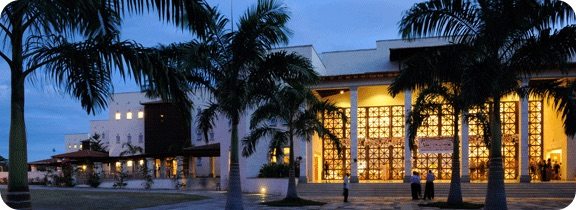
Fee Schedule
Fee Schedule for the 2024-2025 Academic Year.
Please click here to download the 2024-2025 Academic Year Fee Schedule (PDF format)
The above fees are applicable for the Academic year 2024-2025 and are subject to an annual review.
The Tuition fees include course fees, the use of essential course books, library books, co-curricular activities, IT infrastructure, science laboratory equipment, day trips, and certain classroom supplies.
The Residential fee in addition to the tuition fee also includes housing, weekend excursions and activities, laundry, and meals.
Notes
1. Miscellaneous Charges
1.1 Non-Refundable Admission Fee. Payable for students enrolling for the first time. The admission fee must be paid to secure a place for a child in the Academy.
This cannot be deferred or paid in instalments. The due date is one week after the offer has been accepted.
1.2 Refundable Security Deposit. Around 10% of the fees are payable on acceptance of admission and
should be paid together with the admission fee mentioned above. As the Security Deposit is different between
the PYP, MYP and DP, the differential will be invoiced when the child is transferred from PYP to MYP and from
MYP to DP. It is refundable when a student leaves the school as long as the required notice has been given in
writing and “No Dues” clearance is obtained from the Academy. No interest is payable on this deposit.
1.3 Good Faith Deposit. Paid for Grade 1, Grade 11 day students and all residential students to secure their
place, as part payment against their first Semester fee, due to limited capacity. This will have to be paid as soon
as the admission of the student is accepted for new joiners (including Grade 1)students and before 30 April for the
Grade 11 Students. All other residential students will pay the Good Faith deposit together with the Admissions Fee.
In the event that the student does not join the Academy, this deposit will not be refunded.
1.4 Lunch. The rates indicated above are applicable only if paid in advance at least for a whole semester
(50% of the total cost). The daily lunch rate is KES 400 for MYP and DP students and KES 350 for PYP students.
1.5 Medical Insurance Premium. Paid separately by residential students with the first tuition fee instalment.
1.6 Stipend. Paid separately by residential students and will be managed by the Academy. The students will be
able to withdraw a maximum KES 500 per week to cover any personal expenses. Any balance with the Academy will
be paid to the students at the end of the Academic Year.
2. Tuition
2.1 Sibling Discount. 5% is applicable for the second child, 10% for the third child, and 15% for the fourth and subsequent children. The discount will be adjusted according to the number of
children attending the Academy at the same time. This discount is not applicable where a family is receiving financial assistance.
2.2 Tuition Fee. Academic Year 2024-2025 fees are payable in two equal instalments (for each Semester), no later than 15 July 2024
and 15 December 2024.
2.3 Discount of 3% will be given on the tuition fees if paid for the whole year before the deadline (15 July 2024). These discounts
are applicable on the net amount payable after other discounts have been deducted and is not applicable to the families who receive
financial assistance.
2.4 AKDN Discount. AKDN employees, upon confirmation with any of the AKDN agencies, will get the following discount:
20% for residential students and 5% for any day students.
2.5 Currency. The fees can be paid in US dollars or Kenyan Shillings. The US Dollars fees will be indicated on the invoice using the exchange rate at which the banks are buying USD from the Academy. The Academy however reserves the right to change this policy.
3. Late and Outstanding Fees
3.1 A monthly surcharge of 3% will be added to the total outstanding dues older than 30 days.
3.2 If fees are not paid within one month’s period following the deadline, the student will be asked to stay at home or in the residences and will not be allowed to attend classes or participate in the other activities undertaken by the Academy. If the fees for the residential students are not settled within 2 weeks following the student being withdrawn from classes, the school may send the student back home. Any student who is out of classes for over 4 weeks could be asked to withdraw from school.
3.3 The Academy reserves the right to withhold results, school certificates, transcripts, or any other information and/or document until all outstanding dues are settled in full.
4. Financial Assistance
Newly admitted students who demonstrate financial needs can apply for Financial Assistance
through the Admissions office immediately after the admission has been confirmed. All current
students have to submit their applications before 8 March, 2024. An independent Committee is
responsible for reviewing and approving any request for Financial Assistance.
5. Withdrawal
If a student wishes to leave the Academy, three months’ advance notice of withdrawal must be given in writing and if not done the pro-rated three months' fees will be due and payable. School clearance will not be possible until any outstanding dues are settled in full.
6. Other Education-related costs
6.1 Field Trips. Students are expected to participate in compulsory curriculum and bonding trips as well as optional trips, for which the parents will be invoiced separately. Information on these field trips will be shared with parents at least one month in advance.
6.2 Exam fees. MYP and Diploma will be billed separately based on actual fees from the International Baccalaureate Organization (IBO).
6.3 Personal Computer. MYP and DP students are required to own a personal computer that meets minimum performance standards as most of the assignments as well as the communication between the teachers and the students are computer-based. The system should be loaded with either iOS or Windows, MS Office, Internet browser, and Antivirus.
7. General Notes Regarding Payment
7.1 The Academy does not accept cash for fee payments.
7.2 All payments must be made by direct bank deposit, bank transfer, or M-pesa even if payment is made by a third party such as a sponsoring organisation.
7.3 Parents are responsible for ensuring that the fee payments are made into the correct bank account of the Academy. In the unlikely event of any change in the bank account, the changes will be communicated to parents in writing via a hand-delivered letter from the Academy.
7.4 Parents must provide the finance office (mba-bursar@agakhanacademies.org), with a hard or an electronic copy of the proof of payment showing the full name of the student and Student Identification Number as soon as the funds have been transferred for issuance of payment receipt. The absence of this information may delay crediting the fees reflected on your account in our system.
7.5 The above terms and conditions may be modified, or new terms may apply to reflect changes in the law or our services. For further information please contact us at mba-bursar@agakhanacademies.org
8. Note on disclosure and sharing of student-related data and information:
Schools will store and may disclose and share information such as a student's name, address, telephone number, date and place of birth, honours and awards, exam papers and other works of the student, parents’ contact and other details, fees charged and outstanding fees against the student, and dates of attendance with third parties as and where is required for the normal operations of the school. The fees-related information can be shared with third parties to assist the school to collect fees where the payments have been delayed and not made for the services provided as per the above term.
Meet Our School Community
Spotlights on Alumni
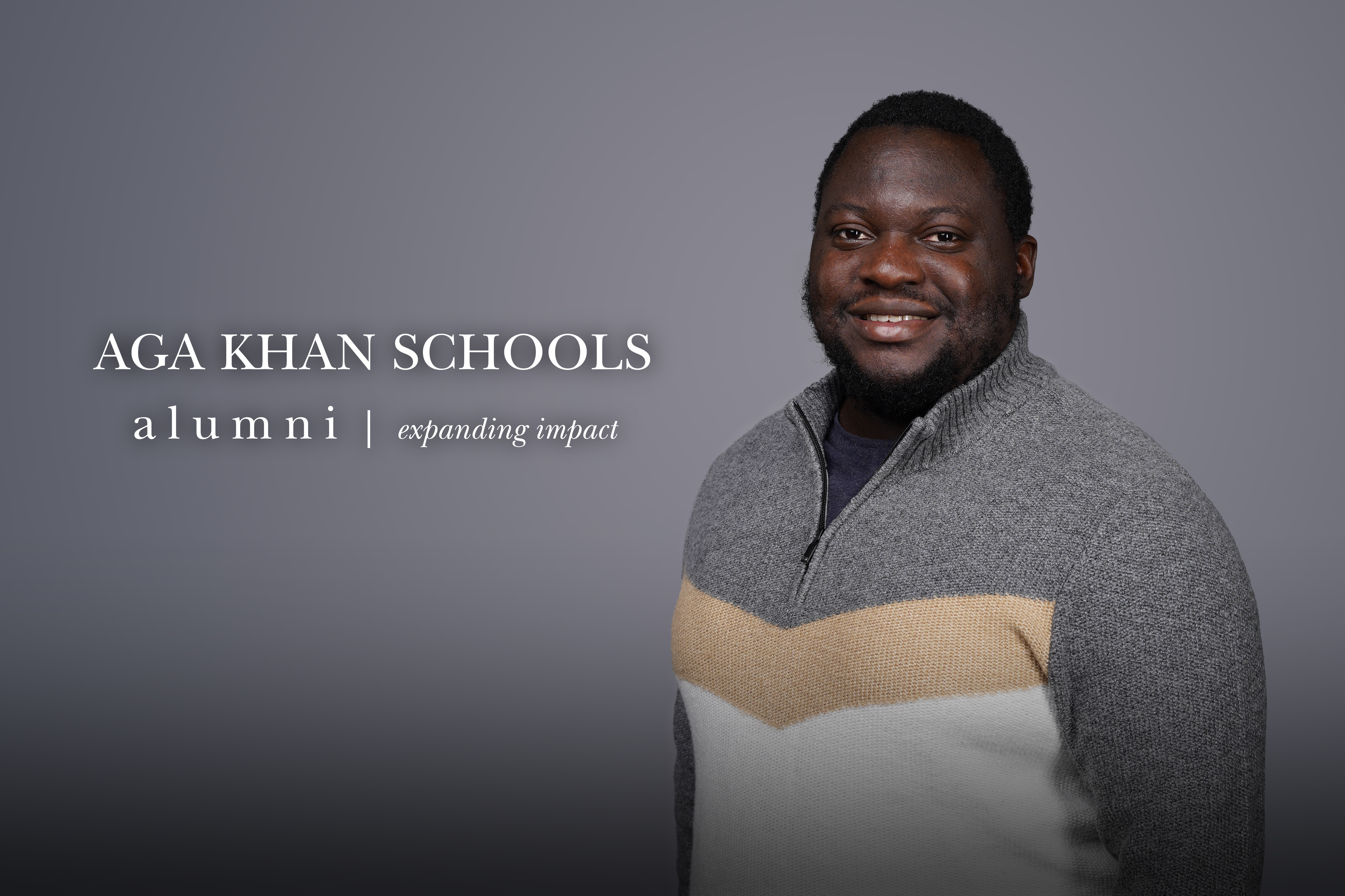
At the Aga Khan Academy Mombasa, Ham Serunjogi – CEO and co-founder of African fintech giant Chipper Cash – realised the importance of staying connected to something larger than himself. The Forbes 30 Under 30 honouree is now serving as an advisor to the US President on African diaspora engagement.
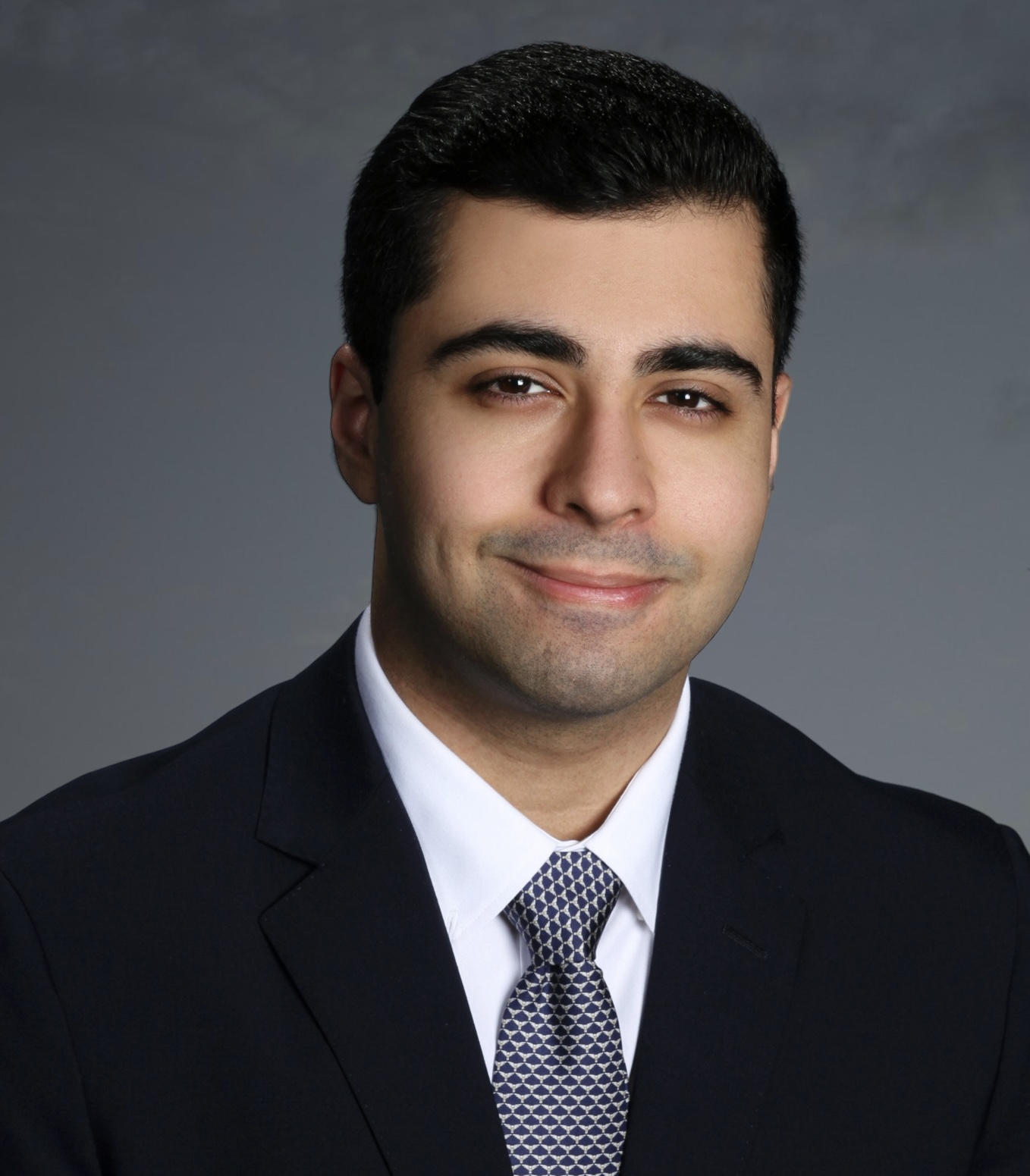
Although it has been a few years since he graduated from the Aga Khan Academy Mombasa, Alqaim Lalani, Class of 2019, says his years at the Academy had a major bearing on his academic career and strongly influenced his outlook on life. Now, as a graduate of Columbia University in New York, Alqaim is giving back to the Aga Khan Academies community that he says shaped his life and gave him so much.
Jemin Patel’s journey to where he is now is the result of hard work and passion, values he picked up during his time at the Aga Khan Academy Hyderabad. Now, he's working at one of Canada's top accounting and consulting firms, still standing by the notion, "hard work always wins."
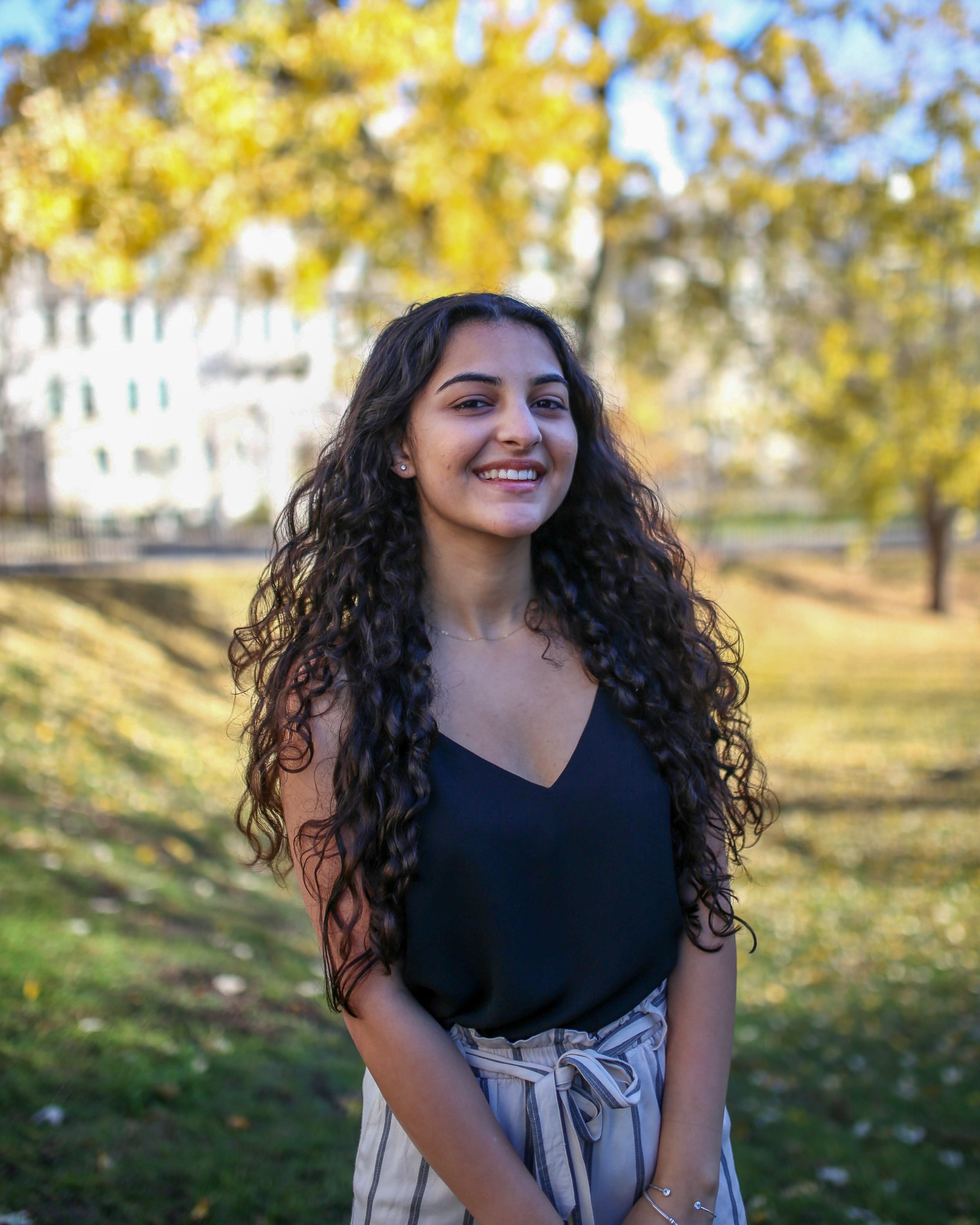
Muskaan Bhaidani is an alumna of the Aga Khan Academy Mombasa who was in the Class of 2020. Graduating with an impressive International Baccalaureate (IB) Diploma Programme (DP) score of 44 out of 45, Muskaan is now attending McGill University in Montreal, Canada.

Anahita Aman, a graduate of the Class of 2020, studied at the Aga Khan Academy Hyderabad for eight years. Currently pursuing history at the University College London, she hopes to build a career in international development.

Congratulations to the Class of 2022! We are so proud of you and cannot wait to see what you do next. As we welcome our new graduating class to our alumni community, we asked four distinct graduates from the Aga Khan Academies in Mombasa and Hyderabad about their journeys and aspirations.

Qamili Dave, a 2017 alumna of the Aga Khan Academy Mombasa, discovered her passion for the culinary arts during her DP1 internship at Serena Beach Hotel. Since then, she has gone on to pursue her passion for cooking, including undertaking Harvard University courses to perfect her skills. What Qamili loves most about being a chef is preparing a good satisfying meal that warms the hearts of people.

Lilian Odera, a 2015 alumna of the Aga Khan Academy Mombasa and recipient of the Karen McKellin International Leader of Tomorrow (ILOT) award, is the embodiment of a true leader and agent of change. True to form, she has a passion for actively being involved in community-based initiatives to influence change and creatively find solutions to issues in whatever way she can.
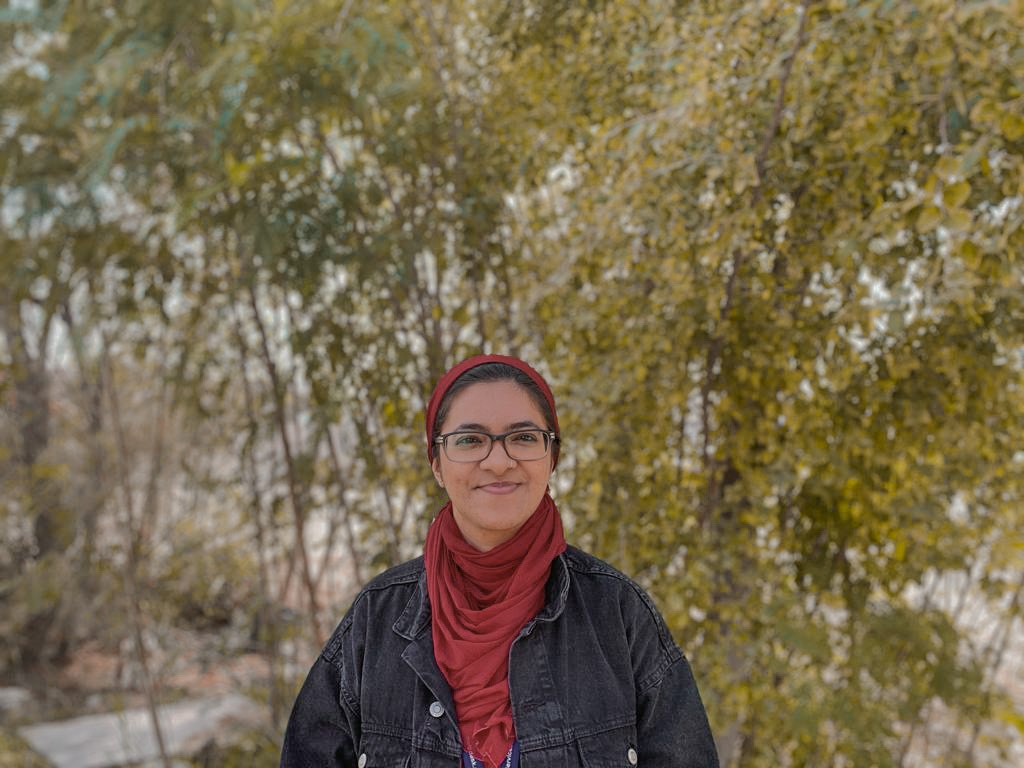
Aleesha Suleman, a graduate student at UCL-Qatar, has never lost sight of what has always been important to her: giving back to her home country of Kenya.

Raghuveer Vyas, director of the United Nations Initiative at New York University, is on a mission to bring change to the world through policy development and fostering a continuous dialogue between international leaders and the youth.

Hussein Jiva graduated from the Aga Khan Academy Mombasa after what he feels was a transformative journey.
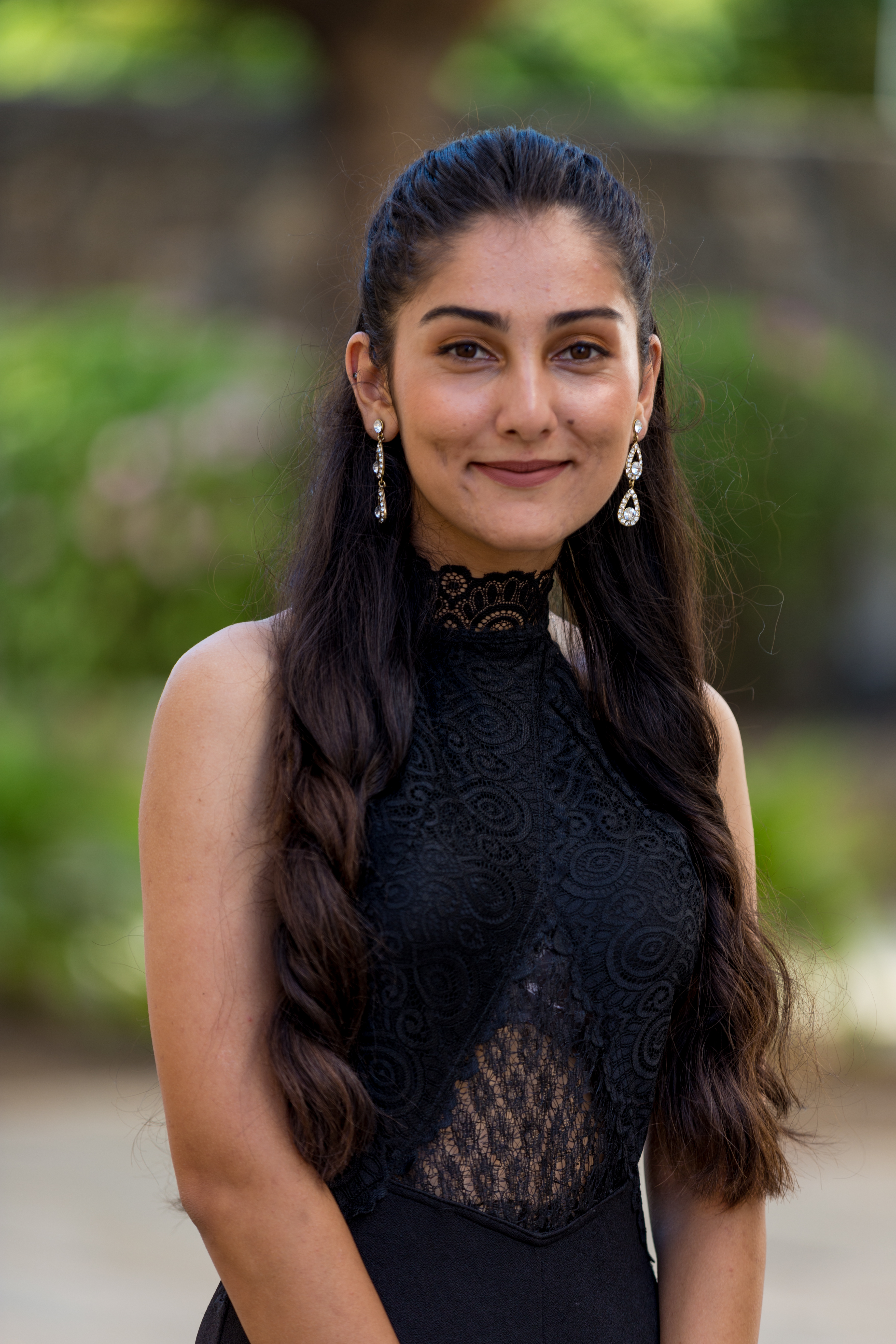
With a determination to change her country into a land of opportunity for all, Anzhela Mirzoeva, a recent graduate from the Aga Khan Academy Mombasa, will further her education at the Connecticut College in the United States by studying International Relations and Human Development.
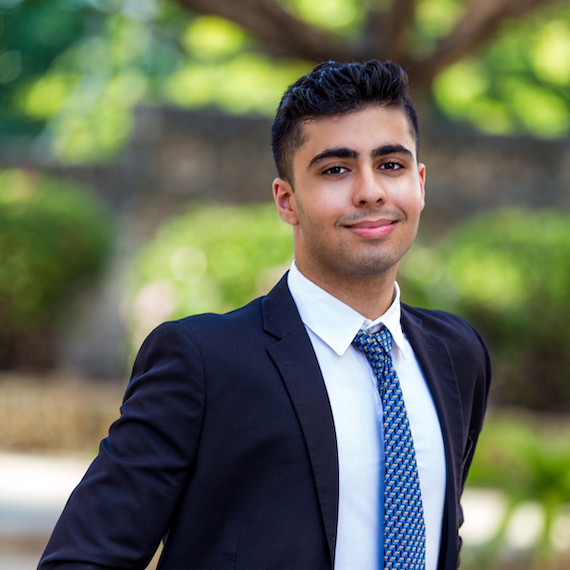
For Alqaim Lalani, his recent graduation from the Aga Khan Academy Mombasa brings him one step closer to realising his dream of attaining a deeper understanding of how economics and politics affect the world around is. Alqaim will be enrolling at Columbia University in fall 2019, as a prestigious Kluge scholar.
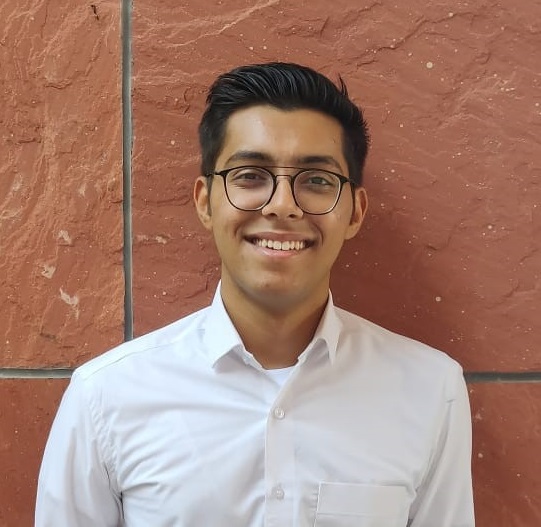
''I do not want a career in something predetermined for me from this age. When I am asked where I will be 15 years from now, I can promise you it will not be cooped up in an office doing routine work. I will probably be out there inventing something meaningful and purposeful, something which can be used to change the world.”
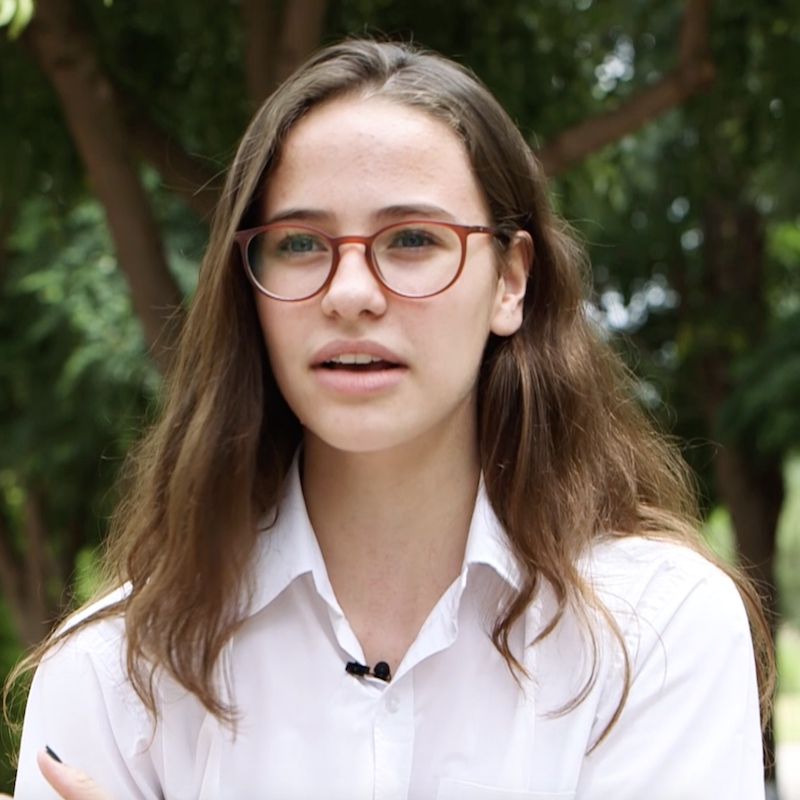
The International Baccalaureate (IB) curriculum is essential in enabling the Academies to develop well-rounded leaders of tomorrow. Hear from Zia Chapman, Class of 2018, and understand how this influenced her in choosing the Academy for her education. Zia is now a scholarship student at UBC in Canada.
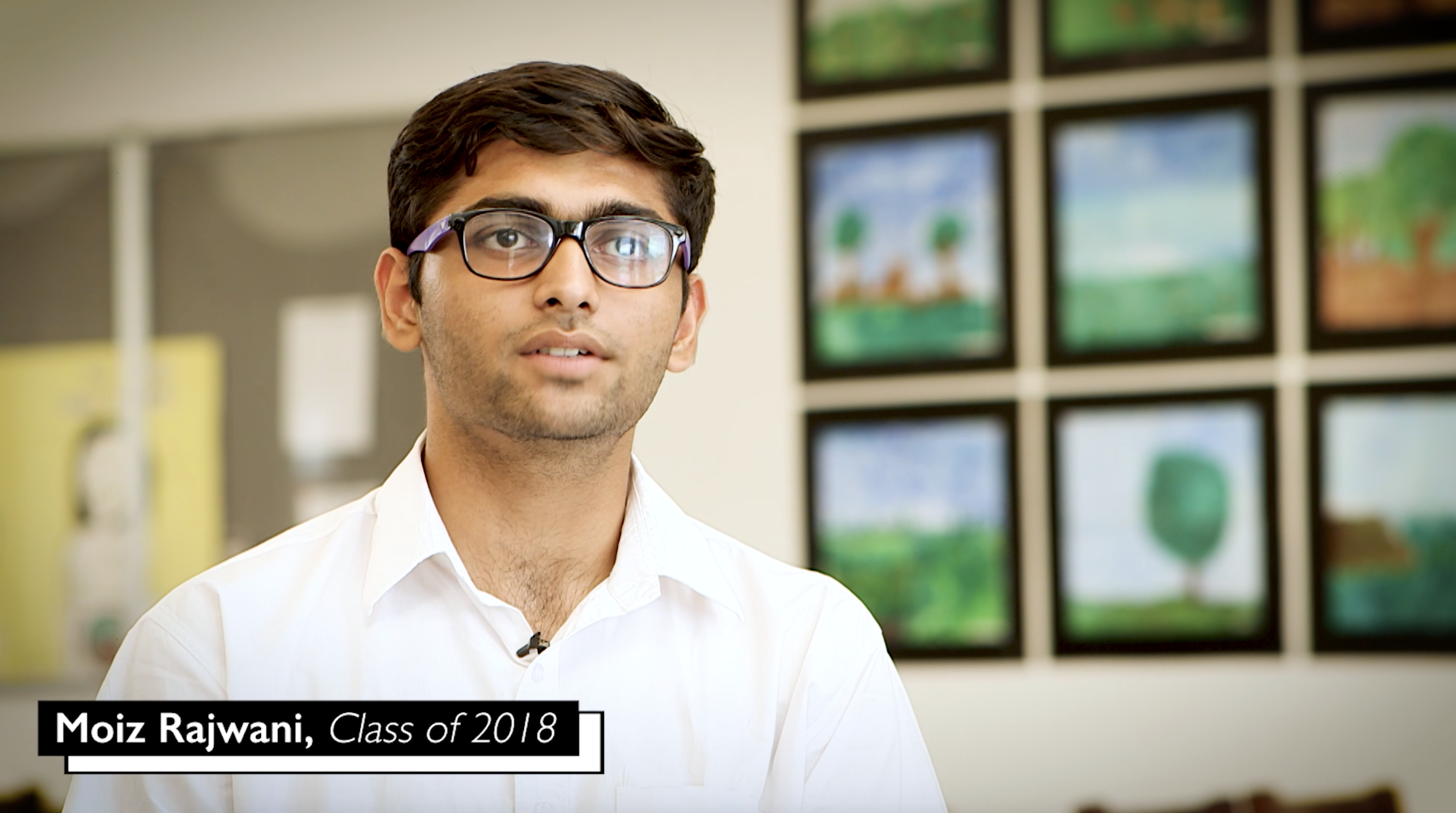
Through the inquiry-based International Baccalaureate curriculum, the Aga Khan Academies aim to develop young individuals who will have the capacity to lead and to build strong civil democratic societies in the future. Hear from one of our alumni, Moiz Rajwani, Class of 2018, and see how we have been turning this vision into reality at the Academies. Moiz was awarded a scholarship at Western University in Ontario, Canada and enrolled in September 2018.

"I always wanted to work with people who spend every single day without any resources at their disposal, to work on the pressing issues that exist in India, issues that most of us never see through our rose-tinted glasses."
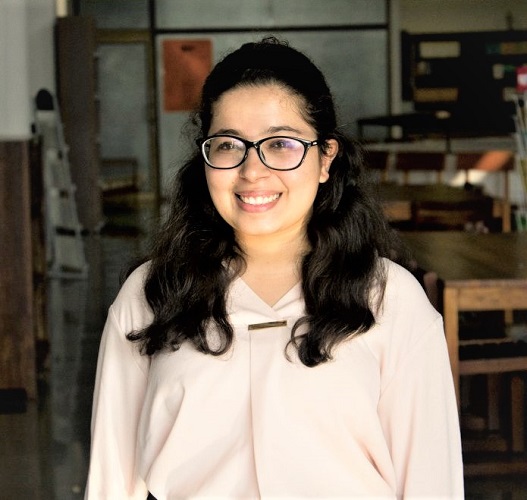
“The IB curriculum followed at the Academy has played a pivotal role in building many essential skills for university life. Its skill-based learning approach, and connecting classroom learning to the real world, also prepared me well for higher education."

“The Academy helped me become comfortable with making mistakes and encouraged me to focus on identifying solutions instead – igniting an entrepreneurial spirit within me. It is this spirit which led me to take a year off, work on self-driving cars, build my own news-reading bot, experiment with developing a cloud-storage service and have the confidence to take the road less taken."
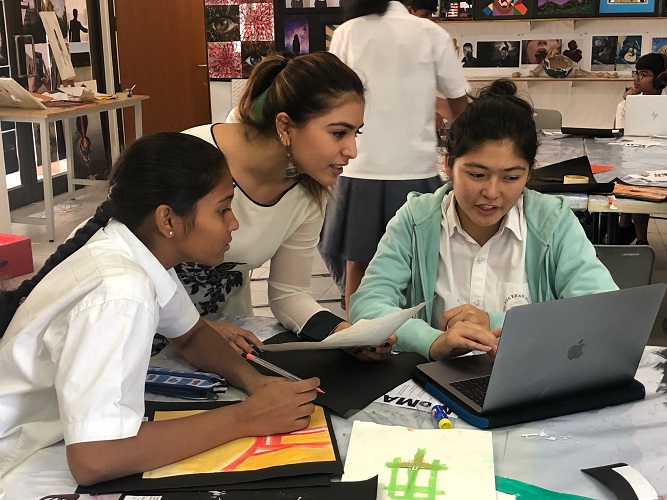
This 2014 AKA Hyderabad graduate is in some ways a time capsule from the Academy’s early years, and like a time capsule, she reminds us of things that have changed, and also about the things that have remained the same. “The Academy has made me the person I am today,” she says. “I wanted to give back to school what it has given me.”
Josephine Awino, alumna of the Aga Khan Academy Mombasa, will be attending Wellesley College for her undergraduate studies in environmental science. She shares a reflection on her personal journey at the Academy in which she developed a sense of self and fostered her passions.
Muriuku Njonjo graduated from the Aga Khan Academy Mombasa with the receipt of a full scholarship to the University of Waterloo in Canada. He shares a personal reflection about his time studying at the Academy: "The Academy changed my way of thinking, my way of doing things and informed my purpose in life."
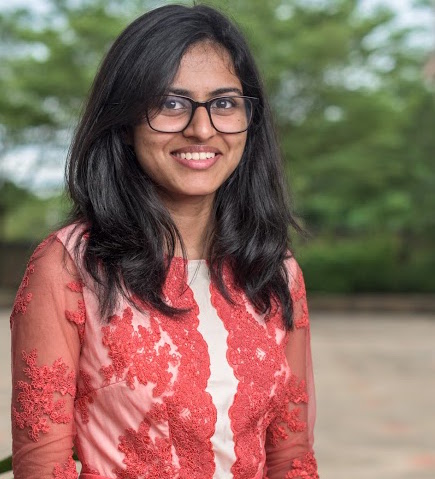
Kamila Janmohamed graduated from the Aga Khan Academy Mombasa this year. Upon anticipating her upcoming start at Yale University, Kamila reflects on the intellectual growth and strong sense of self she has developed over the past four years at the Academy.
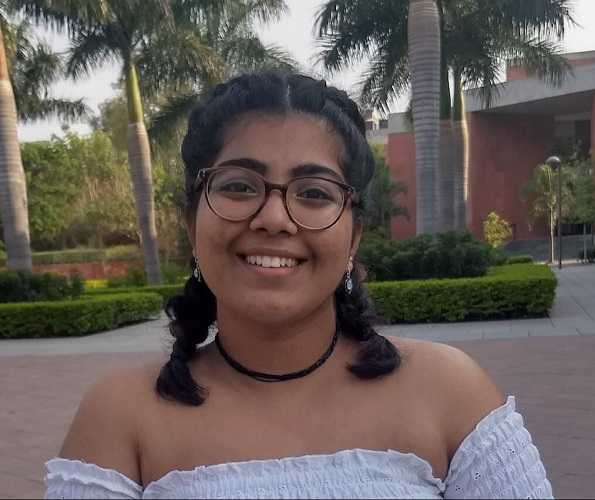
I love that my classes are filled with students from all parts of the country, irrespective of their financial standing or cultural background. I strongly believe it helps build our vision of pluralism.
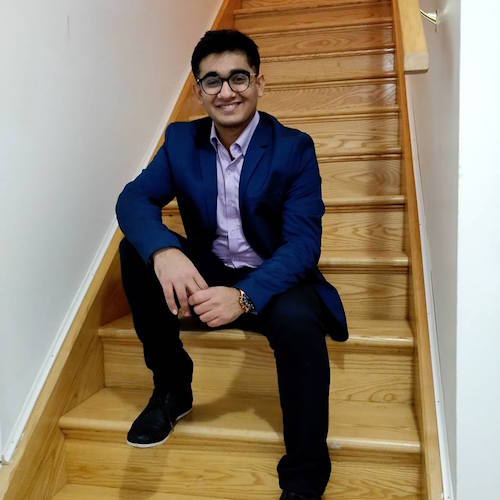
Ariq Kapadia, alumnus of the Aga Khan Academy Hyderabad, shares a reflection on his personal journey during his time at the Academies: "The experience that I had in those five years at the Academy continues to develop me further and make me more capable of success."
Inaara Sarfani shares a reflection on her personal journey at the Aga Khan Academy Hyderabad. She explains that her time as a student there entirely shaped the person she is today and allowed her to develop a far-reaching skillset.
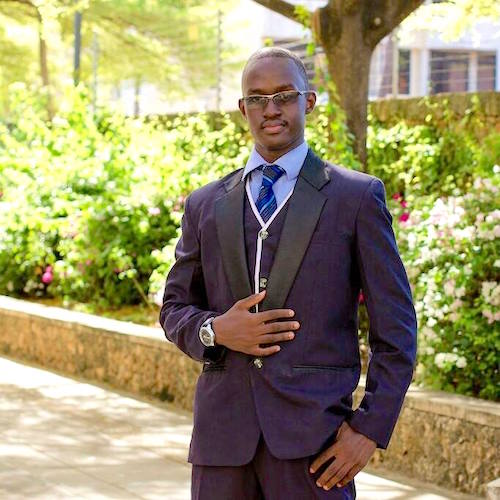
Joshua Abuto tells an inspiring and promising tale of what drives him to sustain his vision of making a difference in the lives of his fellow citizens in Kenya. A 2016 graduate of the Aga Khan Academy Mombasa, Joshua is currently in his second year at the University of Texas at Arlington on a scholarship where he is studying computer science and engineering.
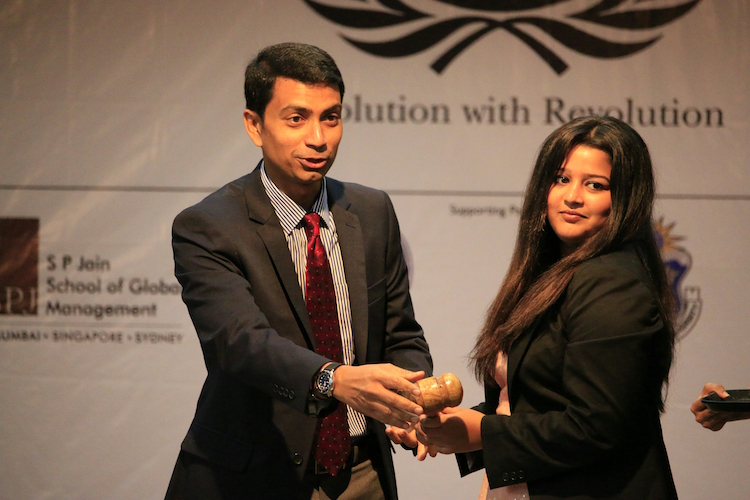
Khushboo Shah shares a reflection on her personal journey at the Aga Khan Academy Hyderabad: "I believe that the Academy’s dynamic vision has allowed me to believe in my imagination, passion and curiosity while pursuing ambitious projects."
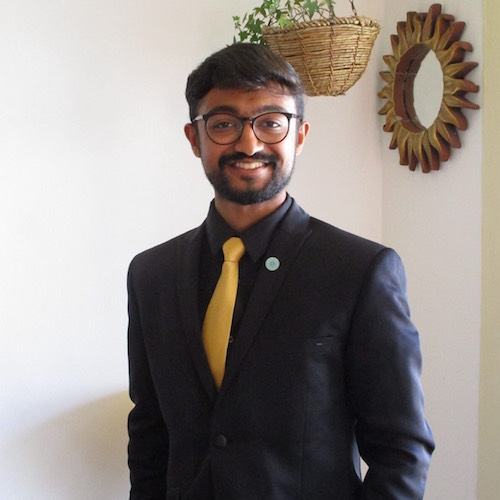
Imtiyaz Hariyani credits the Aga Khan Academy Hyderabad with giving him more than just the academic skills he needs to succeed at the undergraduate level. “The spirit that the Academy embedded in me has allowed me to emerge as a global scholar with the support of my family and lifelong friends that I made in Hyderabad and elsewhere,” he explains.
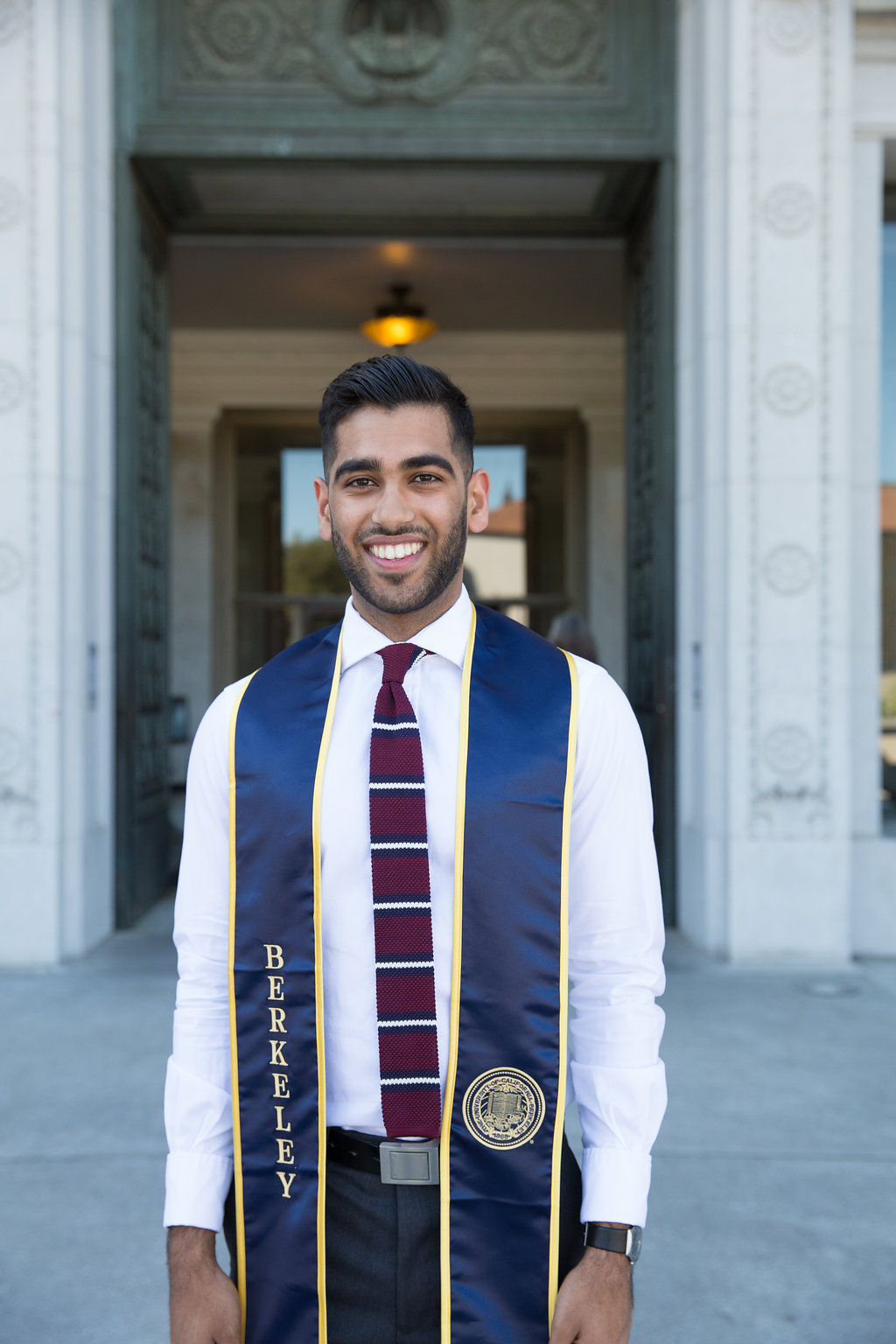
An alumus of AKA Mombasa and University of California Berkeley, Rahim reflects: "The Academy helped me to grow to be the man I am today by instilling values of social conscience and intellectual curiosity that I continue to hold precious today."
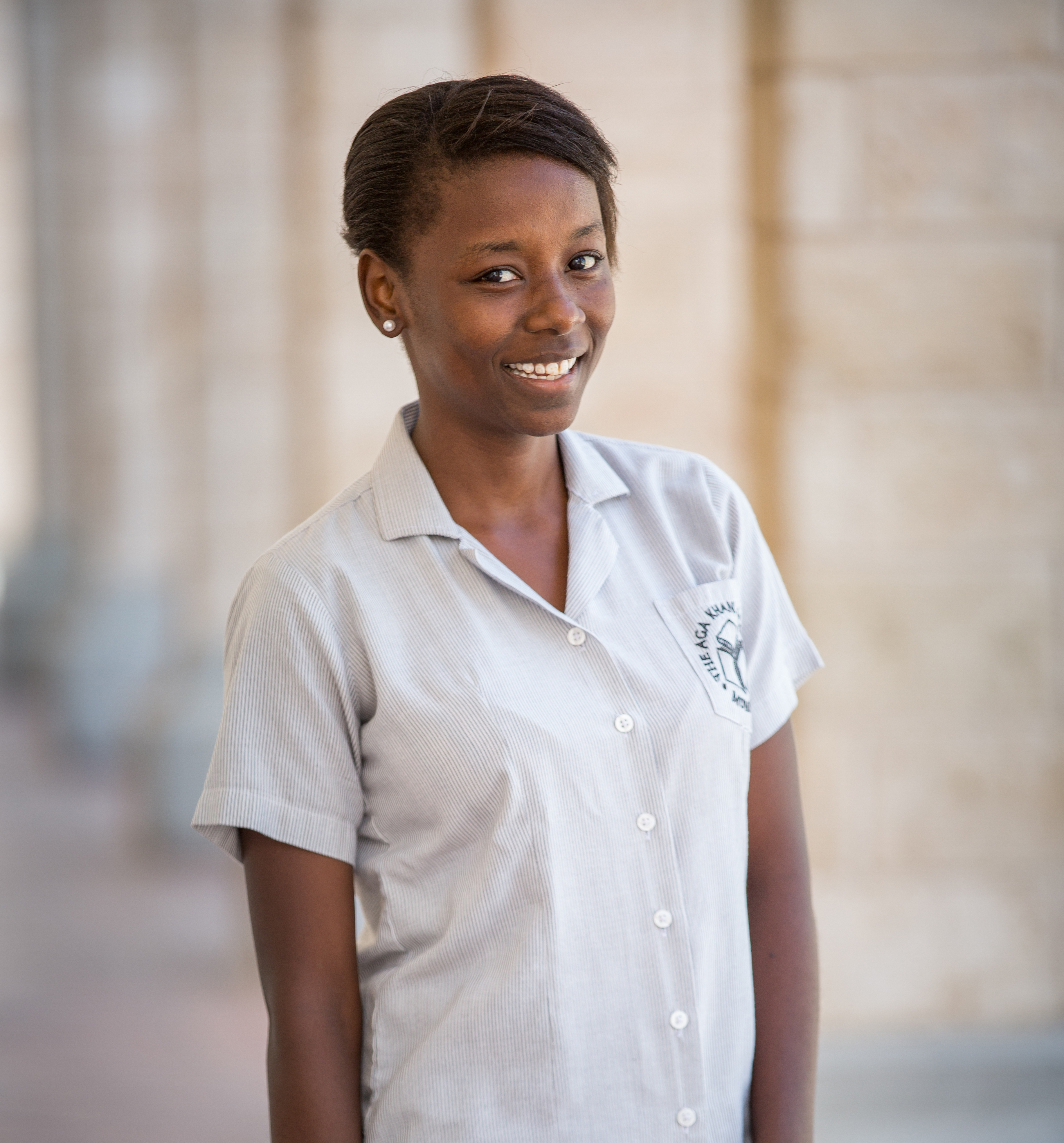
Mary considers her time at the Academy in Mombasa to be a gift. With compassion and leadership, she is determined to help students with similar backgrounds succeed and receive the same opportunities she was granted.

Danish is global citizen with a creative approach to life. One of his many achievements is the award-winning app, Orai, which aims to make anyone become a better public speaker using artificial intelligence.
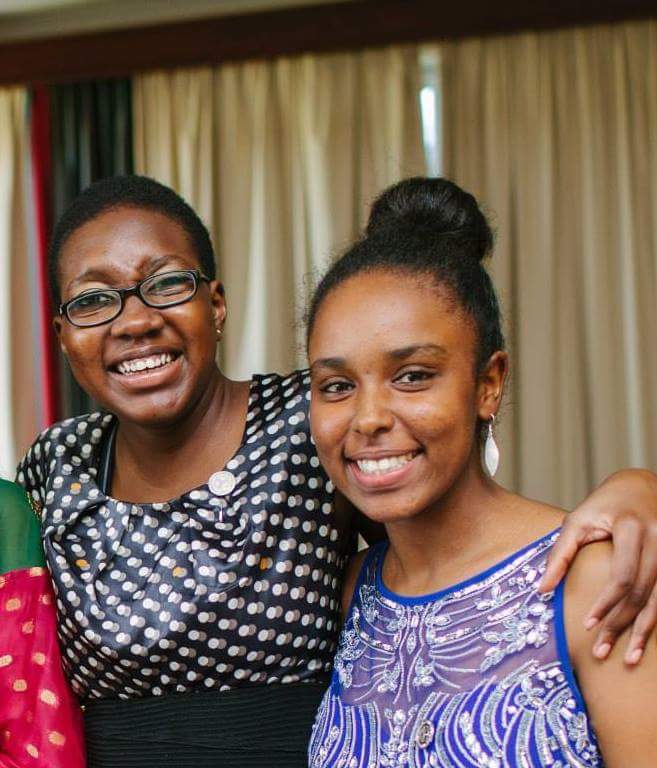
“The Academy helped instil within me a need to contribute to community where possible and a sense of self confidence and teamwork.”

“I believe that with education, people have the power to tackle and solve problems that affect their communities,” reflects Kelvin Njue, a graduate from the Aga Khan Academy Mombasa who has benefitted from the Ontario Tuition Waiver Programme.
Ruhi Kamal Manek, an alumna of the Aga Khan Academies Mombasa, took away one enduring lesson from the Academy: the importance of engaging in thoughtful and careful consideration of diverse opinions.
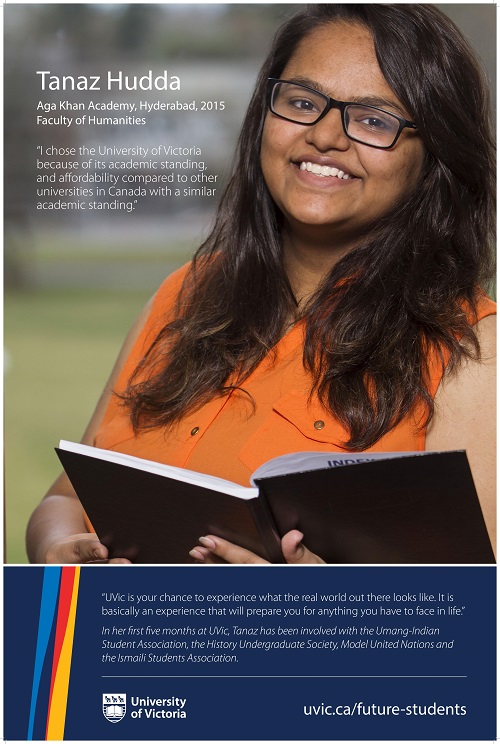
Tanaz Hudda currently acts as the new poster girl for the University of Victoria. She graduated from the Aga Khan Academy Hyderabad in 2016 and has just completed her first year of university in Canada.
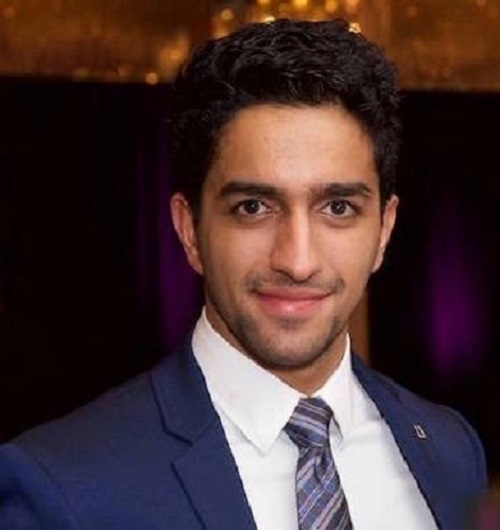
Aleem Mawji shares his journey of self-discovery, which began at the Aga Khan Academy Mombasa and continued towards creating tangible change.
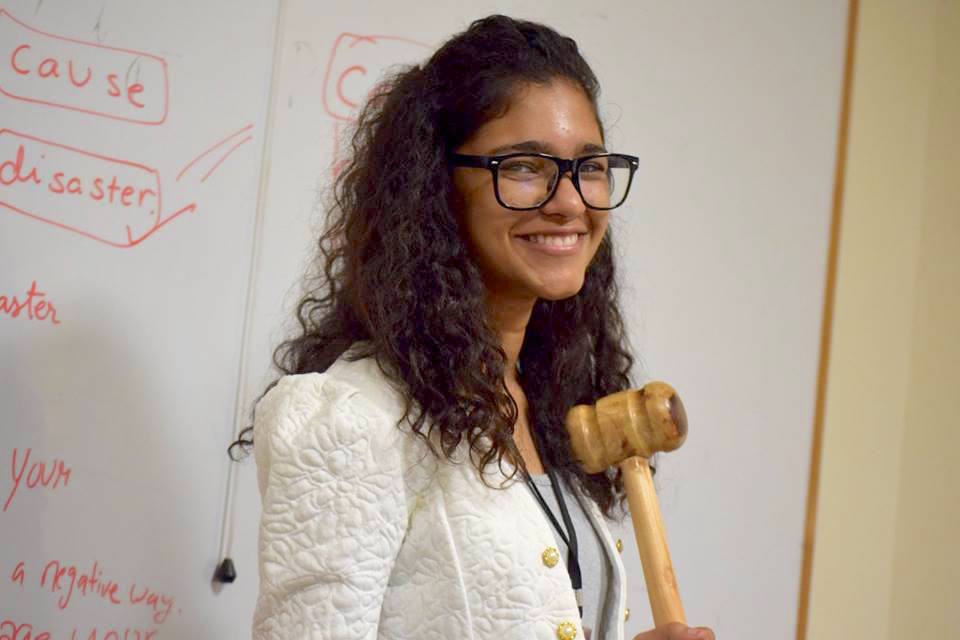
Khushboo Khoja has a strong passion for helping others which she developed during her time at the Aga Khan Academy Hyderabad. “I feel like my experience at the Academy was very significant as it made me realise that I am interested in working with social issues and trying to help communities,” she reflects.

Aman Punjani graduated from the Academy in 2016 and took a gap year to pursue his career as a competitive cyclist. Today, he is the U-23 Telangana state champion.
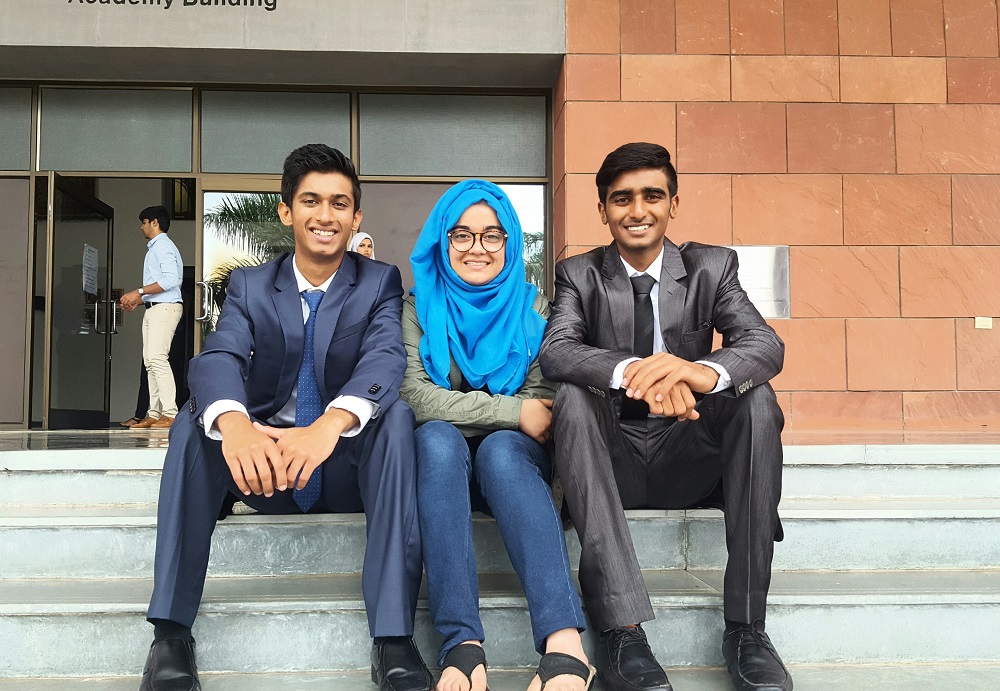
“Being part of an open-minded community that encouraged challenging what we were taught, the willingness to accept one another and inspire each other to grow constantly, was very refreshing. I credit these experiences for much of who I am today.” – Dania Quadri, Class of 2014

Aga Khan Academy graduate Joshua Tibatemwa swam for Uganda in the 2016 Rio Olympic Games. He credits the Academy with growing him not just academically but "as a person.” He plans to return to Uganda, saying, “If I want things back home to change, I have to work to be the change.”

“I think that at the end of the day what everything comes down to is how we can be citizens of the world and how we can change the world that we live in to make it a better place for ourselves and children that follow us. And part of that also means giving back to your own community,” says Karishma Bhagani.

"The Academy is an environment that challenges and nurtures leaders who are fearless, courageous and stewards. I have always envisioned growing up to be one myself."

Kashyap Gohel, who graduated from the Aga Khan Academy in Mombasa, tells us about his experiences and how the Academies contributed his many accomplishments.

Ham Serunjogi, an alumnus of the Aga Khan Academy Mombasa, is a natural leader, bold thinker and team player. A recent graduate of Grinnell College in Iowa, Ham traveled widely before landing a job at Facebook. He has a passion for making connections that give back.

"There are a lot of values that the Academy instilled in me that I carry to this day. It has taught me the importance of being aware of the community around us as well as giving back to the community whenever possible," says Class of 2012 alumnus Fatema Sheikh.
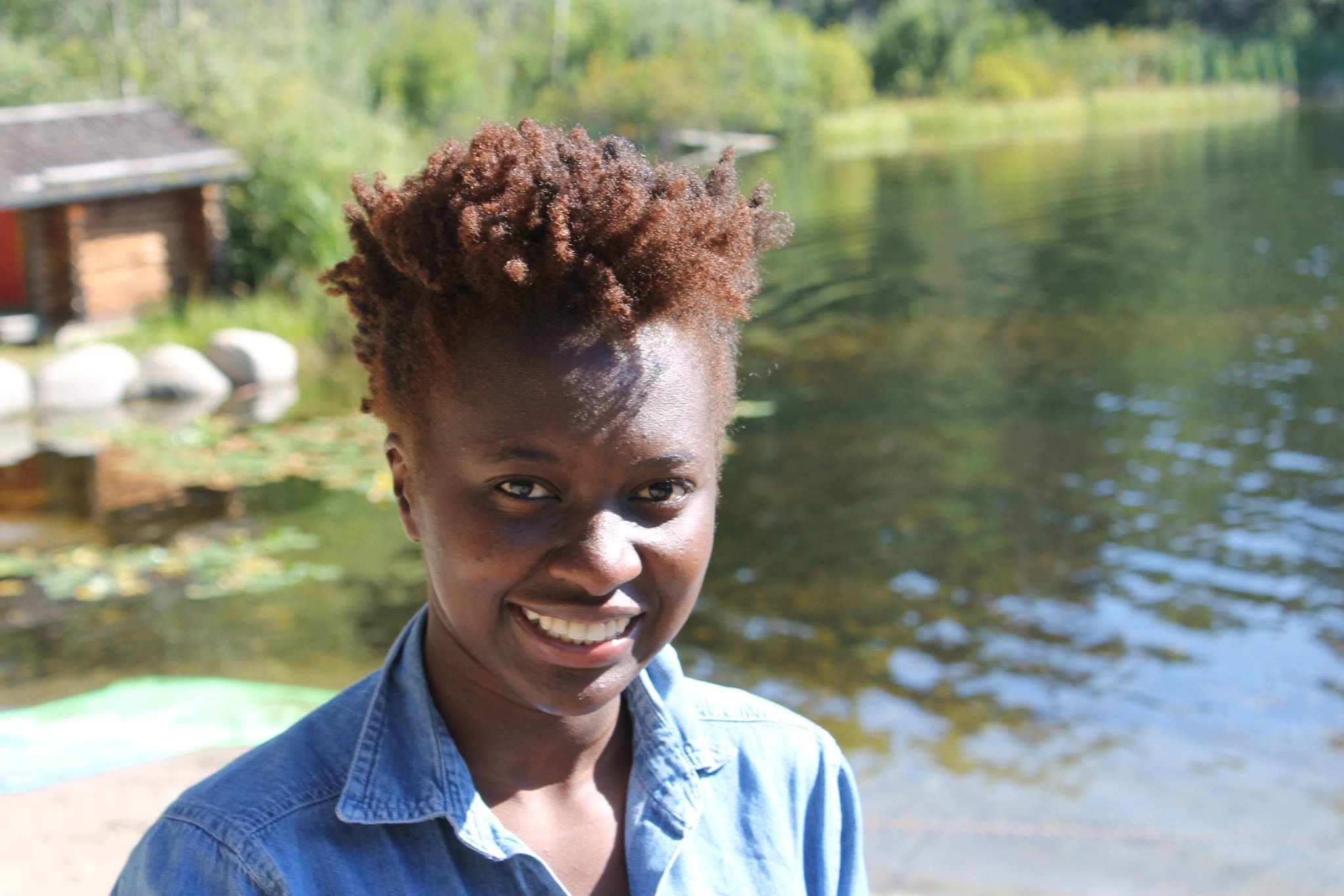
“I believe [the Aga Khan Academy Mombasa] is where I shaped my values that I still hold to this day. It is also where I saw and felt the importance of building a community, no matter how large or small.” Indeed, the importance of these values to Mirabelle Arodi is obvious in her actions after graduation from the Academy.
Spotlights on Teachers
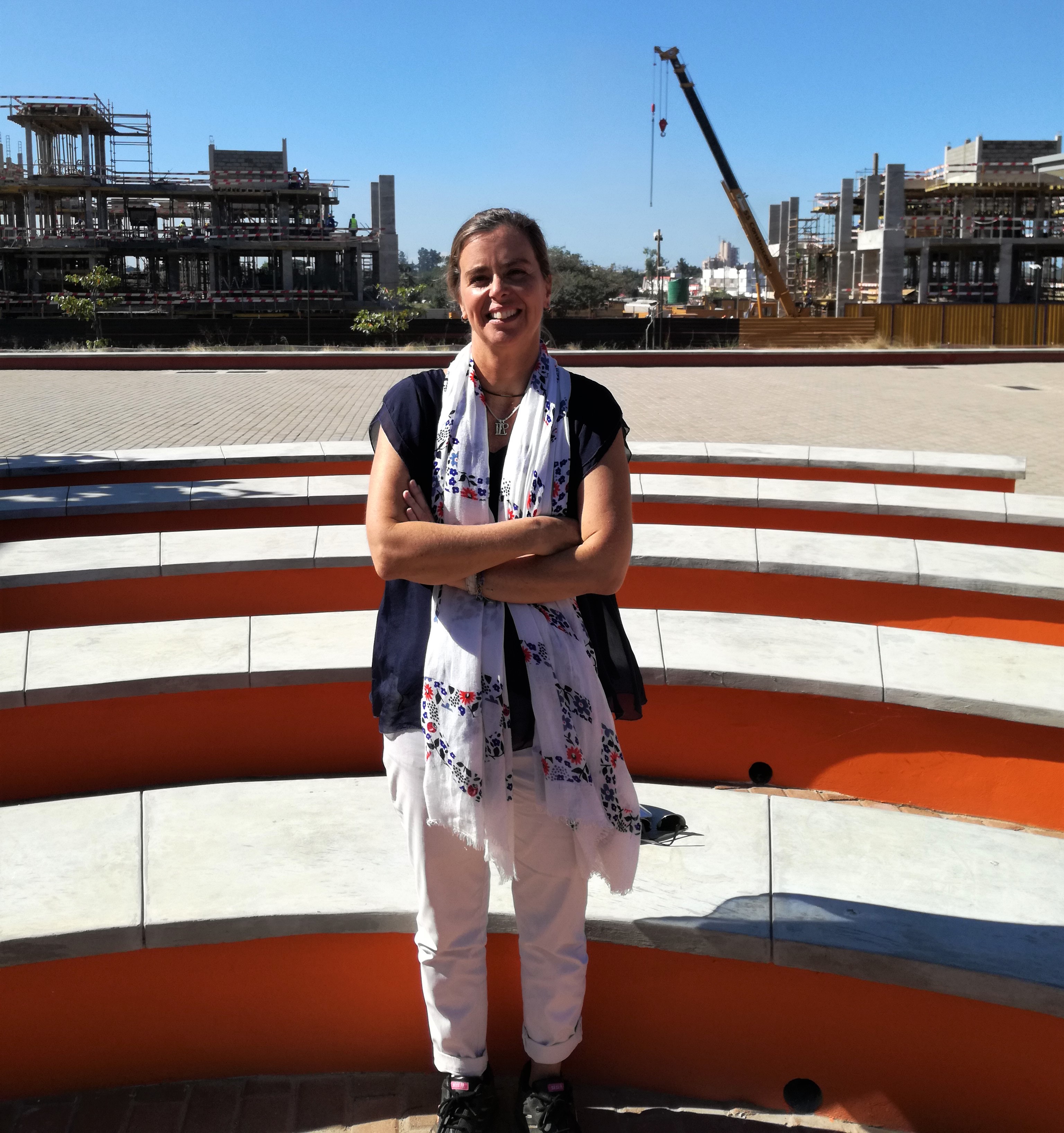
From the construction of the Aga Khan Academy Maputo’s very first buildings to some of its final facilities, Laura Ivens Brandão has been involved in the AKA Maputo’s development and expansion since the very beginning.
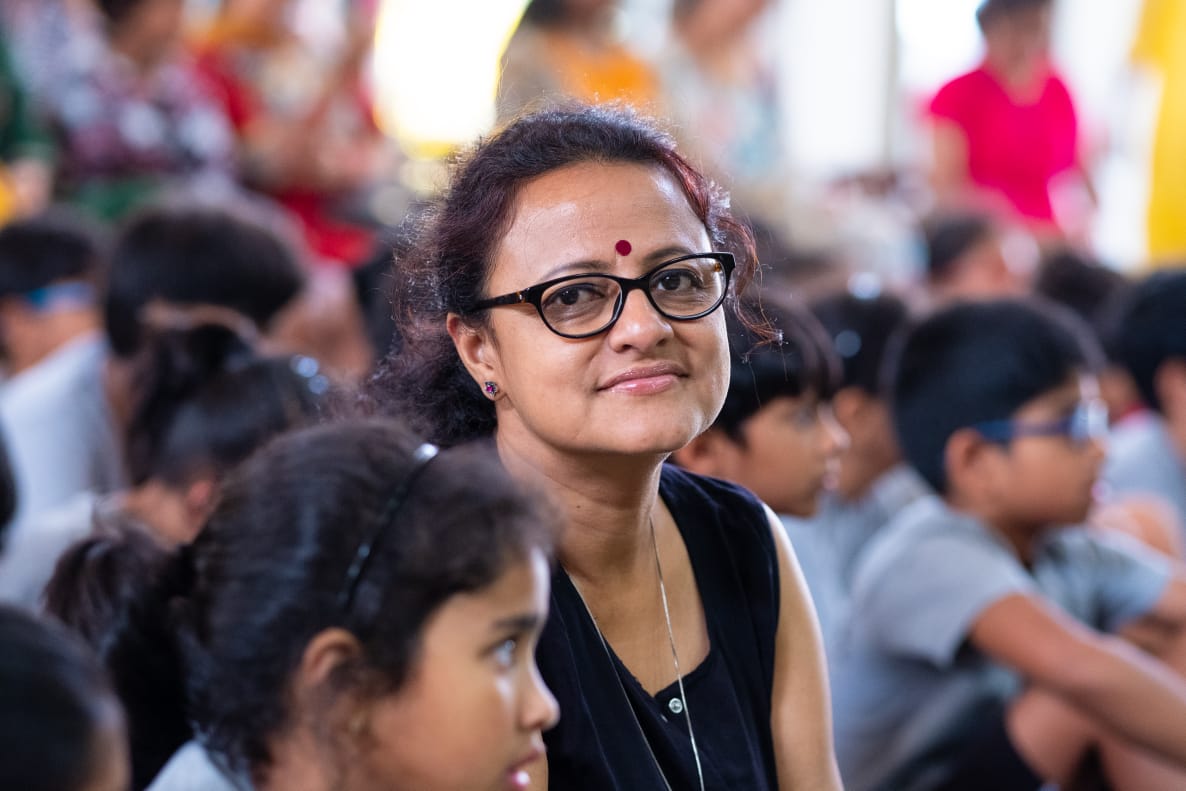
Laboni Banerjee recently celebrated her 10-year anniversary with the Aga Khan Academy Hyderabad as a Grade 3 teacher. Throughout her time, Laboni has seen the Academy grow in size through the number of programmes, students and staff, making the Academy a second home for her she is grateful to be a part of.
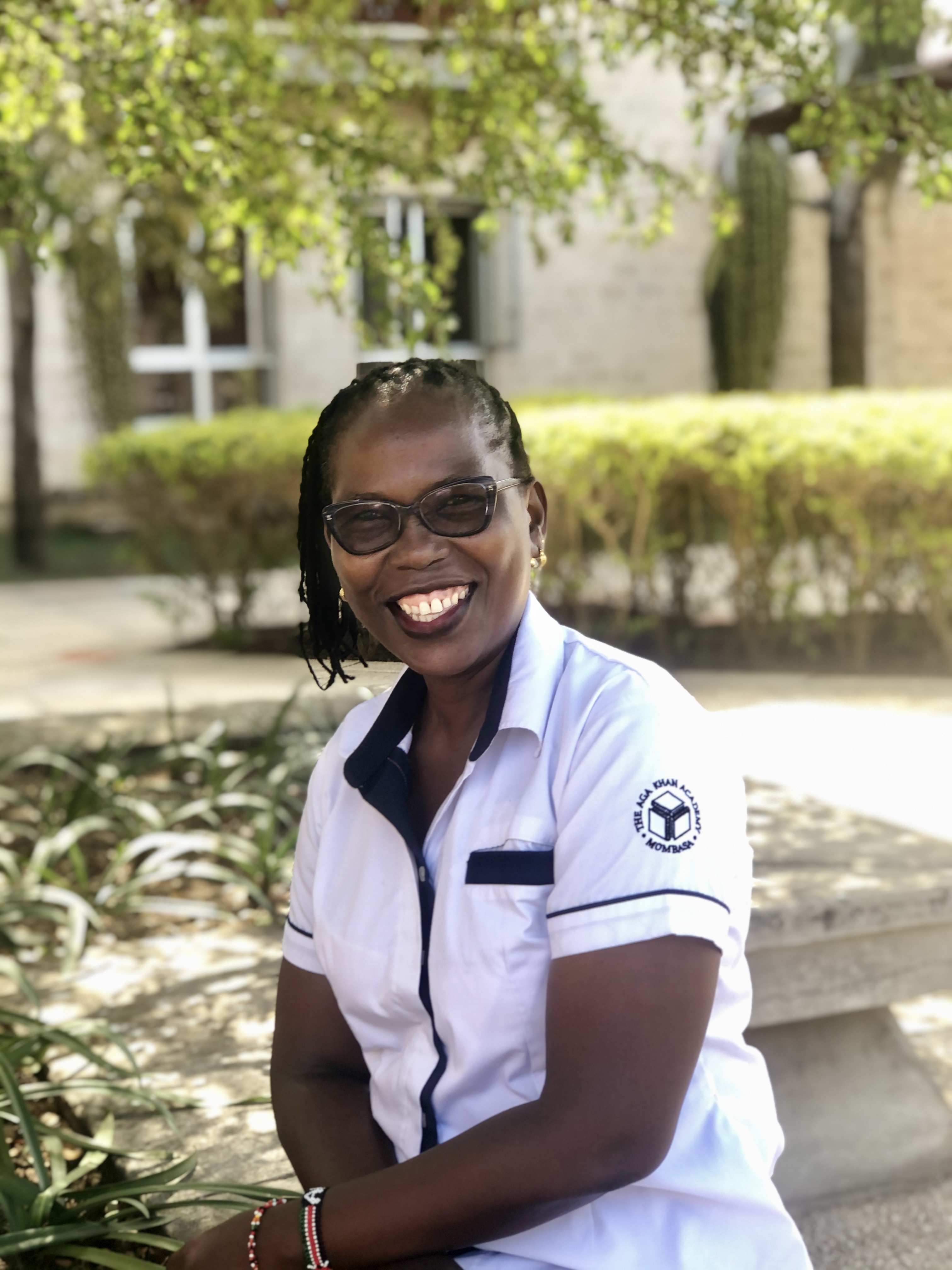
When Milka Gatungoh joined the Aga Khan Academy Mombasa in 2010 as the residential school nurse, she knew her experience was going to be exciting and fulfilling.

Since he joined the Academy in 2015, Titus has been a transformational leader. He is passionate about continuously developing effective teaching practices, thus giving students the best learning experiences. As he expresses, “There is no greater joy than nurturing young learners and witnessing them grow into more responsible, reflective and increasingly independent individuals.”
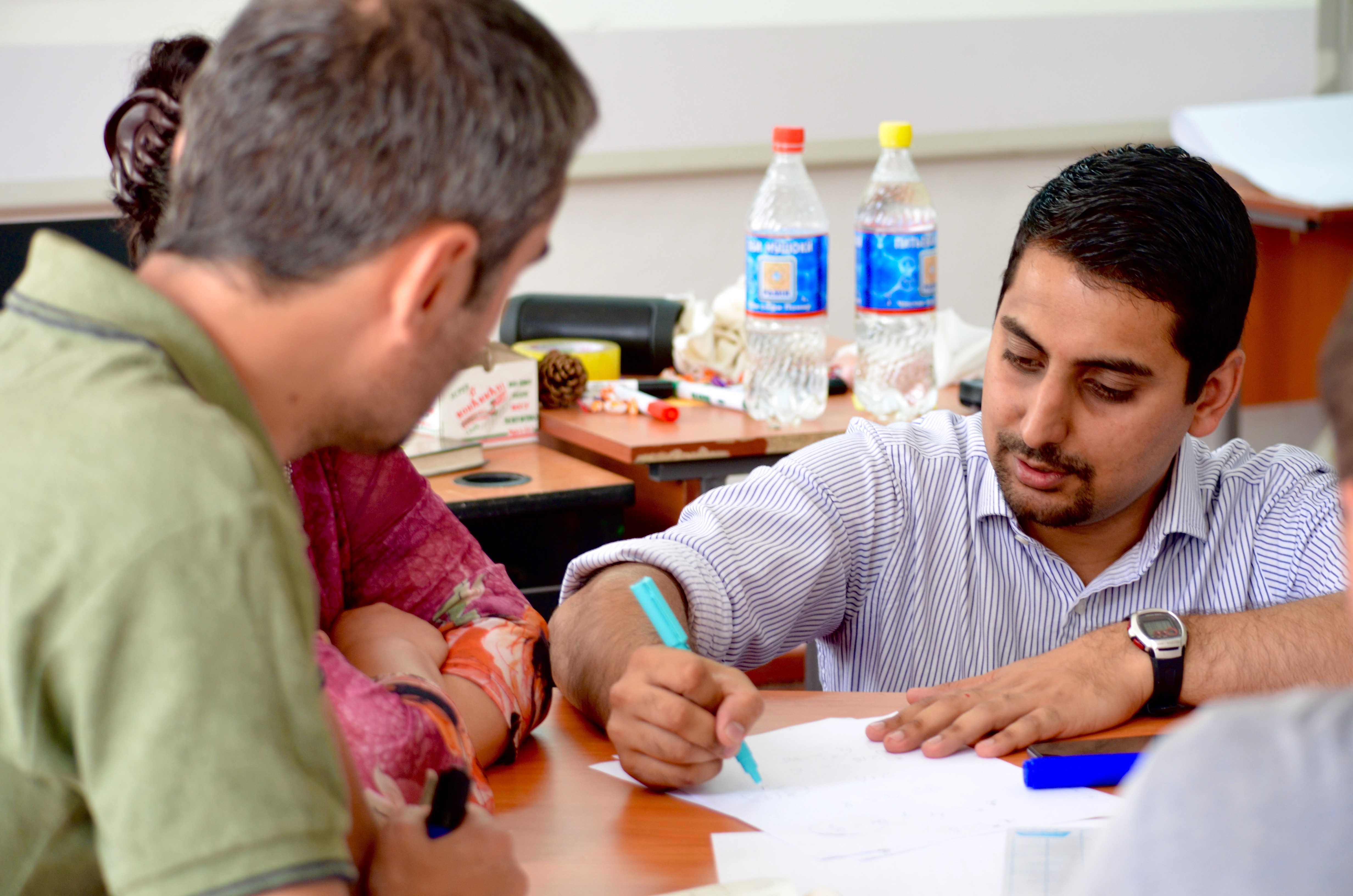
Joining the Academy virtually for the new academic year 2020 - 2021, our new Senior School Principal is excited to provide support to our teachers and collaborate with them in order to make as big an impact as possible as a group.
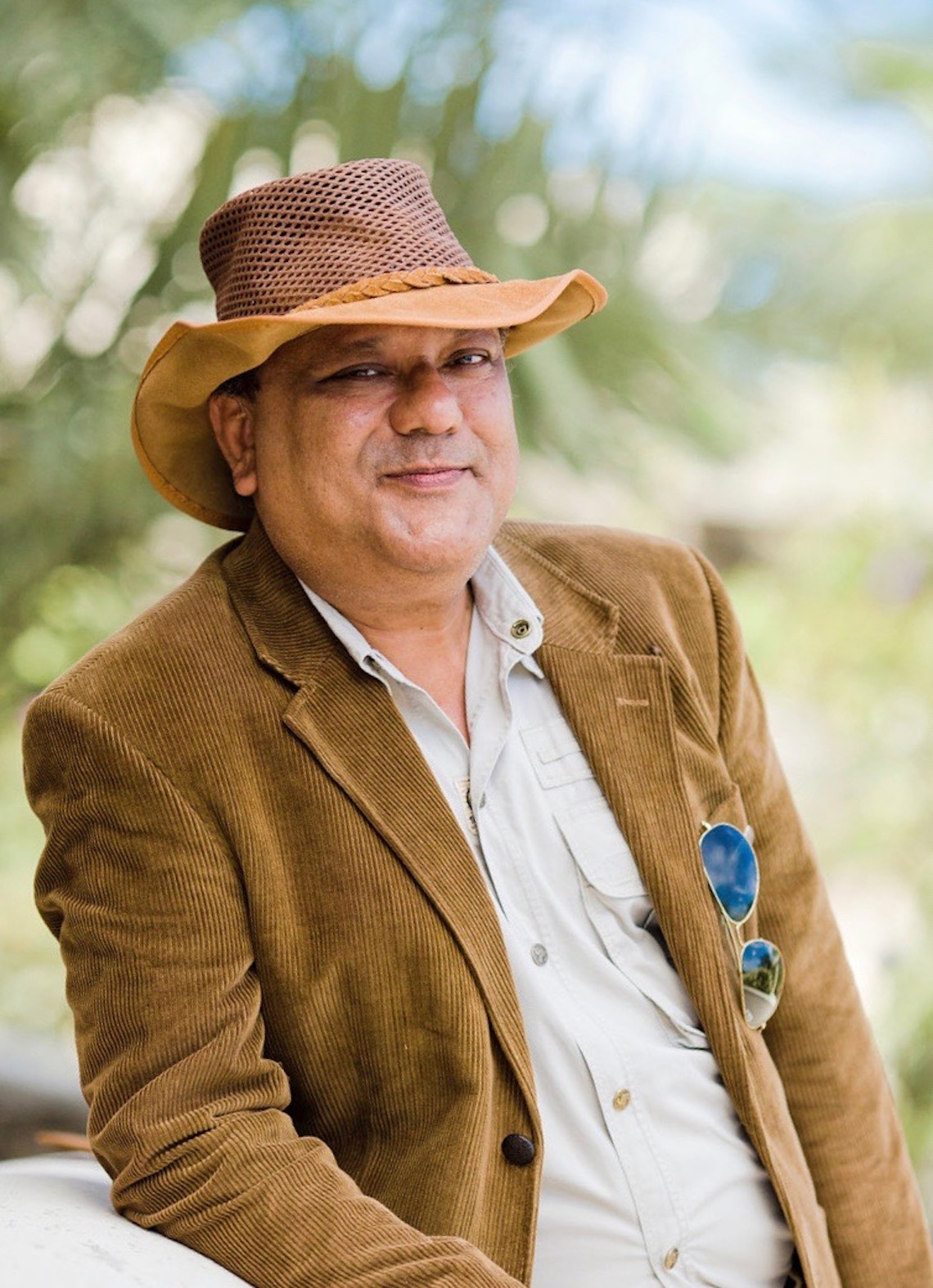
Shouquot Hussain was born and raised in India and has been the Vice Principal of the Diploma Programme (DP) at the Aga Khan Academy Mombasa for seven years.

During her time at AKA Mombasa, Samantha Caras has transformed the University Counselling department by providing numerous resources to students and helping them apply to different universities around the world.
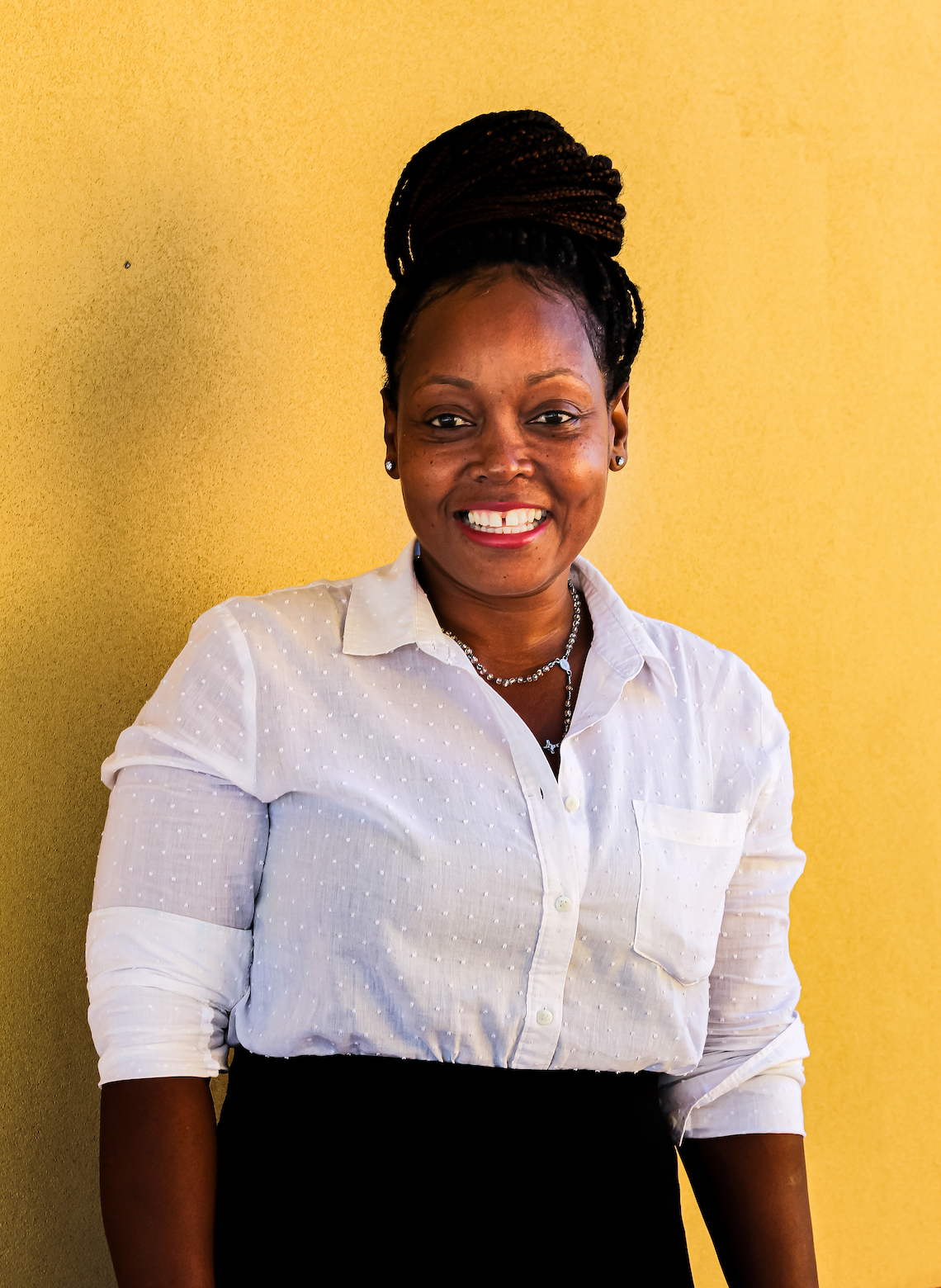
Participating in theatre and drama activities helped Rosa Jorge from a very young age. It gave her the courage to break out of her shell and now she wants to empower her students at the Aga Khan Academy Maputo with the same tools to become well rounded individuals.
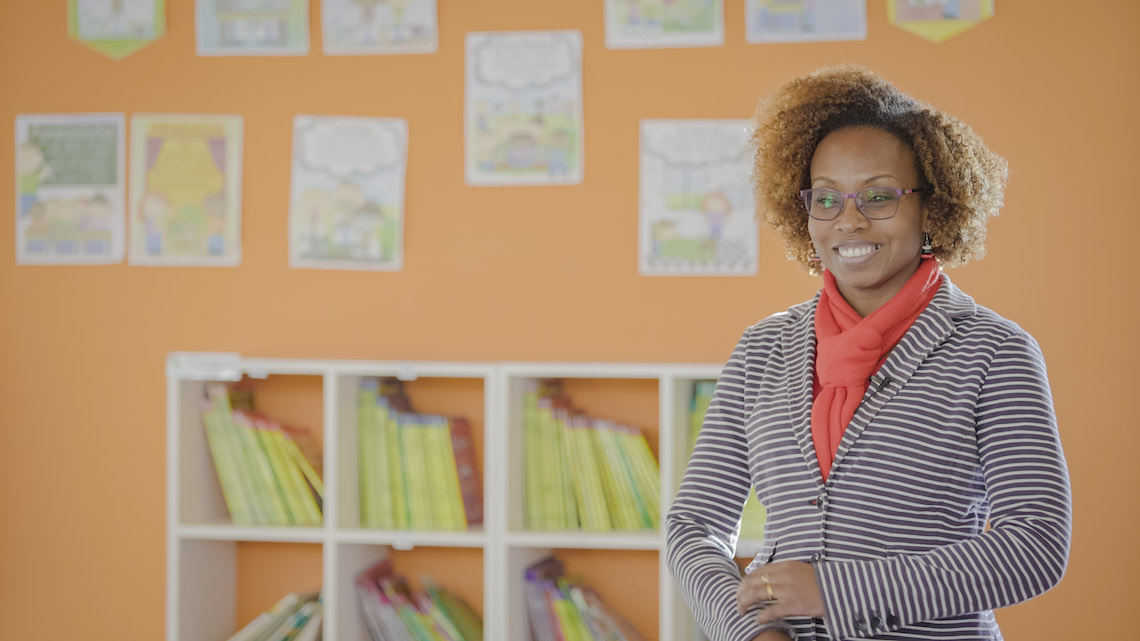
Throughout the course of her teaching journey, Adilia Cabral has valued the importance of inclusivity in creating an engaging and fruitful environment in the classroom. She shares details of her evolution during her time at Aga Khan Academy Maputo.
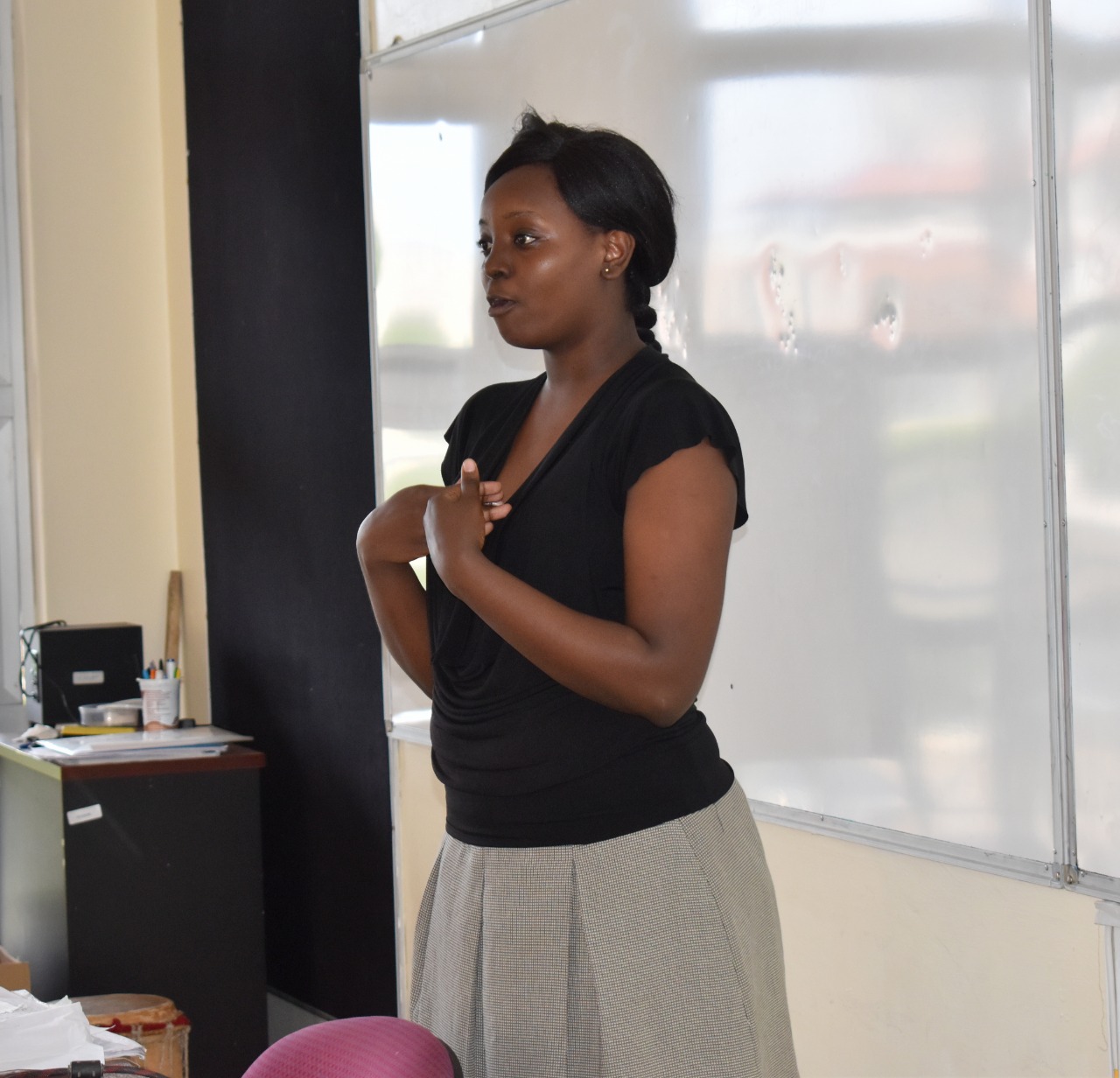
Fiona Makena Kinyua graduated from the Teacher Preparation Programme at the Aga Khan Academy Mombasa in June 2019 and is taking classrooms by storm, one student at a time.
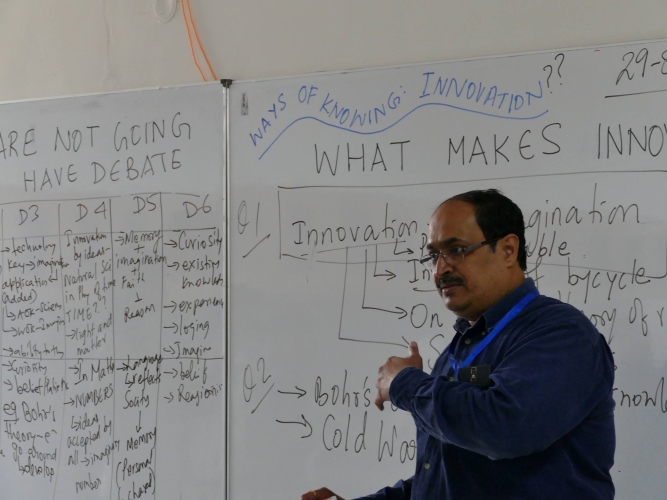
Sincere, kind and down-to-earth. These are some of the words many at the Academy have repeatedly used to describe the Diploma Coordinator of the Aga Khan Academy Hyderabad.
For the Middle Years Programme (MYP) Coordinator, Rebecca Nichols, the sky is the limit when envisaging the future of the Aga Khan Academy in Maputo, Mozambique. More importantly, in her eyes, how the Academy keeps growing, shaping and expanding its role in the country and beyond must lie in the hands of students.
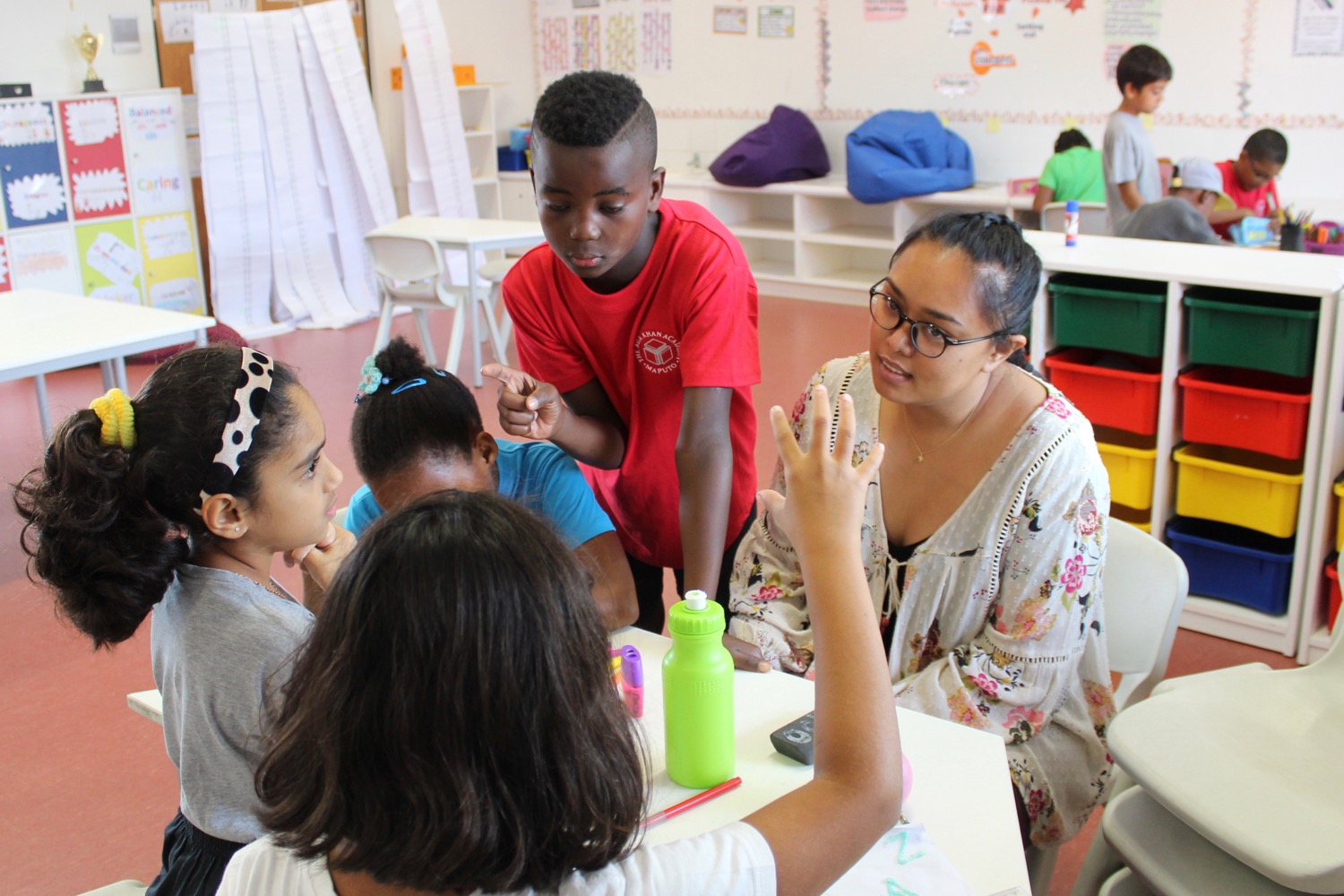
For Idah Khan O'Neill, PYP Teacher Coach at the Aga Khan Academy Maputo, having the opportunity to join the Academies network and help realise His Highness the Aga Khan's vision for education in Mozambique is a privilege, as she shares: “It is my mission, in my capacity as a Teacher Coach, to be able to help realise this goal through play and creativity with regards to the way we teach and learn.”

By using mentorship and seeing the potential in all of her students’, Harriet Chadwick, a Humanities teacher, helped her students understand and appreciate Humanities, while also encouraging them to become leaders.
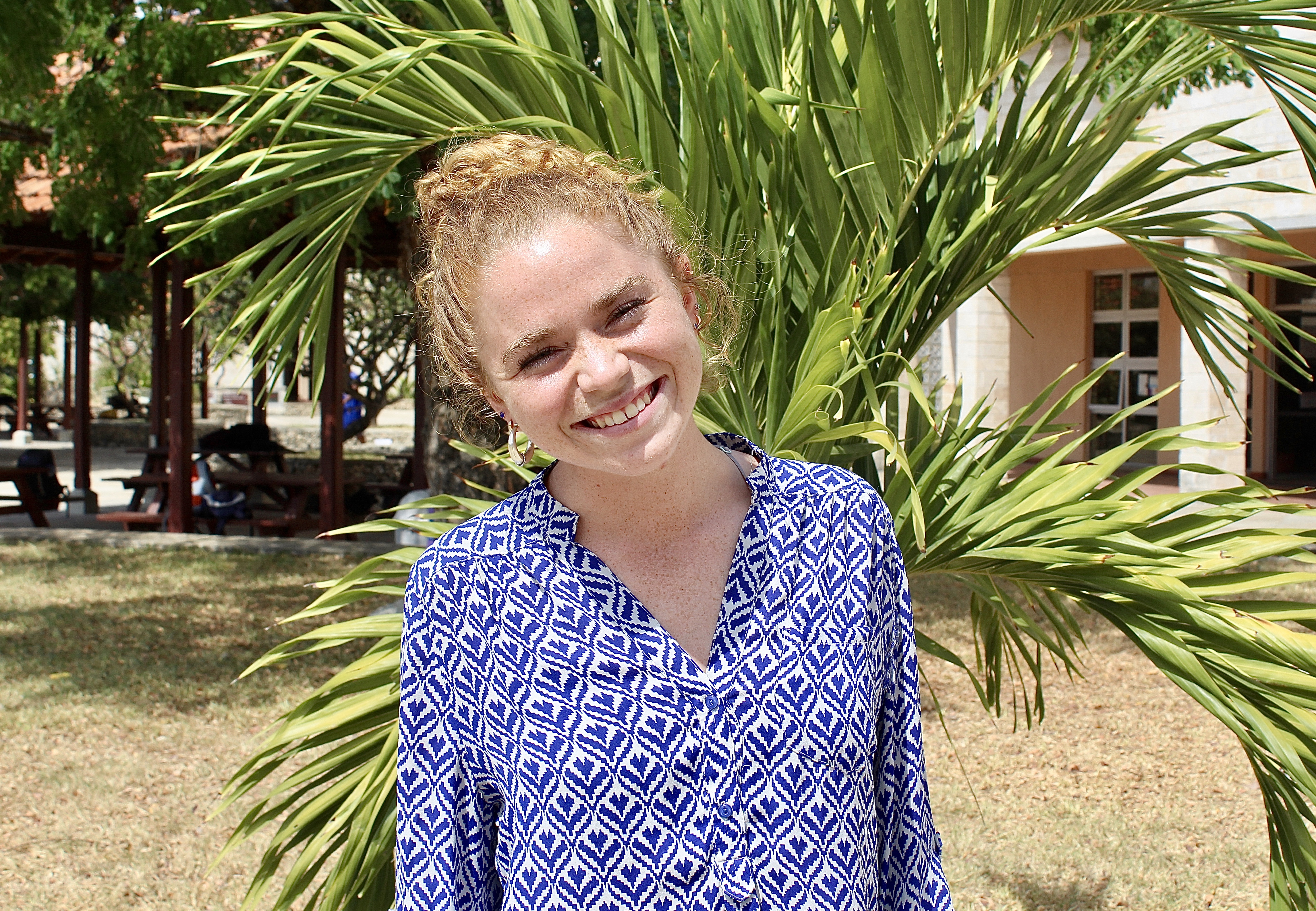
With a community-centered and open-minded mindset, Clare McLaughlin, an Academy fellow, promoted new ideas and programmes, which enabled the Academy to grow in many ways.

Ajey, who holds several specialist degrees, ultimately found his calling teaching French at the Aga Khan Academy Hyderabad. “The unconditional love and acceptance I receive from my students is the best testimony to my professional accomplishments,” he says.
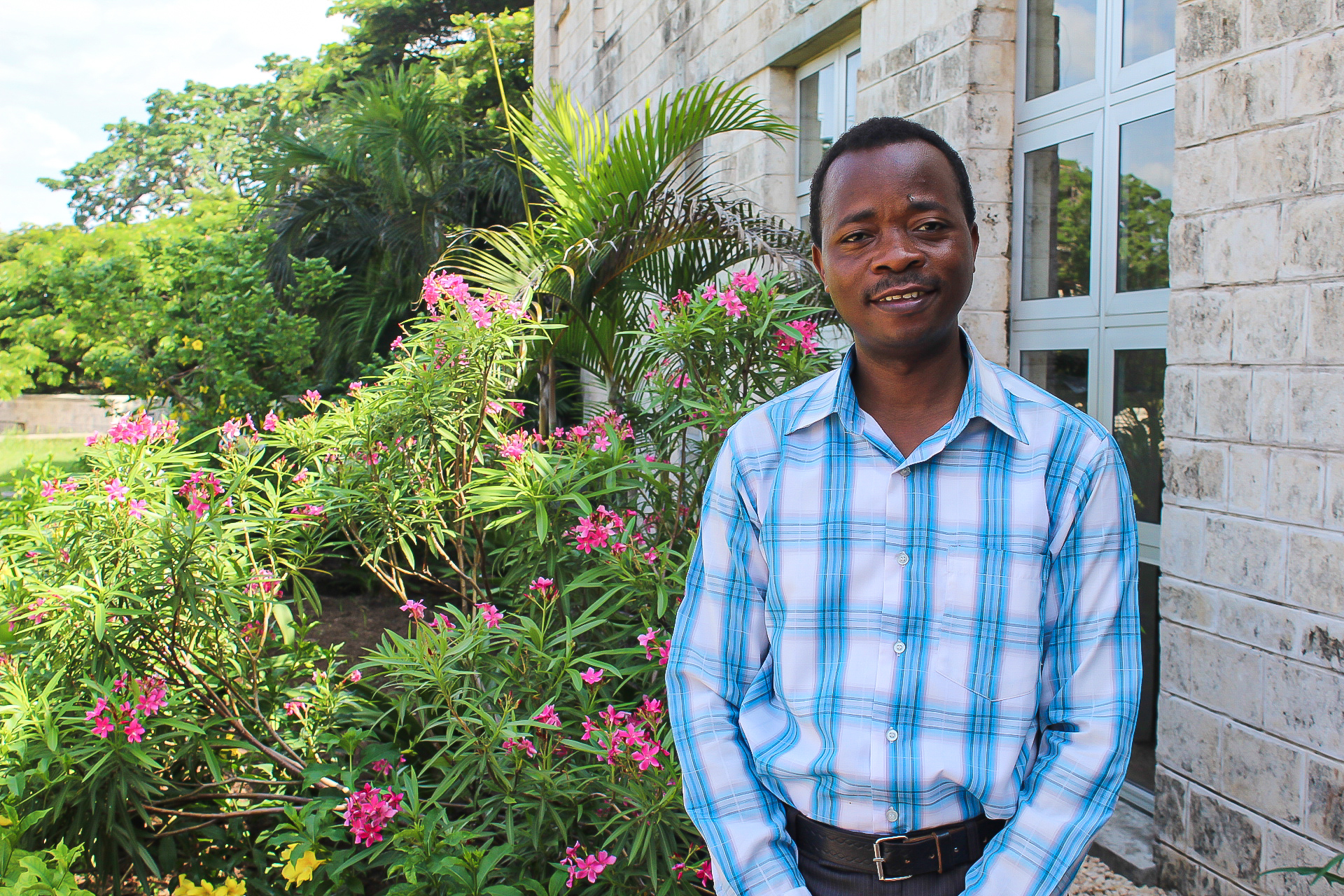
With the support of his colleagues, Stephen Nyundo, a Mathematics teacher and head of the department, has helped students implement strategies to help themselves and others in Mathematics.
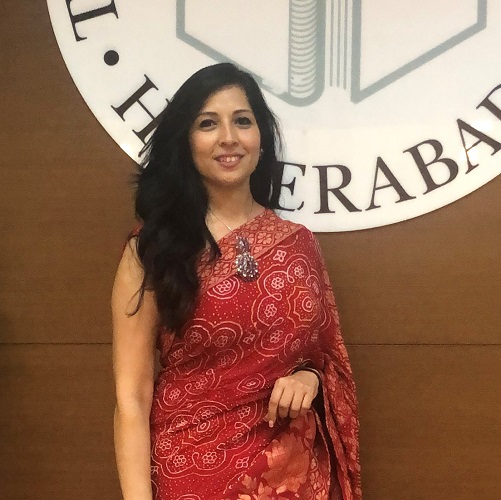
“When we started out, we knew we had to set the standard for what the future would hold. The vision and the philosophy of His Highness the Aga Khan has been taught to us since when we were children; to see a culmination of this in the form of a school that aspires to raise leaders of tomorrow was immensely gratifying."
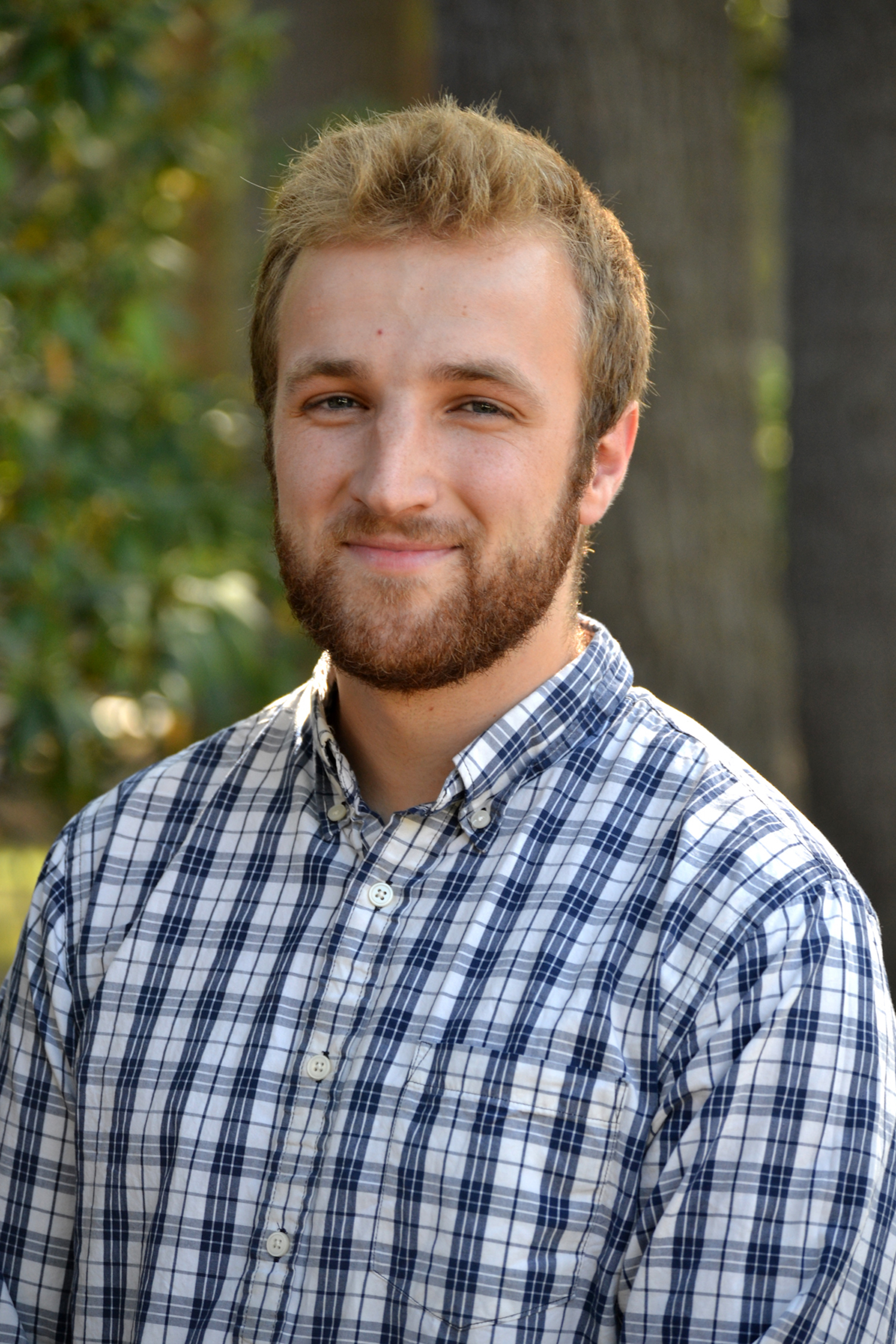
Throughout his time at AKA Mombasa, Ryan Herman, an Academy fellow, has worked on various projects and programmes at the Academy, all aimed at helping students realise their academic potential and more.
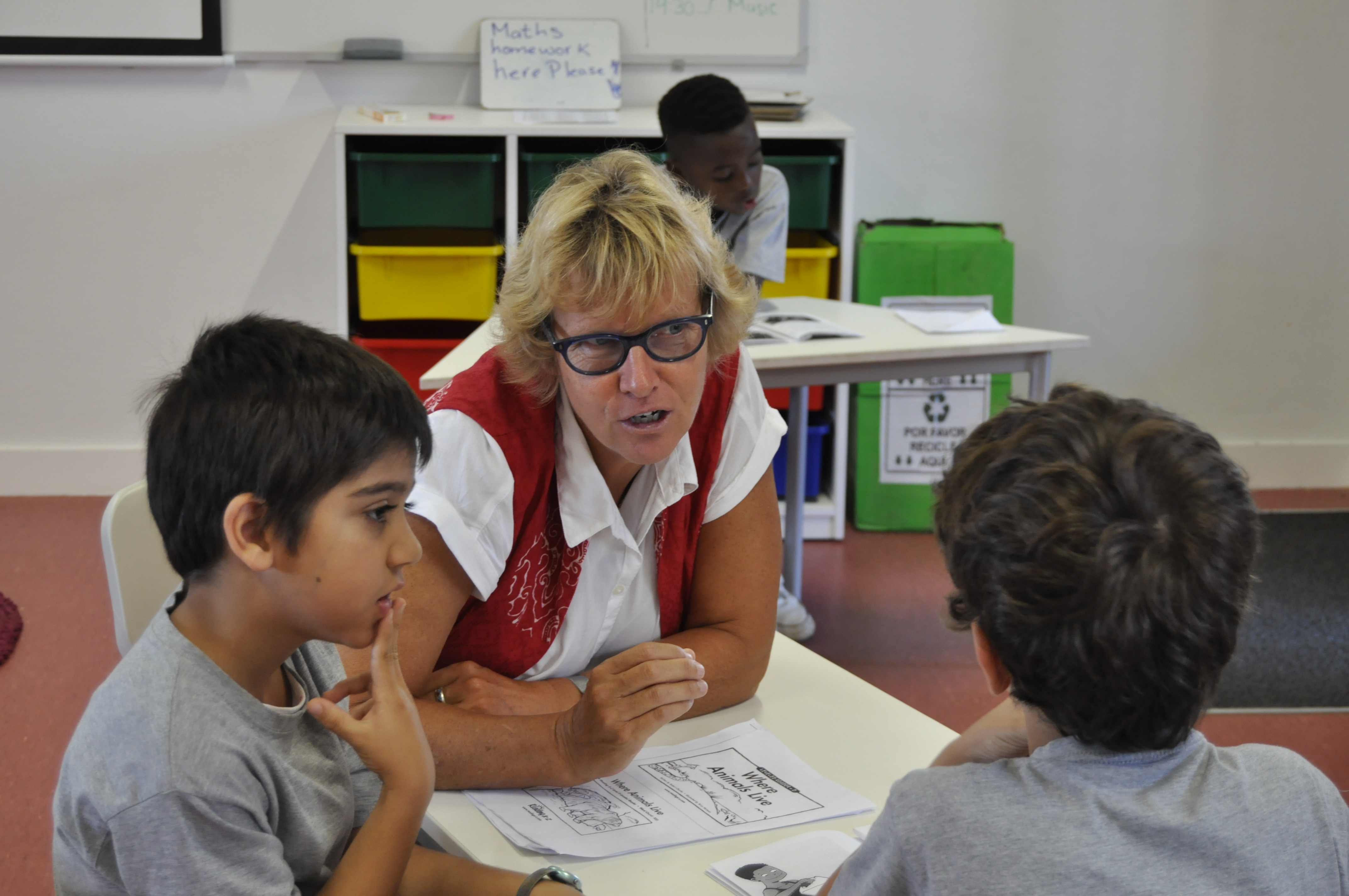
Ask Maike Silver, Junior School Principal at the Aga Khan Academy in Maputo, Mozambique, what attracted her to teach at the Academy. “The vision and mission of the Academy,” she states simply. “The vision to inspire young people into becoming future leaders of their countries. To actually have the ethical persuasion to make a difference in the lives of their countrymen.”
Anjum Budhwani always wanted to teach at the Aga Khan Academy Hyderabad, and since she got the job seven years ago, every day of work has been special. “Compassion builds a strong relationship between teacher and student,” she says.
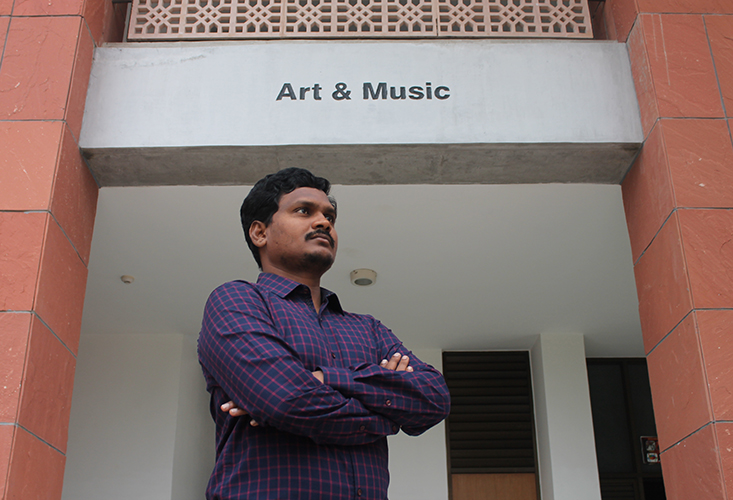
“I had the freedom to run and develop the department,” Chandra says, of being the first drama teacher at the school. “I have used this freedom to develop the students’ abilities in acting, communication, confidence, creativity and thinking skills.”

AKA Hyderabad catering manager talks about his experiences as an artist, an army man, and a chef. “A person can be responsible and efficient towards his job only when has known himself,” he says.
Students Cinzia Torriani (year 10) and Alisha Doshi (DP1) interviewed Alison Hampshire, the new Head of Academy at the Aga Khan Academy Mombasa. They discussed important themes in education, passions, dreams and life lessons.
They should always feel that I’m there for them, no matter the situation, or condition or time of day. You have to tailor yourself to the needs of the students... I change myself, as per their needs.

Jonathon Marsh has system-wide responsibility for teacher development at the Aga Khan Academies network and has worked for the Academies for the past 10 years. In this interview, he shares the highlights of his position at the Academies, and reflects on how the Academies are unique from other educational institutions: "I see the profession of teaching as critically important to the health and ongoing development of any society. As such, I can think of no better way to contribute to the betterment of humanity."
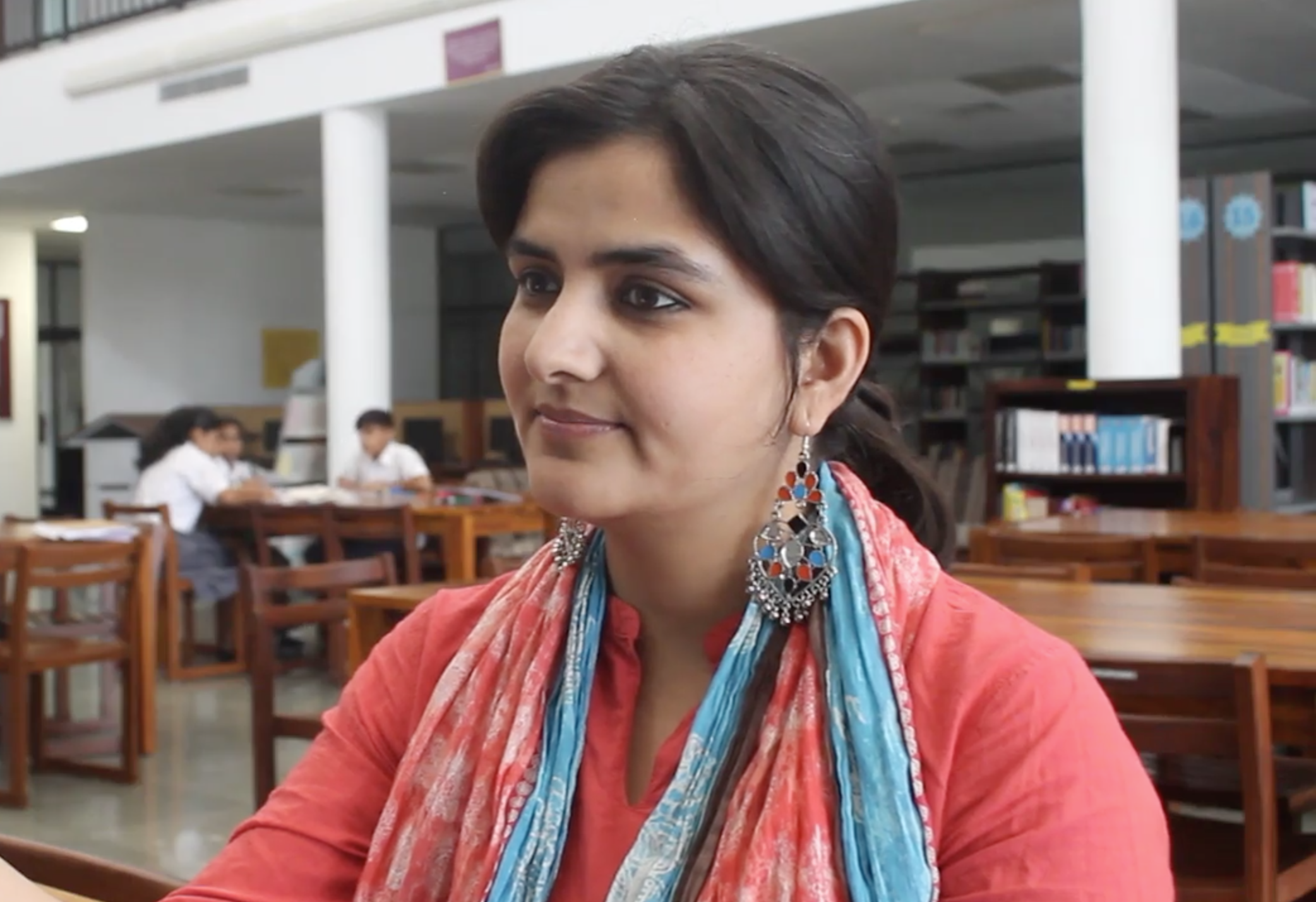
The Teacher Preparation Programme (TPP) is one of the Aga Khan Academies’ landmark teacher development initiatives. In this interview with Kamini Menon at the Aga Khan Academy Hyderabad, TPP participant Maryam talks about the TPP’s unique aspects and her experience with the programme.
Pinto, a teacher at AKA Maputo, shares: “I chose a career in teaching because I like to share what I know with others, especially young people, to help them to overcome the challenges in life. Being a teacher is like taking care of something special, so I decided to take care of that special thing, walking together in order to discover the world around us.”
Inner delight and the satisfaction obtained from working for a cause are the rewards I seek from my work.
Sumeya Taquidir shares, “I am conscious that learning is a continuous process; every day we learn something new [which] makes me more curious to learn new things. That is why we have to be creative and dynamic teachers.”
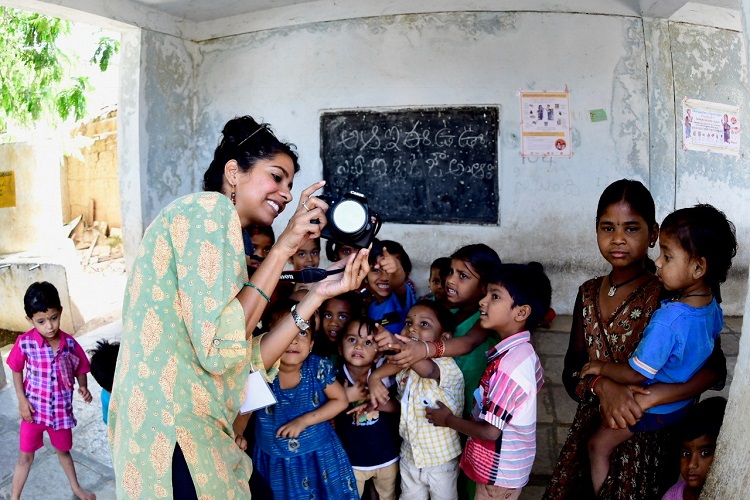
“I have always been inspired by the philosophy and implementing agencies of the Aga Khan Development Network, and it brings me great joy to have found a way to realise that career aspiration."
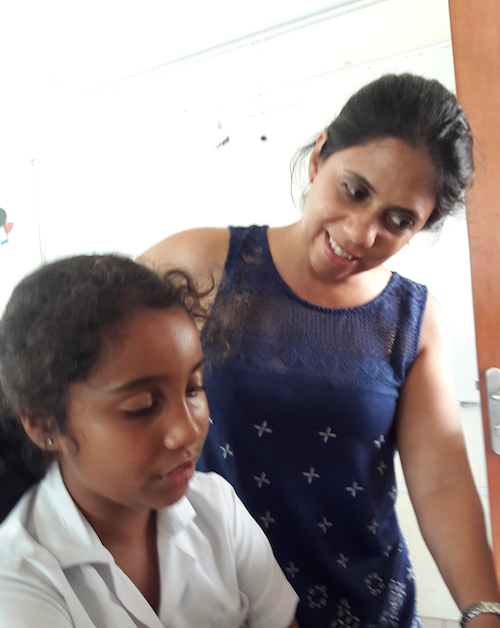
Nuala, the Learning Student Support Coordinator in Mombasa, endeavours to improve social outcomes through strategic planning and capacity building at the local government and community level. She explains her role, her journey and the culture of pluralism at the Academies.
Bernardo learned from the Aga Khan Academies that knowledge cannot just be seen as something that starts and ends in a classroom, but that knowledge should also be applicable outside the classroom to solve real problems in real life.
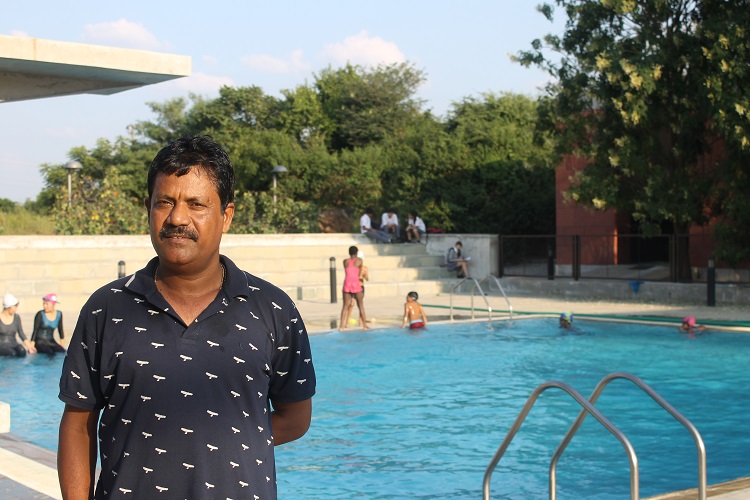
“It’s been a great pleasure to share my previous teaching experience here at the Academy,” commented Surendra. “The Academy is filled with enthusiasm when it comes to sports, particularly swimming.”
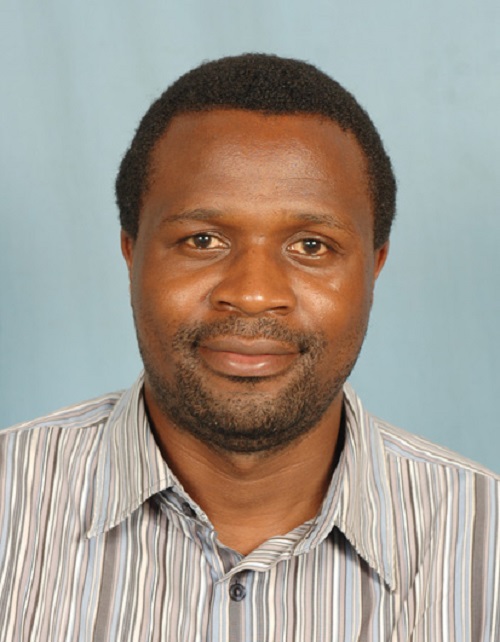
“I wake up every morning and look forward to seeing my students in class.”
Courageous and confident, Maria Atalia Matola travelled out of Maputo, Mozambique for the first time in her life to teach at the Aga Khan Academy in Mombasa, Kenya as part of the Aga Khan Academies’ Teacher Preparation Programme (TPP).
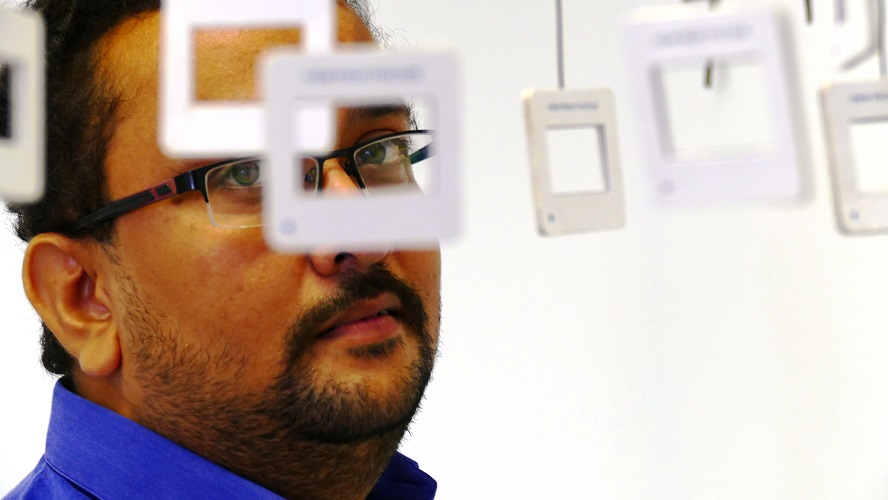
"What one must paint is the image of resemblance—if thought is to become visible in the world" - Rene Magritte.
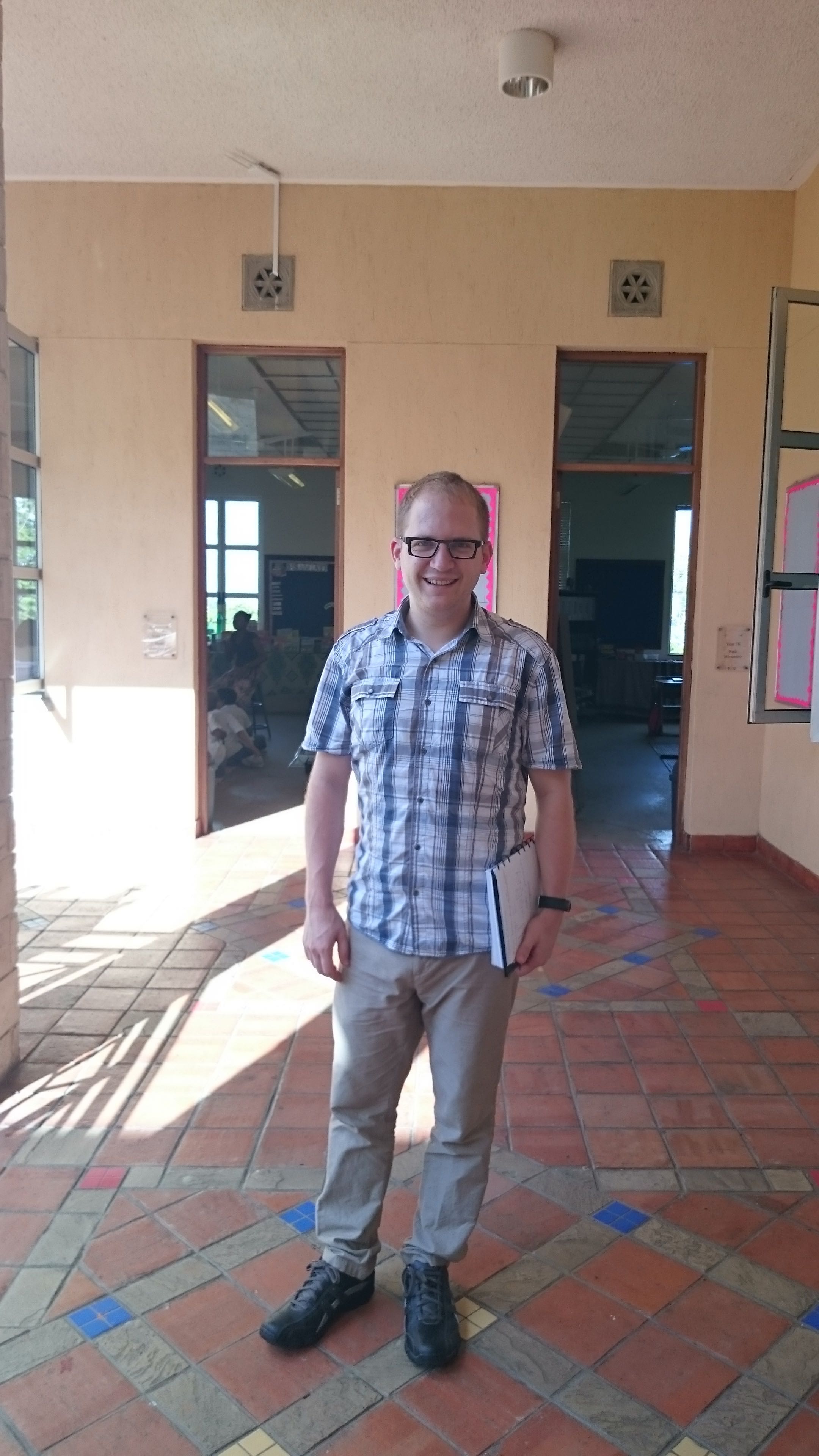
“I have had the opportunity to grow and learn as both an educator and an individual through my interactions at the Academy and through daily life in Mombasa," reflects Andrew Jones, a teacher seconded to the Aga Khan Academy Mombasa from Ontario. After his time at the Academy in Mombasa, Andrew has gained insight into three best teaching practices that he will share in Ontario.
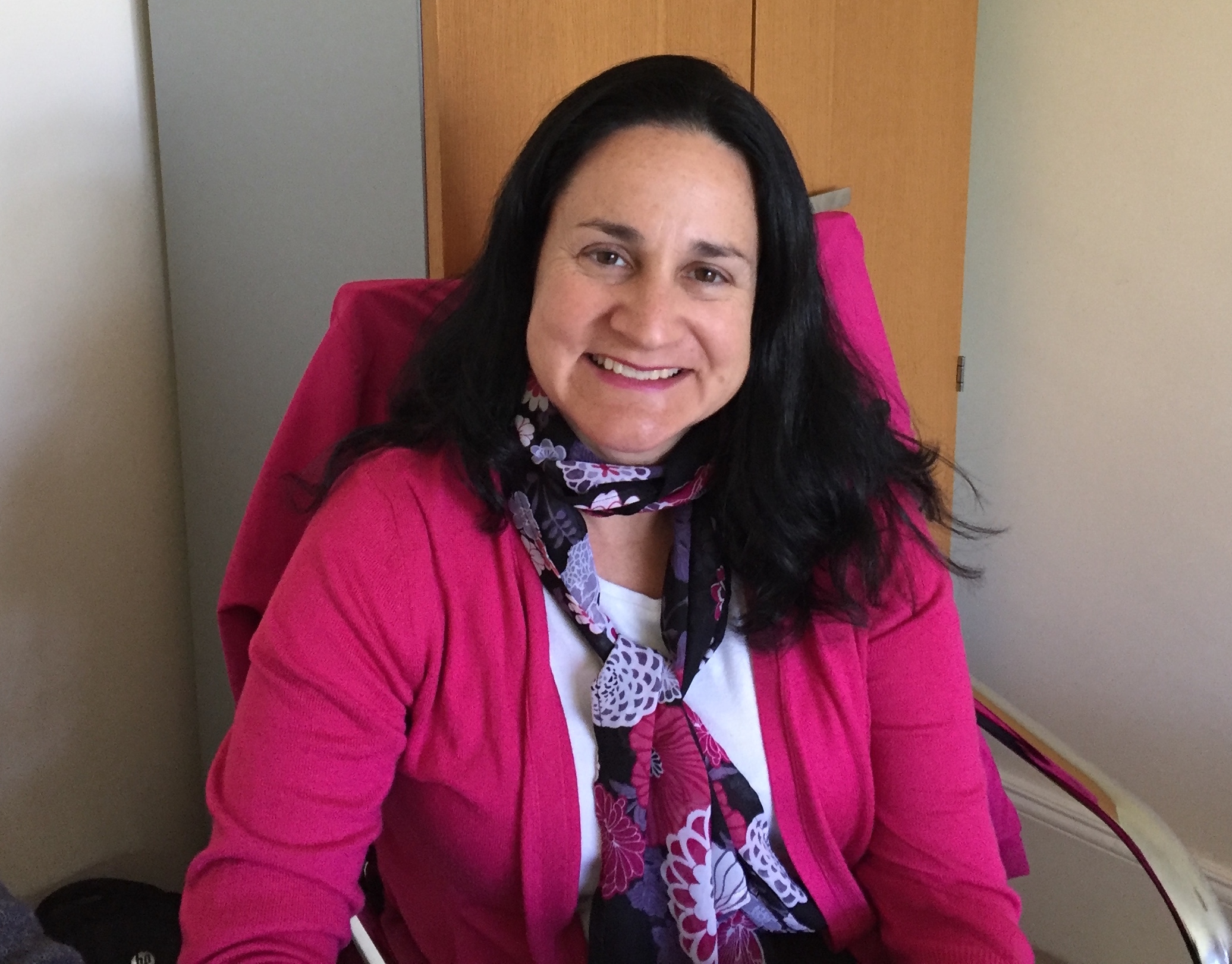
Theresa Urist has always had a strong desire to support students in their academic careers, which led her to the position of Global Director of University Counselling in 2015 at the Aga Khan Academies.
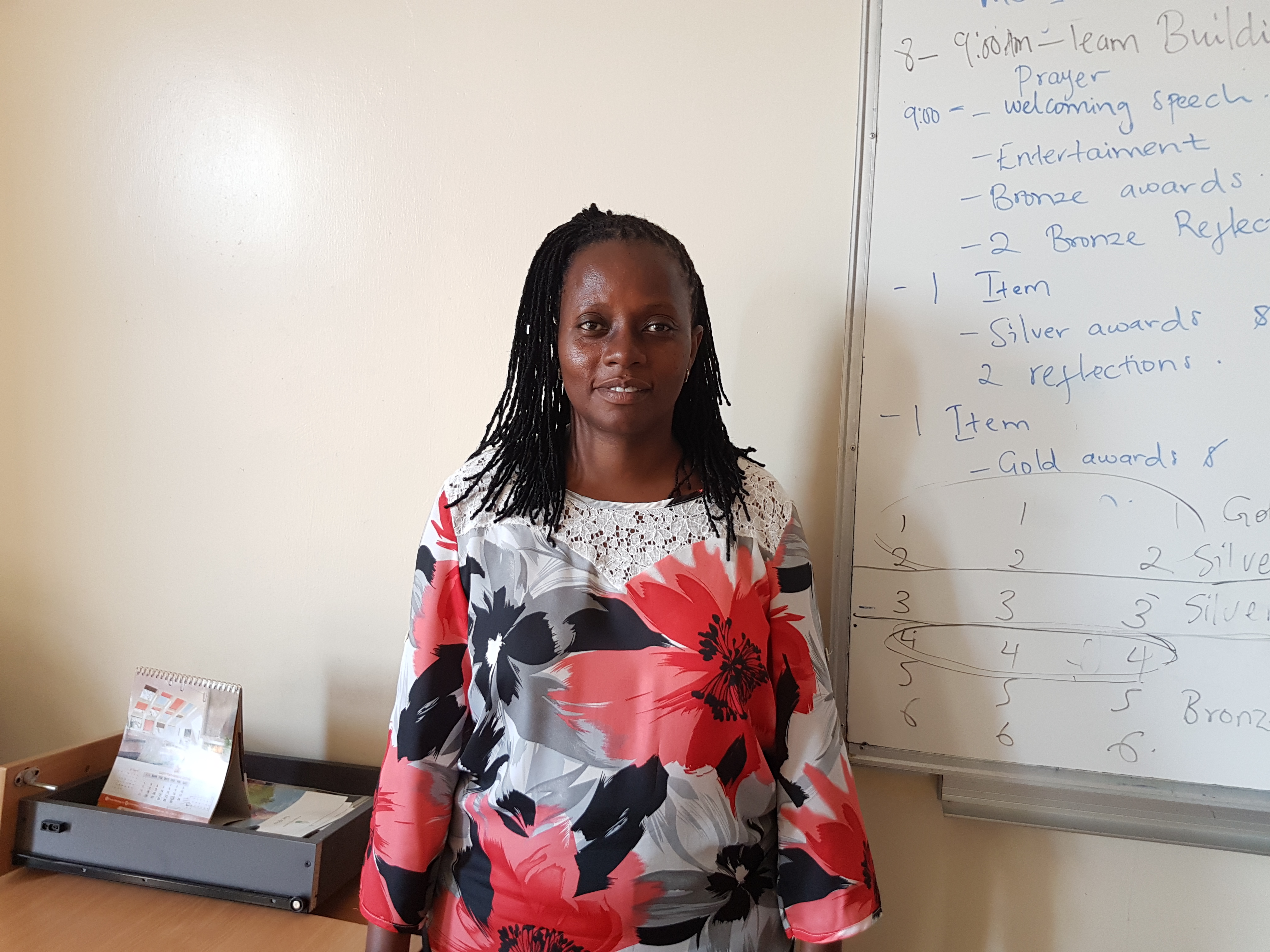
Lucy Mwandawiro has been a chemistry teacher at the Aga Khan Academy Mombasa for 11 years. However, she has grown and developed in many more areas, such as her involvement with the Educating Girls in Science project and her role as a dorm parent in the residences. Here, she shares some insights about her journey at the Academy.
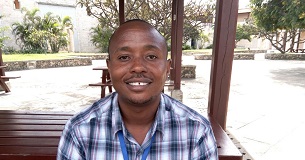
“I think one of the biggest assets the Academy has is the diverse cultural background in the student body. Having players coming from all over the world from so many walks of life adds a unique element to playing as a team.”
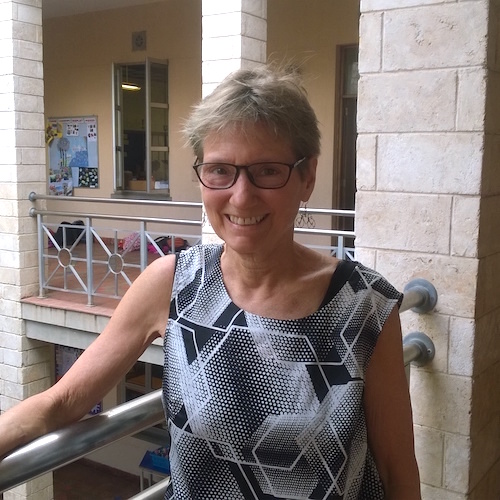
Christine Robertson is a veteran Ontario teacher who began a secondment to the Aga Khan Academy Mombasa in April 2016. She talks about her experience of coming to Kenya and her first days of getting to know the Academy.
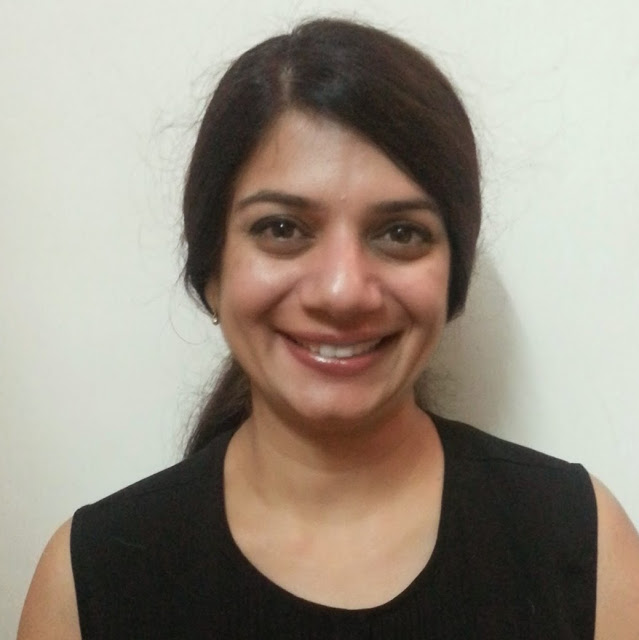
Vasanthi Thandlam, the Academy's Senior School English as an additional language specialist, has been selected as an Operation Smile sponsor for the Vietnam Medical Mission.
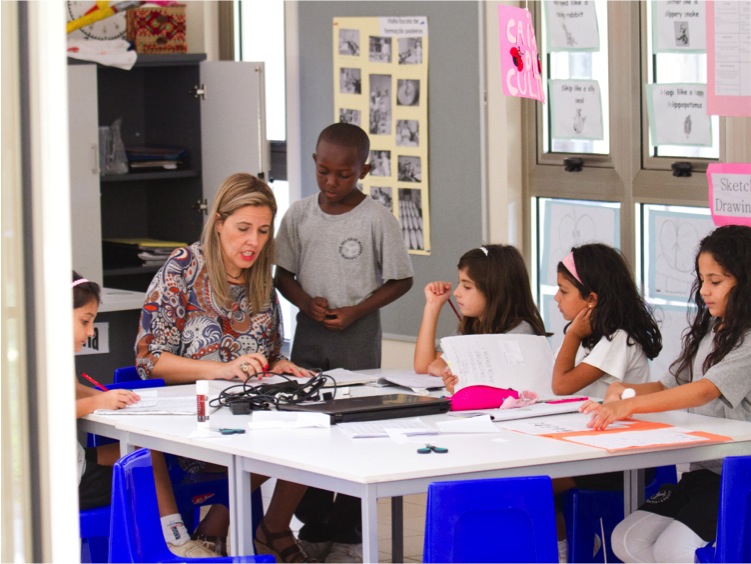
“For me, being a teacher is not a simple task – rather, it requires love and skill,” says AKA, Maputo teacher Sandra Marise de Abreu Antunes. Sandra’s classroom is an inspiring place where students not only expand their knowledge but also learn to respect each other, express their ideas freely and dream big.

Naini Singh is in the unique position of having been a teacher at both of the current Aga Khan Academies. Her journey has given her a rare insight into the Academies experience.
Spotlights on Students
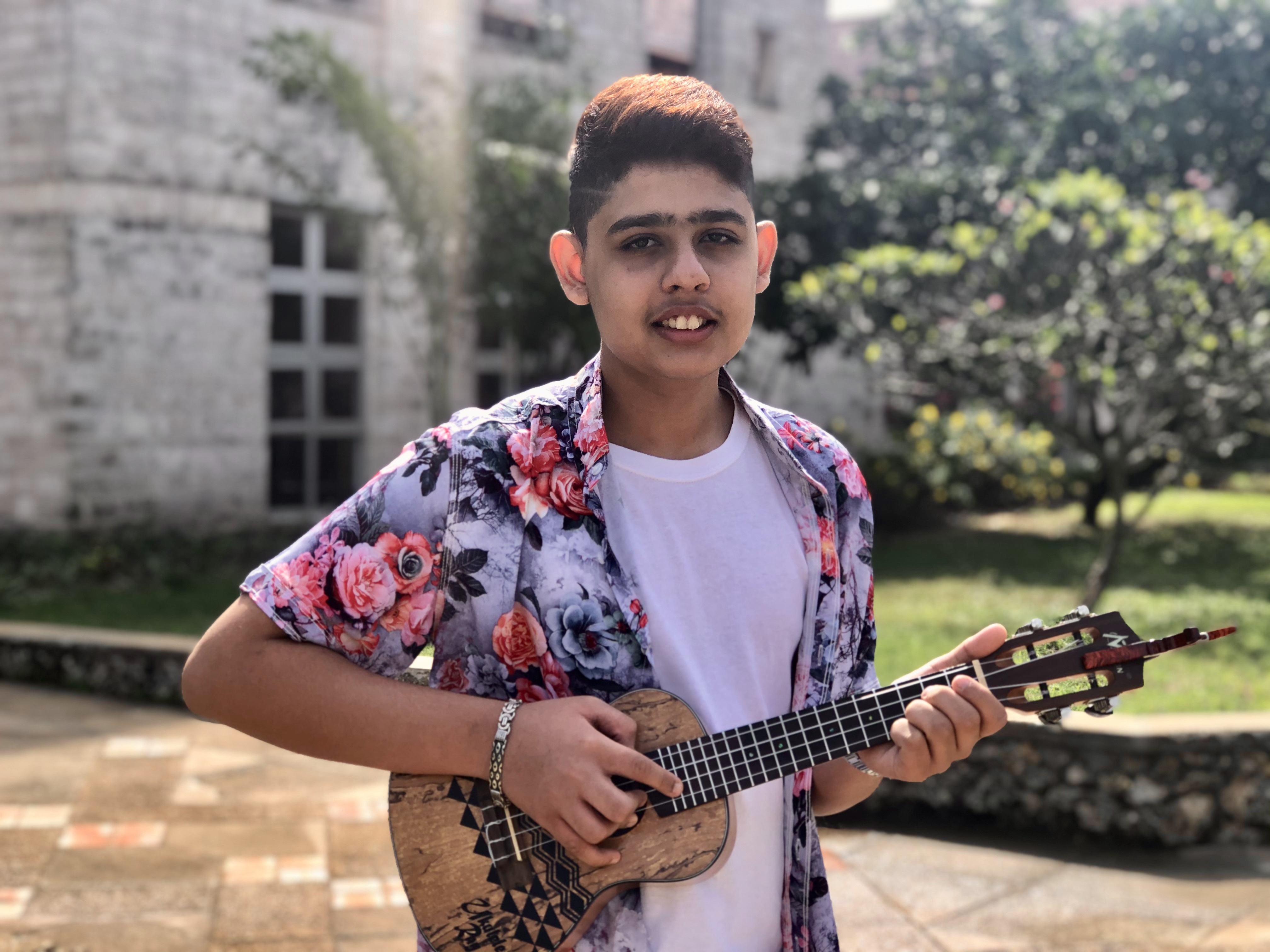
Since he was 4-years-old, Ayaan Allarakhia has had a passion for music that has shaped his whole life. Over the years, the Grade 9 student at the Aga Khan Academy Mombasa has developed and strengthened his musical and performance skills. Now, after writing and releasing his own song and music video, Ayaan is on a mission to spread his love for music to all.

Naail Lakhani, a Year 5 student in Junior School, has demonstrated incredible maturity, leadership, and initiative since joining the Aga Khan Academy Mombasa in 2018. His proudest achievement is founding the Junior School Coding Club, an after-school extracurricular activity to teach coding to young minds.
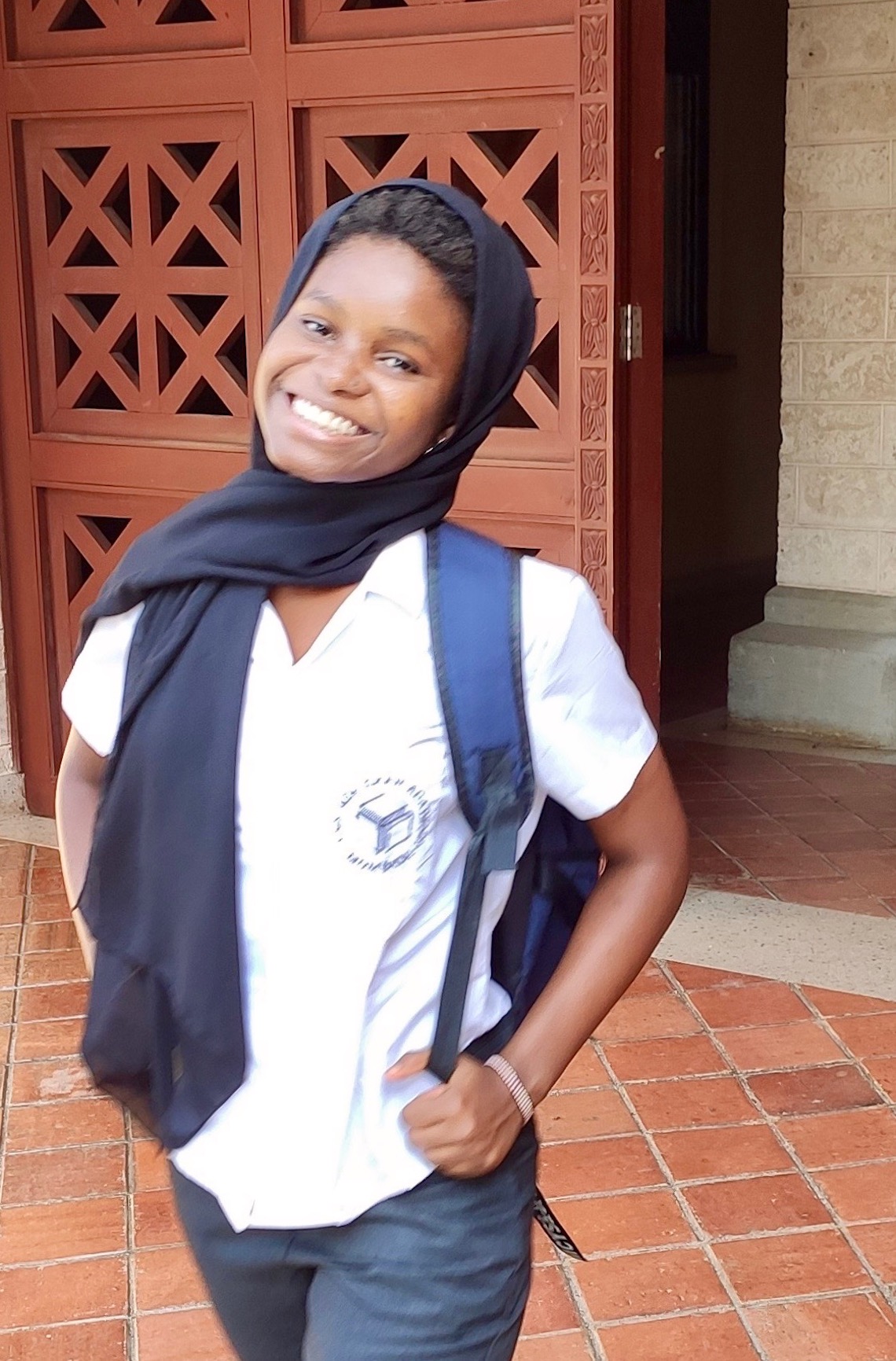
Mwanapwani Said joined the Academy through the Talent Identification Programme in 2017. Since then, she has availed herself of every opportunity to thrive. Her experience at the Academy has shaped her outlook on life and she has been inspired to make a difference in society.
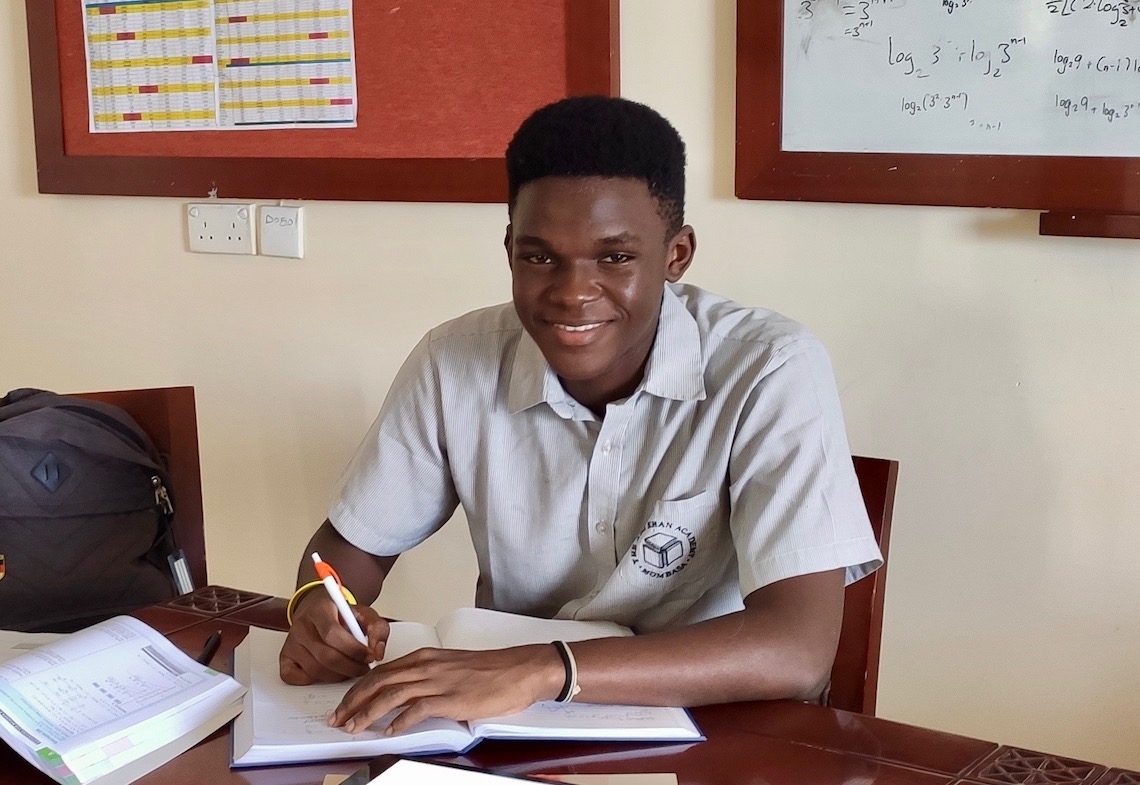
When Raphael Mwachiti, a Diploma Programme (DP) student, got admitted to the Aga Khan Academy Mombasa on a fully funded scholarship through the Talent Identification Programme (TID) in 2015, he knew it was a life-changing opportunity.
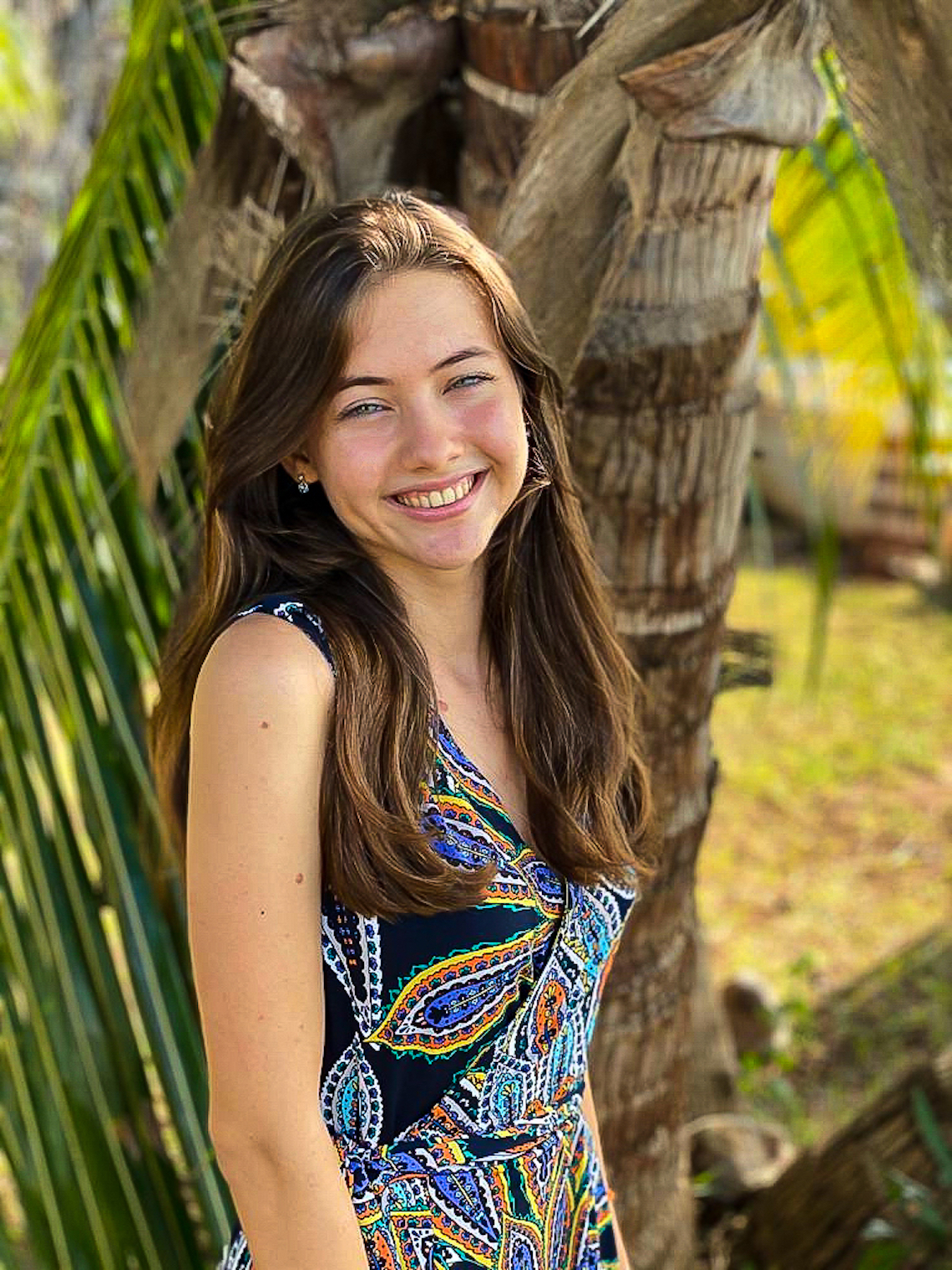
Since a young age, Diploma Programme 1 student Cinzia Torriani has seen the environment around her deteriorate. Through the Academy's and her own personal initiatives, Cinzia is hoping for a greener tomorrow.
Year 9 student at AKA Mombasa Alyssa Jamal has played golf for almost her whole life – a sport that has taught her the importance of determination and focus.
Mahek Shah, a Diploma Programme student at the Aga Khan Academy Mombasa, is driven to change the fact that the aviation industry is male dominated through her initiative called "Wings for Women." This young aviator chooses to be a pilot and not a passenger.
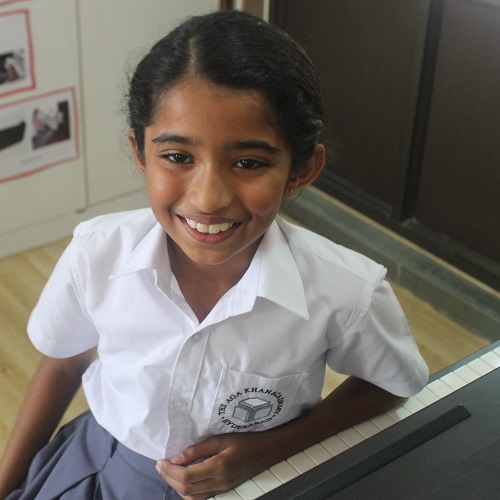
Aanya Athota, grade 4K, is currently the youngest student being accepted to appear for the highest graded music examination conducted by the prestigious Trinity College London. She dreams of becoming a global music icon and spreading peace through music to make our world a better place.
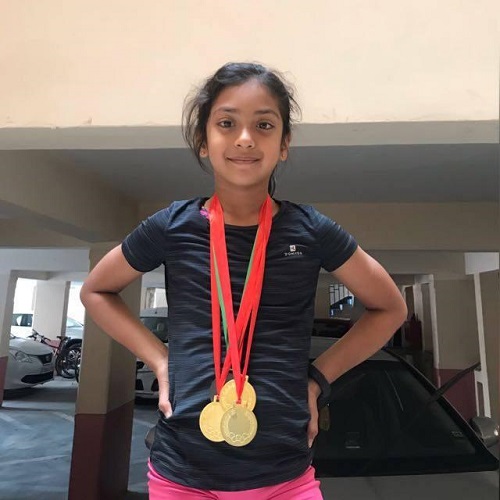
One day, a friend taught Ananya, grade 3, how to do a cartwheel. There was no turning back, and she recently won gold medals at two city competitions in 2018!
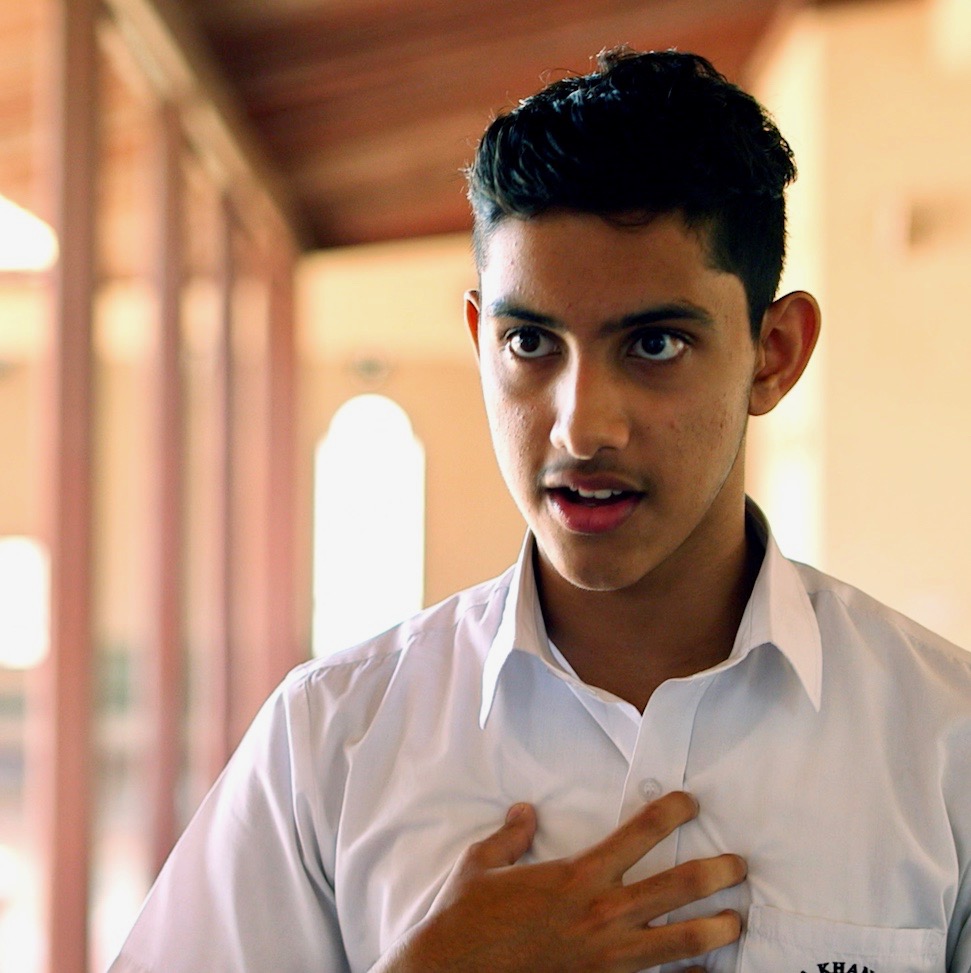
Meet Bilal, currently a student at the Aga Khan Academy Mombasa. For Bilal, studying at the Academy has instilled in him the value of learning whilst always thinking about the bigger picture: understanding how his studies today will impact the world tomorrow.

Paul Davis, the Dean of Admissions at the Aga Khan Academy Mombasa, has led the Talent Identification Programme for nearly ten years. The programme identifies students in Year 6 in Kenyan government schools, in deprived socio-economic and educational areas of Kenya, who are academically able and show leadership potential. This May, seven of these students graduated from the IB Diploma Programme. Paul shares their marvellous stories.
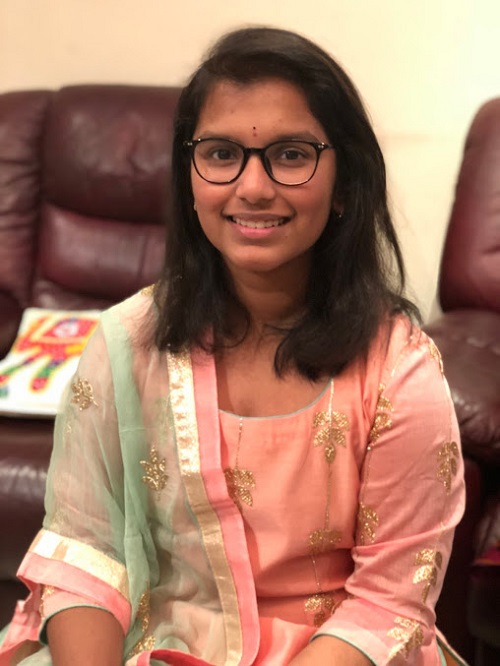
“The Academy has a very unique, highly diverse and multicultural environment,” says 2018 graduate,Tvisha Devavarapu. Set to pursue a career in biology and research, read about this house captain's experience studying and playing at the Academy.
“When I was learning robotics as part of the enrichment club I never imagined that I would become the captain for a robotics team,” says DP1 student, Rudra Potluri. Now approaching his 6th year at the Academy, Rudra reflects on the opportunities he’s had in his academic career so far and the ways in which he has grown.

Areesh Rehmani, a grade 6 student at the Aga Khan Academy Maputo, is a determined and dedicated learner. He has a passion for sports and a curiosity for scientific innovations and technological growth. Areesh shares how his learning is fuelled by the learner profile and by the values instilled in him at the Academy.
Passionate about animal rights, Shaivya Arya has used every opportunity possible to learn how to care for animals. “To save an innocent creature’s life, to help animals. It is time we make this a better world for us, for them, for all.”
Kelvin Bagthariya, a second-year Diploma student at Aga Khan Academy Hyderabad, believes the Academy has changed his mindset, teaching him to become independent, improving his self-esteem and allowing him to pursue his passion to make a change in his community.
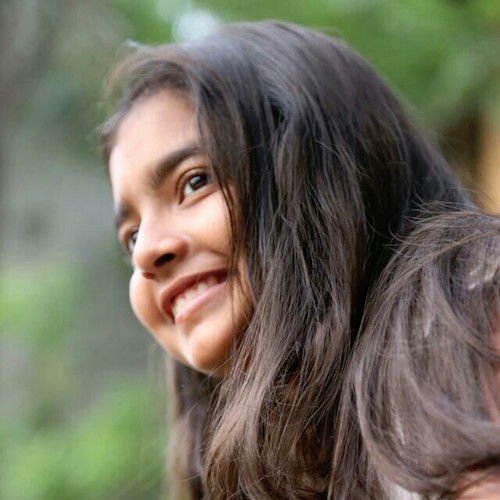
Anahita Aman is in her seventh year at the Aga Khan Academy in Hyderabad. She is full of hopes and dreams and strives to get the most out of her days at the Academy so that she can ultimately give back to the community and society at large.
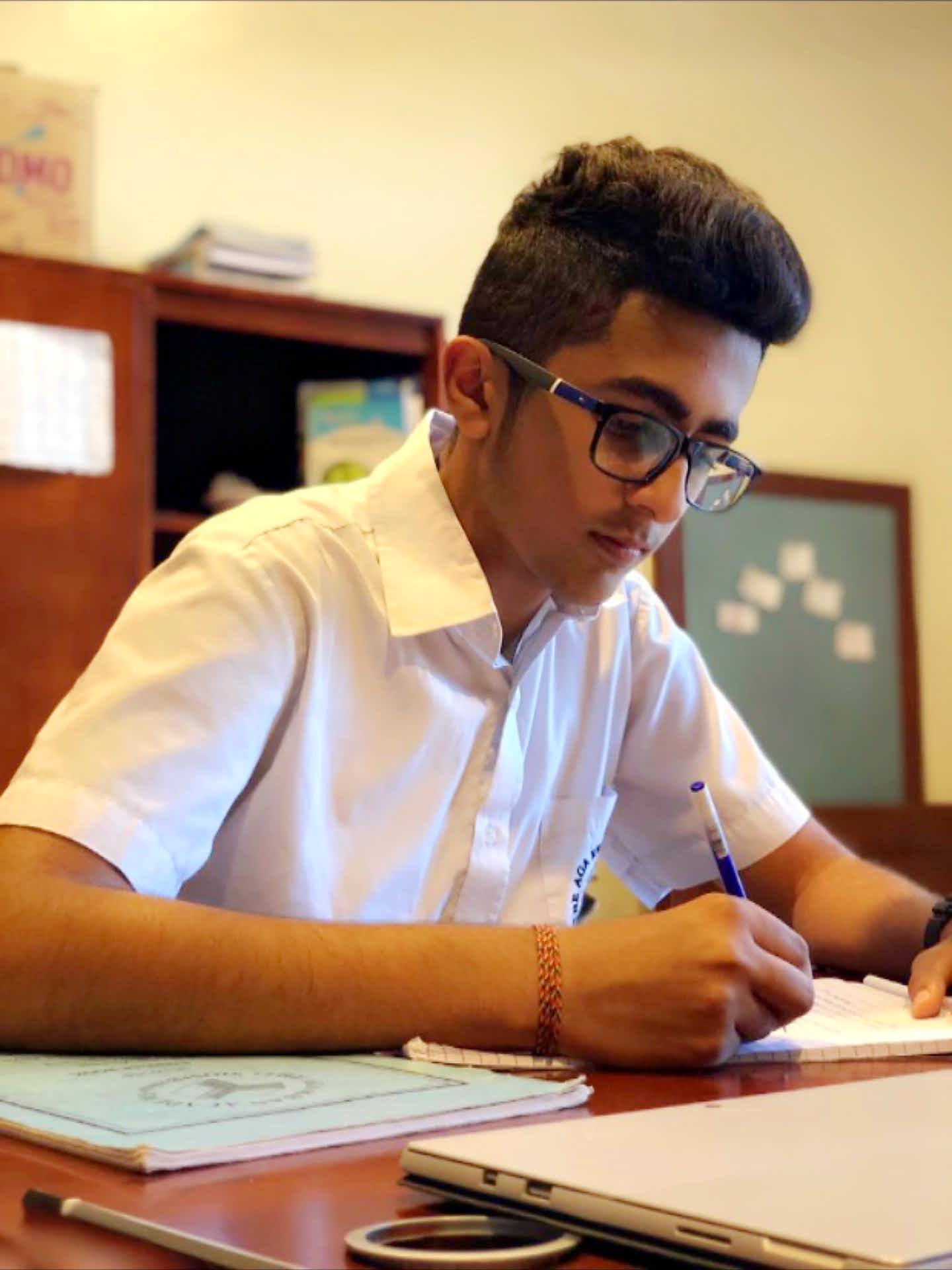
Saifan Aswani, a student at the Aga Khan Academy Mombasa, knows the value of taking the time to appreciate his surroundings. He credits his experience of the past three years at the Academy for instilling in him the discipline of hard work, an appreciation of diverse cultures and the motivation to pursue this responsibility.

In his final year of the Diploma Programme at the Aga Khan Academy Mombasa, Shad Bherani is ambitious, curious, and driven to become an engineer. Shad aspires to use his education and career as an engineer to give back and to serve his country and its people, by assisting in Pakistan’s development through technology.

Samy Natho Jina is not only a dedicated student at the Aga Khan Academy Mombasa - he is also a skilled and talented self-taught computer coder. Samy says, “For each and every project, I have spent countless nights out of my own free will fixing incorrect lines of code. It is my dream to make sure this talent and passion I have for software development and computers can be used to make this world a better place.”
"I can’t be racing while I’m on campus, so I decided to become an automotive journalist and am now the head author of an automotive blog, 'The Drive Hub.' "
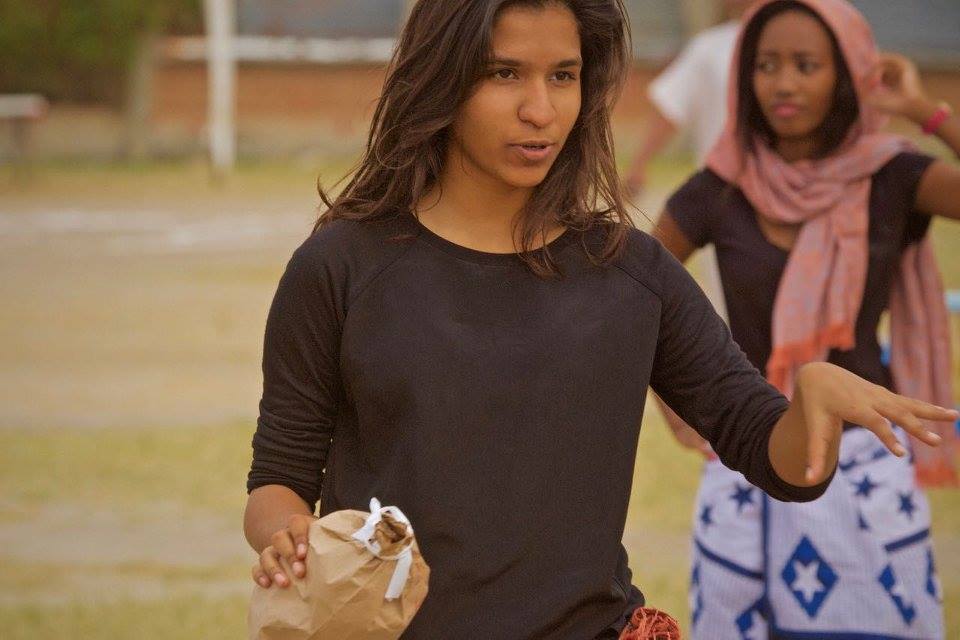
Through a personal reflection, Arzoo shares her experience at AKA Mombasa as she reflects on her journey in her final year: "Through the Academy I have made many of my dreams a reality."
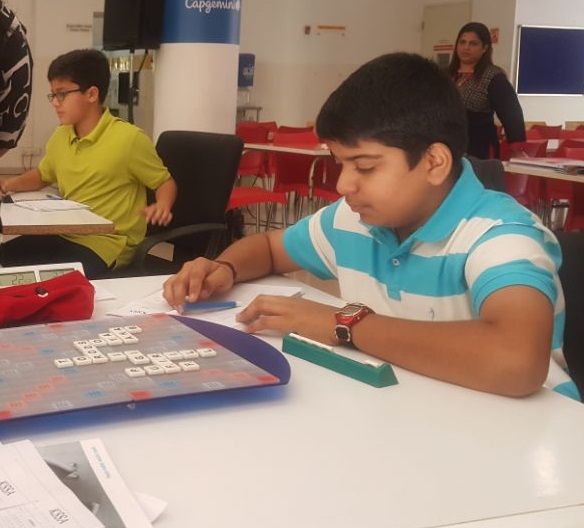
Attending school here has helped me recognise my potential, not just in studies but also in hobby sports! I love Scrabble and I want to become a professional player.

Being part of a team and also having been given positions of authority has taught me about leadership and the qualities one should inculcate to be an inspiring leader.
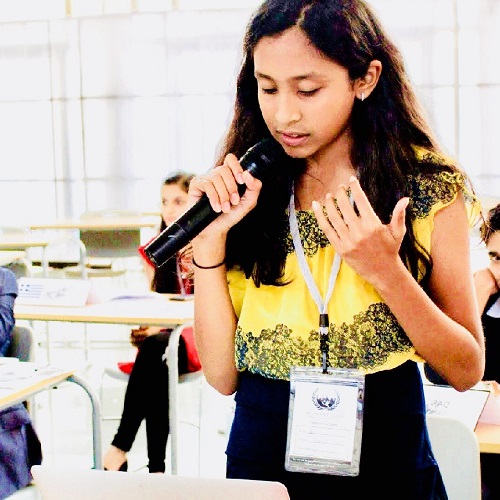
“To me, being ethical and humble are the most important things.”
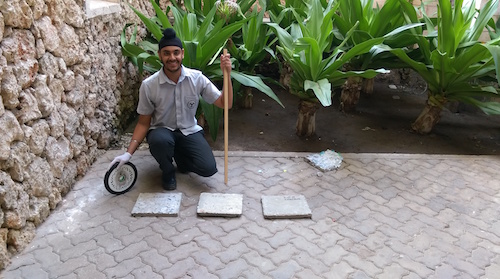
Being a global citizen, leader and environmental enthusiast is no easy task. Prabhdeep Lochab’s story is a testament to the hard work, dedication and commitment that goes into innovating “green” solutions for a sustainable future.

Meet Sadiq, a student at the Aga Khan Academy Mombasa. Open-mindedness, confidence and time management are some of the many characteristics he has developed at the Academy that will help him achieve his dream of becoming a journalist.

Meet Saumya, a student at the Aga Khan Academy Mombasa. A musician and a leader, she shares her wisdom on what it means to make a true positive impact.
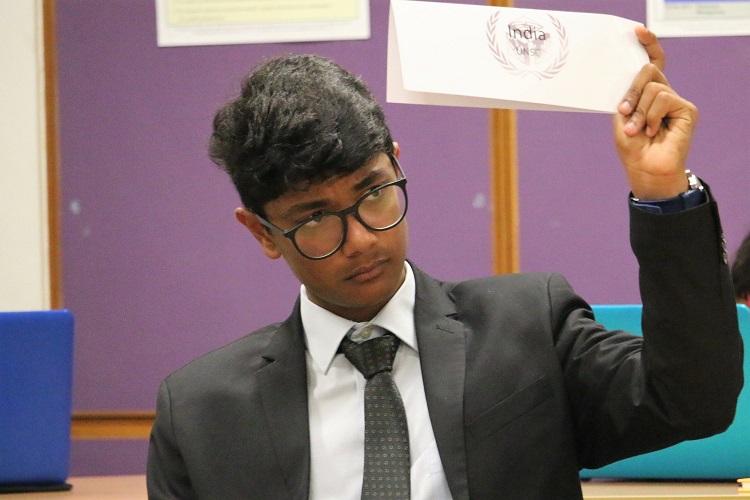
"Being able to stand in front of 250 students and fulfilling the opportunity to give them what I had been given, was one of the most rewarding experiences of my life."

Introducing Ivy, a student at the Aga Khan Academy Mombasa. Her innate drive for self-growth and desire to give back to the community makes her a true home-grown leader.


This is Stephen, a student at the Aga Khan Academy Mombasa. His passion for community service shines as he expresses the growth in perspective he experienced through his education at the Academy.
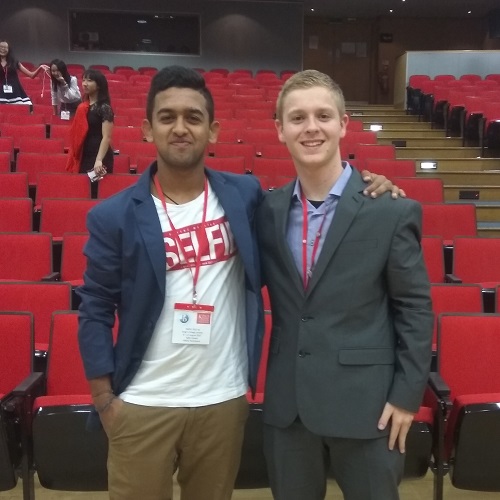
Sahir Devani, grade 11, shares his experience as an Academy representative at the IB World Student Conference held at King’s College London, from 6-12 August 2017.
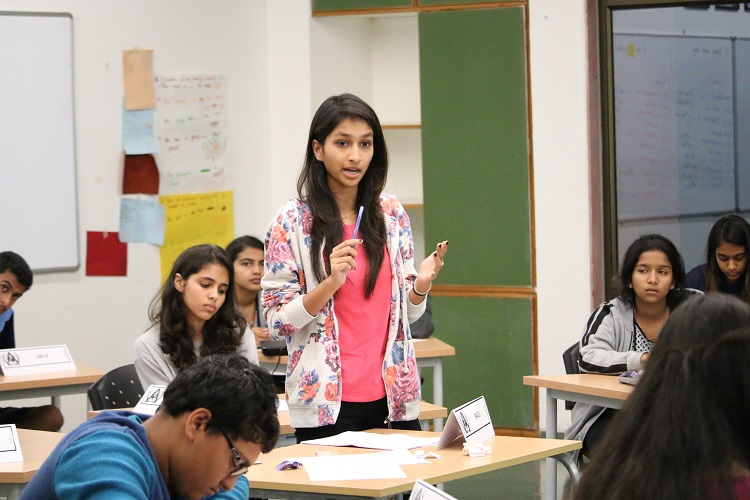
Sayema, currently in grade 11, directed and produced an impactful short film to create awareness on child rights for her IB MYP Personal Project.
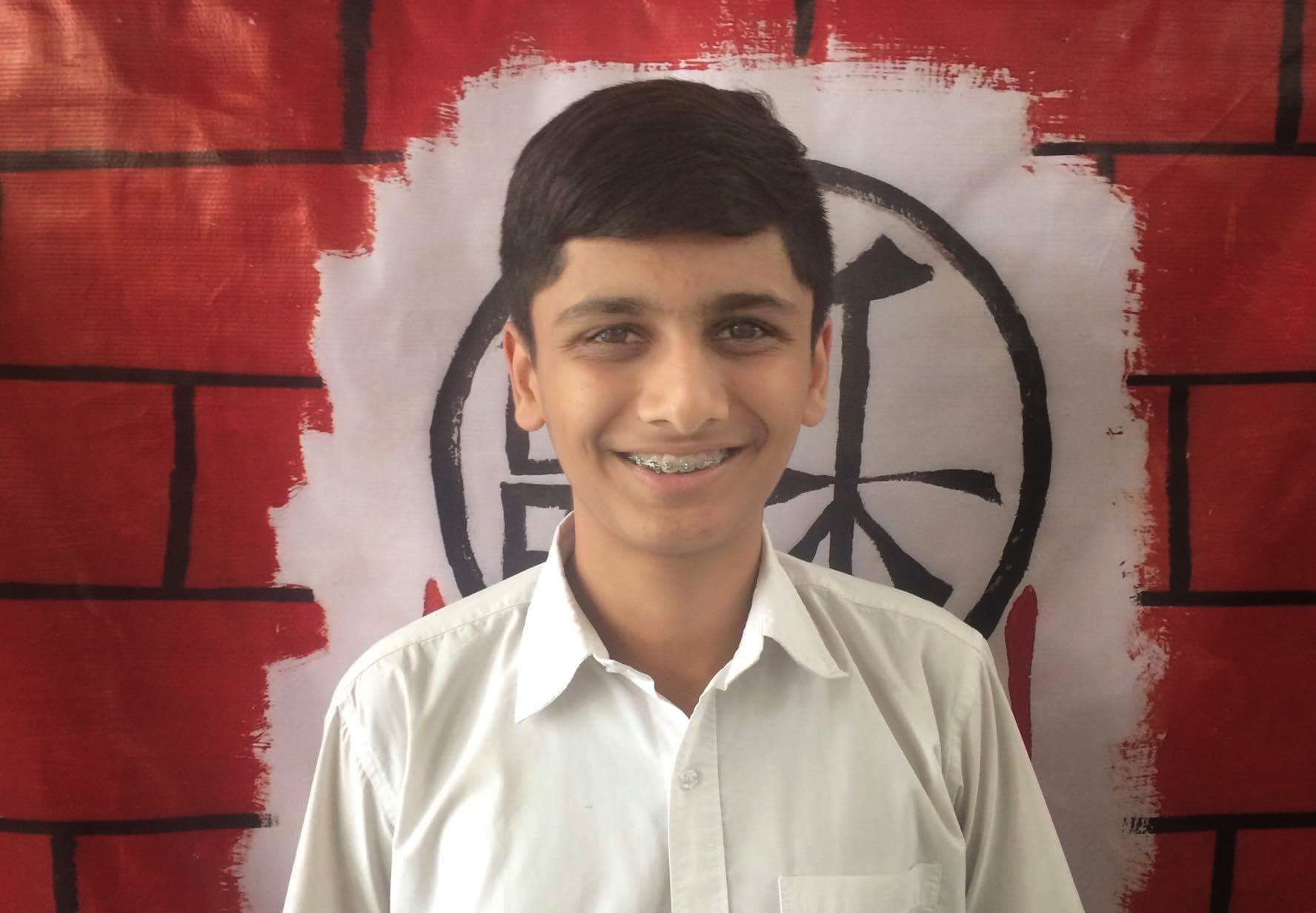
“For me, the best part of school is when we have service class, because I am very keen on serving my society and helping the community around me develop faster.” - Sazil Ramani, grade 10, Aga Khan Academy Hyderabad.

“I came to this school searching for better opportunities and better facilities through which I can improve in sports and excel in music and studies,” says Samson. “I didn’t have these opportunities in my previous school and didn’t get a chance to play any sport.”
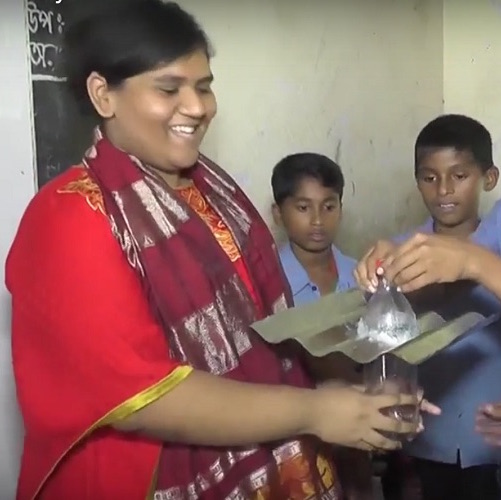
"I wish to continue sharing my knowledge, what I have learned and will continue to learn, with my society."
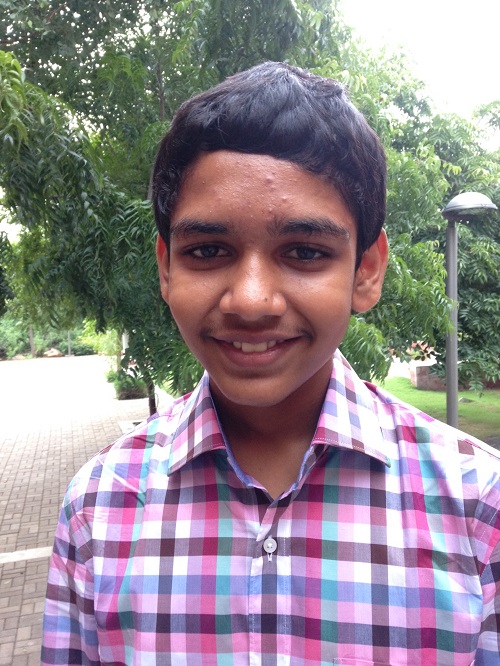
Advait Surana is a residential grade 10 student at the Aga Khan Academy in Hyderabad. He was selected as one of 18 students from different schools to represent Telangana state at the national U-15 football tournament in Delhi in early September 2016.
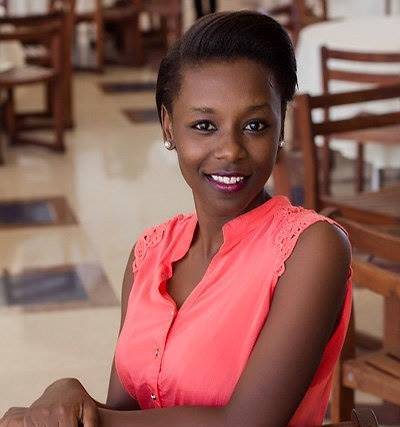
It is a different system that gives me more advantages and privilege.
Spotlights on Parents
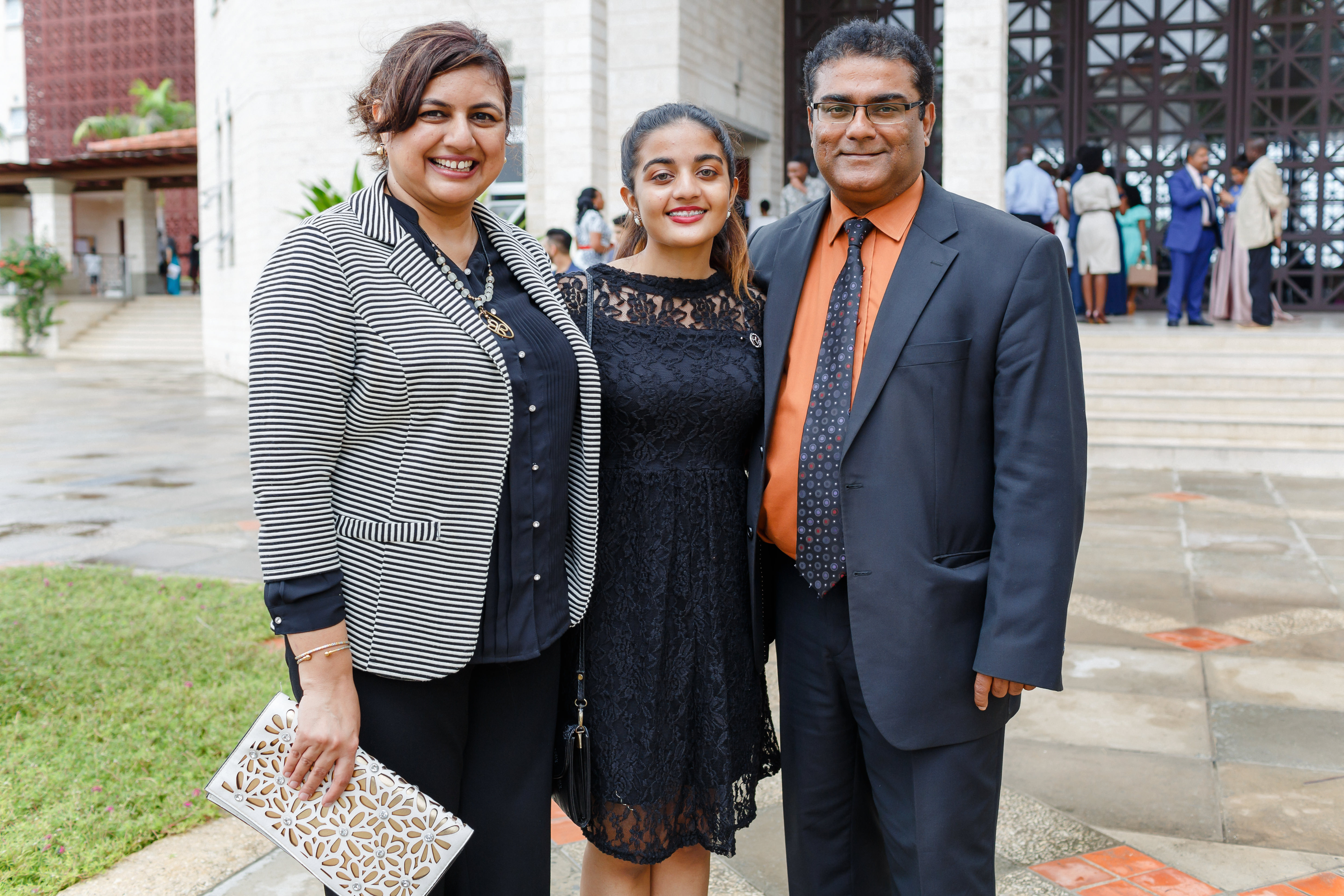
Mrs Aneela Mukhi and Mr Altaf Mukhi, parents of Faliha Altaf Mukhi, share their experience: "Through our chain of observation, the Aga Khan Academy Mombasa surely plays an active role in the holistic development of every child. This is our consistent finding all through the two years of IB Diploma programme our daughter studied."



